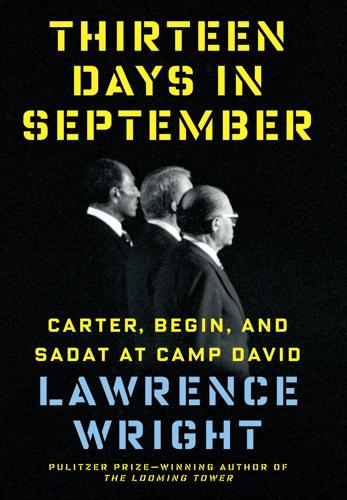
Thirteen Days in September: Carter, Begin, and Sadat at Camp David
by Lawrence Wright · 15 Sep 2014 · 503pp · 126,355 words
turned back the clock of international order,” the president said in a nationally televised address. Ben-Gurion finally bowed to the pressure. The 1956 war, called the Suez Crisis in the West and the Tripartite Aggression in Egypt, stands as a tombstone for European colonialism. The unintended consequences for the aggressors were
…
). “The ballad dwells”: Sadat, In Search of Identity, p. 6. Sadat’s account of the incident is somewhat at variance with modern sources. See Turner, Suez 1956, pp. 39–40; Mustafa Bassiouni, “A Modern-Day Dinshaway in Egypt?” Al Akhbar English, http://english.al-akhbar.com/node/2887. “the odious sight”: Sadat
…
British Intelligence. “He was made ‘better-looking’ ”: Undated newspaper clipping in Begin files of British Intelligence, probably summer of 1946. They were already spending: Turner, Suez 1956, p. 80. “unworkable”: Gervasi, The Life and Times of Menahem Begin, p. 187. Sensing victory, Begin: Temko, To Win or to Die, p. 102. “For
…
–76; Dayan, Living with the Bible, pp. 165–66. The phased departure of: Neff, Warriors at Suez, pp. 55–56. “The Suez Canal was”: Turner, Suez 1956, p. 180. Although Britain had: Neff, Warriors at Suez, p. 18. The scheme was: Dayan, Story of My Life, p. 202. That would become: Grief
…
. “In general, they fought”: Dayan, Story of My Life, p. 246. “He had been abandoned”: Ibid., p. 248. “These troops, abandoned by”: Quoted in Turner, Suez 1956, pp. 340–41. The British and French assembled: Neff, Warriors at Suez, p. 313. The troops came ashore: Ibid., p. 408. which killed 2,700
…
Egyptians: Heikal, Secret Channels, p. 111. and left tens of thousands: Varble, The Suez Crisis 1956, p. 90. “all contemporary forms”: Letter from Prime Minister Bulganin to President Eisenhower, Nov. 5, 1956, http://history.state.gov/historicaldocuments/frus1955-57v16/d505. It was President Dwight Eisenhower: Eban, An Autobiography, p
…
, p. 434. Britain had been motivated: Ibid., p. 438. France’s colonial empire: Eban, An Autobiography, p. 233. Within a few decades: Varble, The Suez Crisis 1956, p. 12. “I owe the bomb to them”: Hersh, The Samson Option, p. 43. Begin savored the company: Interview with Rosalynn Carter. he didn’t
…
”: Ibid. “Tohamy!”: Ibid., p. 196. A figure from the ancien régime: Michael Lind, “Alboutros,” New Republic, June 28, 1993. In 1910, a Muslim fanatic: Turner, Suez 1956, p. 41. Given his talents: Heikal, Autumn of Fury, p. 105. “I felt strange”: Boutros-Ghali, Egypt’s Road to Jerusalem, p. 141. Begin identified
…
, Shabtai. Moshe Dayan: The Soldier, the Man, the Legend. Boston, MA: Houghton Mifflin, 1973. Turner, Barry. Suez 1956. London: Hodder, 2007. Vance, Cyrus. Hard Choices. New York: Simon and Schuster, 1983. Varble, Derek. The Suez Crisis 1956. Oxford: Osprey Publishing, 2003. Wagner, Heather Lehr. Anwar Sadat and Menachem Begin: Negotiating Peace in the Middle
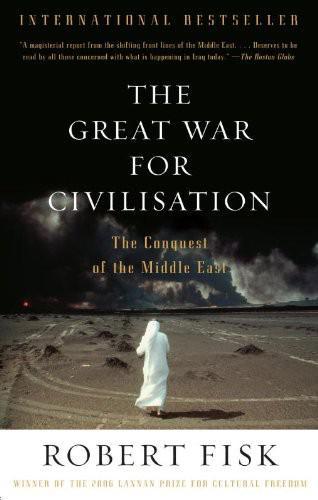
The Great War for Civilisation: The Conquest of the Middle East
by Robert Fisk · 2 Jan 2005 · 1,800pp · 596,972 words
suicide. I saw the planes returning to Britain from Korea and remember my mother telling me in 1956 that I was lucky, that had I been older I would have been a British conscript invading Suez. If I feel this personally, it is because I have witnessed events that, over the years
…
journalism. The more we wrote about the Palestinian dispossession, the less effect it seemed to have and the more we were abused as journalists. The 1956 Suez war, the 1967 Six Day War—and Nasser’s blind folly in taking on the might of the Israeli army—the 1973 Middle East conflict
…
earlier, a conflict not about oil but over a narrow man-made canal linking the Mediterranean with the Red Sea. The Suez crisis has haunted British governments ever since 1956—it hung over Margaret Thatcher during the 1982 Falklands War, and its memory now moved between the Foreign Office and Downing Street
…
and they couldn’t even drop artillery to support us.” The first test of Nasser’s strength came on 15 September 1956, when almost all the foreign pilots in the Suez Canal Authority withdrew their labour. Eden and Guy Mollet, the French prime minister, had devised the walkout in London five days
…
at Israel’s hands in the 1967 Arab–Israeli war, suppressing all domestic opposition with executions and torture. Suez distracted the world’s attention as Russian troops stormed into Budapest on 30 October 1956 and crushed its revolution. Some never forgave the Labour leader Hugh Gaitskell for his November broadcast in which
…
was not Hitler, but once more Saddam was dressed in Hitler’s clothes—just as Nasser was the Mussolini of the Nile during the Suez crisis of 1956—and anyone who opposed war was, by quiet extension, a Nazi sympathiser. Before and immediately after the start of the Second World War—the
…
, hit hard and hit now”: Scott Lucas, Divided We Stand, p. 142. 915 The Times led the way: Shaw, Eden, Suez and the Mass Media , p. 57, quoting The Times, 27 August 1956, “Escapers” Club.” 916 an attack on the right to speak out: Shaw, Eden, p. 58, quoting Manchester Guardian, 28
…
unison with the Times”: Shaw, Eden, p. 59. 916 “The objection to the matter”: Ibid., quoting The Times , 1 September 1956, “Widening the Circle.” 916 “was born of a marriage”: Love, Suez, p. 433. (n.) 916 According to Arye Biro: See Irish Times, 7 August 1995, “Egypt angry at admission of POW
…
State of Israel; 750,000 Palestinian Arabs ejected from their land 1954 Start of Algerian war of independence against France 1956 Suez crisis; Britain, France and Israel invade Egypt after Nasser nationalises the Suez Canal 1962 Monarchy overthrown in Iraq Algeria wins independence from France 1967 Six Day War; Israel occupies Gaza, West

The Hundred Years' War on Palestine: A History of Settler Colonialism and Resistance, 1917–2017
by Rashid Khalidi · 28 Jan 2020 · 413pp · 120,506 words
attempt by Arab states to control it. The Egyptian government was in part reacting to its bitter experience in the period leading up to the 1956 Suez War. In the wake of the 1952 revolution, the military regime had eschewed an expensive rearmament program, even though the defeat in Palestine had in
…
in the early 1950s by small Palestinian militant groups, actions taken against the wishes of most Arab governments, ultimately led to Israel launching the Suez War of October 1956. Israel did not do so alone, and its partners had their own reasons for attacking Egypt. Old-school imperialists in office in Britain
…
regional policies and did not approve of all of its actions. Eisenhower had forced Israel’s withdrawal from Sinai and the Gaza Strip after the 1956 Suez War, and later Kennedy tried and failed to prevent Israel from developing nuclear weapons.14 In the early 1960s Kennedy came to see Arab nationalism
…
to prepare the way for the ensuing shift in US policy. Israel, for its part, had been stung by the strong American opposition to its 1956 Suez adventure. As it prepared in 1967 for a first strike against the Arab air forces, its leaders were determined to get prior American approval for
…
example in a presidential election year. Examples of the United States overriding strong Israeli resistance to serve Washington’s perceived interest are legion: during the 1956 Suez war the US opposed aggression against Egypt as contrary to its Cold War interests; at the end of the 1968–70 War of Attrition along
…
, Philosophy of the Revolution (New York: Smith, Keynes and Marshall, 1959), 28. 62. Benny Morris, Israel’s Border Wars: 1949–1956: Arab Infiltration, Israeli Retaliation, and the Countdown to the Suez War (Oxford: Clarendon Press, 1993). 63. From 1953 to1968, when my father worked in the Political and Security Council Affairs division
…
of the Post-Cold War Era (New York: Oxford University Press, 2002). 78. There is a vast literature on the 1956 Suez war. For a good collection of essays on the topic see Suez 1956: The Crisis and Its Consequences, ed. Roger Louis and Roger Owen (Oxford: Clarendon Press, 1989). See also Benny
…
produced Israel’s third-highest overall military casualty toll, after the 1948 and 1973 wars, and ahead of the 1956 and 1967 wars and the 1968–70 War of Attrition along the Suez Canal. 8. Probably because of my prior role in WAFA, where I had helped Mona set up the new
…
Egypt and Fatah and First Intifada and Hamas and Israeli blockade of Israeli wars on Israeli withdrawal from (1956) Israeli withdrawal from (2005) Madrid-Washington talks and PISGA and PLO and Reagan Plan and Suez War and travel restrictions and US and War of 1967 and War of 1982 and Gazit, Shlomo
…
and War of 1948 and War of 1967 and Stalin, Joseph Stalingrad, Battle of Stern gang Sternhell, Zeev St. James’s Palace conference (1939) Suez War of 1956 Suez War of Attrition (1968–70) suicide bombings Sunnis Supreme Muslim Council Suriyya al-Janubiyya Sykes-Picot Agreement Syria. See also Golan Heights Abu
…
Versailles Conference (1918) Vienna airport massacre Vietnam War village leagues project WAFA Wafd Wahhabism War of 1948. See also Nakba aftermath of War of 1956. See Suez War of 1956 War of 1967 (Six-Day War) aftermath of War of 1973 War of 1982. See Lebanon invasion of 1982 War on Terror
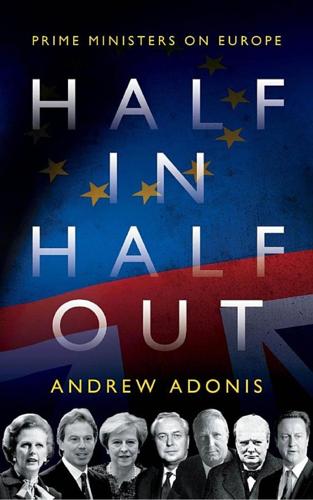
Half In, Half Out: Prime Ministers on Europe
by Andrew Adonis · 20 Jun 2018 · 235pp · 73,873 words
will be your revenge.’ CHANCELLOR KONRAD ADENAUER TO FRENCH PRIME MINISTER GUY MOLLET AFTER EDEN ‘ABANDONED’ FRANCE DURING THE 1956 SUEZ CRISIS Notwithstanding its brevity (twenty-one months) and overwhelming focus on the Suez Crisis, Anthony Eden’s premiership witnessed some of the most significant landmarks on the road to European integration. Less
…
that precluded British participation. Plan ‘G’, as the British scheme became known, was soon overshadowed by Colonel Nasser’s nationalisation of the Suez Canal Company on 26 July 1956. Eden’s attention was now firmly fixed on the Middle East and not Europe. But a debate in the Commons just six weeks
…
years’ delay in joining with our friends and allies in the creation of the new Europe.’ In 1956, as Chief Whip, Heath consolidated his parliamentary reputation when he held the Conservative Party together during the Suez Crisis – leaving him with a crisis of conscience that he never wholly resolved – and then deftly
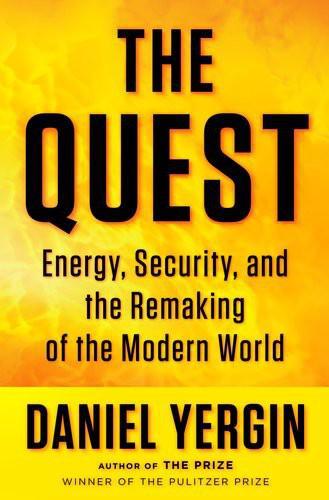
The Quest: Energy, Security, and the Remaking of the Modern World
by Daniel Yergin · 14 May 2011 · 1,373pp · 300,577 words
the Gulf and the larger Middle East have come a series of crises that disrupted global oil supply. The first was the 1956 Suez crisis. Egypt’s expropriation of the Suez Canal triggered an invasion by Britain and France—along with Israel, which was threatened by Egyptian military pressure. The closure of the
…
Strategic Petroleum Reserve, U.S. (SPR) Straubel, J. B. Strauss, Lewis Strauss-Kahn, Dominique Stuxnet computer virus submarines suburbs Sudan Suess, Hans Suez Canal Suez crisis (1956) suicide bombers sulfur dioxide sulfuric acid Sumatra Sumed Pipeline Summerland Summers, Lawrence Sundsvall meeting (1990) Sunnis in Iraq Sun Oil Suntech Sununu, John Sun Yat
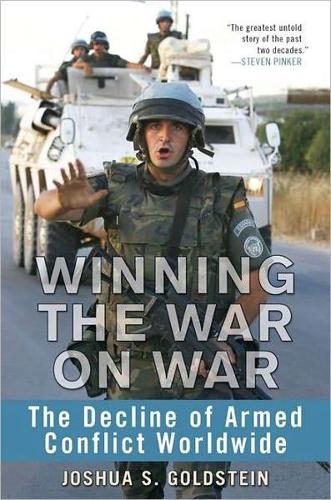
Winning the War on War: The Decline of Armed Conflict Worldwide
by Joshua S. Goldstein · 15 Sep 2011 · 511pp · 148,310 words
, after Bernadotte, the second Swede Bunche served, and the second one killed in the line of duty. II. The Suez War, 1956 At first, Hammarskjöld kept Bunche off the Middle East, but in 1956, during another Arab-Israeli war, the secretary-general put Bunche back on the job. Israel had invaded Egypt, after
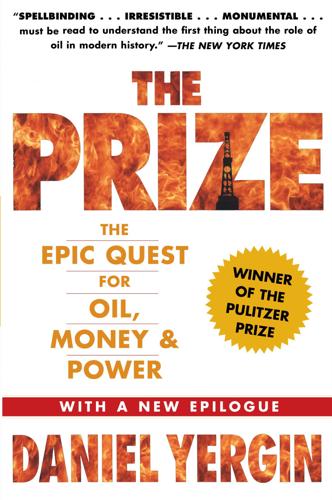
The Prize: The Epic Quest for Oil, Money & Power
by Daniel Yergin · 23 Dec 2008 · 1,445pp · 469,426 words
for control of oil between international companies and developing countries was a major part of the great drama of decolonization and emergent nationalism. The Suez Crisis of 1956, which truly marked the end of the road for the old European imperial powers, was as much about oil as about anything else. "Oil
…
had turned to the Soviet bloc for weapons. Did that mean the expansion of Soviet influence? Might the Suez Canal be closed to Western oil and naval traffic? As early as February 1956 the State Department raised with the oil companies the question of revising the Voluntary Agreement of 1950—used originally
…
war two years earlier. Eden had promoted diplomacy, but Dulles was not interested in that kind of peaceful resolution. Now, over Suez, they would trade roles. Yet in August 1956, a few days after the nationalization, Dulles reassured the British and French foreign ministers that "a way had to be found to
…
, they were not the sole answer to the overriding question of transit safety. The risks were too obvious. In all the agitated discussion in 1956 about the Suez Canal as the jugular, one point had not been given much attention: If the canal and the Middle Eastern pipelines were vulnerable, there was
…
arranged a dinner at 10 Downing Street for Lord Avon, as Anthony Eden had now become, and whose chief whip Heath had been in 1956 during the Suez Crisis. For Eden, his own return as an honored guest to Number 10 was a wonderfully sentimental evening. Heath made a witty and charming
…
York: St. Martin's, 1967), pp. 584-85 (Disraeli). [2] Office of Intelligence Research, Department of State, "Traffic and Capacity of the Suez Canal," p. 10, August 10, 1956, National Security Council records; Harold Lubell, "World Petroleum Production and Shipping: A Post-Mortem on Suez," P-1274 (Rand Corporation, 1958), pp. 1718
…
. [3] Selwyn Lloyd, Suez 1956: A Personal Account (New York: Mayflower Books, 1978), pp. 45,69, 24, 2-19; Donald Neff, Warriors at Suez: Eisenhower Takes the United States into
…
(cotton). [5] Cooper, Lion's Last Roar, p. 103 ("De Lesseps"); Alistair Home, Harold Macmillan, vol. 1, 1894-1956 (New York: Vintage, 1989), p. 397 (Macmillan); Wm. Roger Louis and Roger Owen, eds., Suez 1956: The Crisis and its Consequences (Oxford: Clarendon Press, 1989), p. 110; Interview with John C. Norton (pilots
…
). [6] Evelyn Shuckburgh, Descent to Suez: Diaries, 1951-1956 (London: Weidenfeld and Nicolson, 1986), p. 23 ("Master"); Neff, Warriors at Suez, p. 39 (Ike on Dulles); Interview with Winthrop Aldrich, p. 27, Tape 27,
…
Box 244, Aldrich papers; Eden, Full Circle, p. 487 ("disgorge"); Louis and Owen, Suez 1956, pp. 198-99 ("out of date" and "white men"), 210 ("mantle"); Dwight D. Eisenhower, Waging Peace: The White House Years, 1956-1961 (Garden City, N
…
Suez" (Ph.D., Case Western Reserve University, 1985), pp. 65-66. [7] Herman Finer, Dulles Over Suez: The Theory and Practice of His Diplomacy (Chicago: Quadrangle Books, 1964), p. 397; Eisenhower to Hoover, October 8, 1956, Dulles papers, White House Memoranda Series, Eisenhower Library; Polster, "The Need for Oil," chap. 4. [8
…
] April 6, 1956, Personal Telegram Serial, T 221/56, PREM 11/1177 ("Bear's claws"); Cabinet, Egypt Committee, August
…
24,1956, E.C. (56), CAB 134/1216, PRO. Eden, Full Circle, p. 401 ("absolutely blunt"). [9] Eden
…
(Spaak). [11] Kenneth Love, Suez: The Twice-Fought War (New York: McGraw-Hill, 1969), pp. 367, 403; Wall, Exxon, pp. 549-61; Louis and Owen, Suez 1956, p. 123 (Kirkpatrick); Wilbur Crane Eveland, Ropes of Sand: America's Failure in the Middle East (New York: Norton, 1980), pp. 209-13 (Anderson); Eisenhower
…
of Oliver Harvey (London: Collins, 1978), pp. 191-94, 247. Harold Macmillan, Riding the Storm, 1956-59 (London: Macmillan, 1971), p. 149; Louis and Owen, Suez 1956, p. 160; Stuart A. Cohen, "A Still Stranger Aspect of Suez: British Operational Plans to Attack Israel, 1955-56," International History Review 10 (May 1988), pp. 261
…
and collapse, see James, Eden, pp. 523, 597; Thomas, Suez Affair, pp. 43-44; Neff, Warriors at Suez, p. 182. [14] Ambrose, Eisenhower, p. 357; "Memorandum of Conference with the President," October 30, 1956, Dulles papers, White House Memoranda Series (Eisenhower); Cooper, Lion's Last Roar, p. 167 ("unshirted hell"); Lloyd, Suez
…
"); Wall, Exxon, p. 557 ("simply refused"); Macmillan, Riding the Storm, p. 164 (IMF); Lloyd, Suez, pp. 211, 206 (Macmillan on oil sanctions); Louis and Owen, Suez 1956, p. 228 ("naughty boys"); United States Congress, Senate, Committee on the Judiciary and Committee on Interior and Insular Affairs, Emergency Oil Lift Program and Related
…
and Western Europe's Energy Supplies (Baltimore: Johns Hopkins University Press, 1963); Peter Hennessy and Mark Laity, "Suez—What the Papers Say," Contemporary Record 1 (Spring 1957), p. 8. [16] Eisenhower to Ismay, November 27,1956, DDRS, 1989, doc. 2941 ("sadness" and "delicate"); Dillon to Director (re: Ismay), DDRS, 1989, doc. 859
…
dependent upon the Middle East, was excluded. Mattei was furious. He would look for his opportunity—and for his revenge. He found both when the 1956 Suez Crisis put the established oil companies on the defensive and made clear the degree to which British power and influence were in retreat in the
…
). "I have a different attitude towards the world," she once said. "I can't fit in any one spot, except New York." In 1956, just after the Suez Crisis, Jablonski made a memorable reporting trip through twelve countries of the Middle East, even wrangling an invitation to interview King Saud in Riyadh
…
campaign proved rather ineffective in the face of the continuing buildup of Middle Eastern supply capacity and the price advantage of imported oil. The Suez crisis of 1956 highlighted concerns about national security. The price fall that followed the crisis further increased the clamor among independents for protection in the form of
…
to encourage power plants to switch from coal to oil as a stopgap. But oil was hardly a stopgap. It was a relentless competitor. The 1956 Suez crisis did create a large question mark for Britain and other European countries about the security of Middle Eastern oil supplies. In the immediate aftermath
…
to be seen as insufficiently militant. In May 1967, Nasser ordered the United Nations observers, who had been on duty since the conclusion of the 1956 Suez Crisis, out of Egypt. He instituted a blockade against Israeli shipping in the Gulf of Aqaba, cutting off its southern port of Eilat and threatening
…
oil was six million barrels per day. Moreover, logistics were in total chaos not only because of the interruptions but also because, as in 1956, the Suez Canal and the pipelines from Iraq and Saudi Arabia to the Mediterranean were closed. "The crisis is more serious than at the time of the
…
Suez blockage in 1956-57," said a United States Assistant Secretary of the Interior on June 27. "At that time no major producer except northern Iraq was closed
…
Europe. This was the same committee that had been called into action during the Iranian nationalization crisis of 1951-53 and again during the Suez Crisis in 1956-57. Said a lawyer who became, as he had in the previous crises, an adviser to the committee, "It's like a recurring bad
…
Organization for Economic Cooperation and Development, representing the industrial countries, would, in the event of a crisis, declare an emergency and implement a "Suez system," as in 1956, and coordinate the overall allocation among the Western countries. Yet when the United States requested such a step, many OECD countries, confident that they
…
Coast), while the Arab oil originally destined for the United States, Britain, and Germany was sent elsewhere. The closure of the Suez Canal and the Mediterranean pipelines meant, as in 1956, much longer journeys around the Cape of Good Hope and thus resulted in a mad scramble for tankers. BP found the
…
requirements of the much-longer voyages could be more easily met than was expected owing to the development of "supertankers," an innovation spurred by the 1956 Suez crisis. By 1967, a mere eleven years after that crisis, supertankers five times larger than the tankers of 1956 were available. And six Japanese-built
…
about a new crisis—"over-supply." Executives in the industry no longer worried about availability of supply but instead recalled how the response to the 1956 Suez crisis had intensified the glut in the late 1950s, resulting in the imposition of U.S. import quotas, cuts in the posted price—and the
…
Harding had created a naval petroleum reserve on the Arctic coast of Alaska, and wildcatters poked around the region in the years thereafter. Following the 1956 Suez Crisis, Shell and Standard Oil of New Jersey began exploring in Alaska, but in 1959, after drilling what proved to be the most expensive dry
…
, had been politically and ethically bankrupted under the lofty rhetoric of pan-Arabism. The vaulting ambitions and self- confidence derived from Egyptian success in the 1956 Suez crisis had turned to dust, particularly in the aftermath of the 1967 defeat, and the country was in economic ruin. Sadat did not have the
…
precipitated one of the gravest splits in the Western alliance since its foundation in the days after World War II, and certainly the worst since Suez in 1956. Relations had already been under some strain before the October War. Once the embargo began, the European allies, led by France, hastened to disassociate
…
with the postwar renunciation of the Red Line agreement, and that the Americans had undermined them in the struggle over Algeria. Then there was the 1956 Suez crisis. Seventeen years had passed since the Americans had blatantly undercut France and Britain in the confrontation over the canal with Nasser, hastening the retreat
…
oil balance. The legislation that included the fuel efficiency standards also established a strategic petroleum reserve: the same idea that Eisenhower had proposed after the 1956 Suez crisis, and that the Shah had tried to sell to the United States in 1969. The plan was excellent; such a reserve would provide the
…
the hopeful in Western Europe. The results had been distinctly disappointing; total production in the area never exceeded 250,000 barrels per day. The Suez crisis of 1956 gave a new boost to the search for secure oil and gas resources in Europe; and in 1959, at Groningen in Holland, Shell and
…
Anthony Eden two decades earlier, at the time when Eden struggled over what to do about Suez, Nasser, nationalism, and the threats to Britain's oil supply. So grave was the perceived threat in 1956 that Eden had decided to use military force in the form of the aborted attack on the
…
to achieve one's objectives—were the ones that Saddam Hussein absored. It was during the tumult and enthusiasm that accompanied Nasser's victory at Suez in 1956 that Saddam Hussein, while still a teenager, was recruited into the Ba'th party. The Nasserite anti-imperialistic rhetoric of the 1950s remained with
…
.: State University of New York Press, 1981. Borkin, Joseph. The Crime and Punishment of I. G. Farben. New York: Free Press, 1978. Bowie, Robert R. Suez 1956. London: Oxford University Press, 1974. Bradley, Omar N. A Soldier's Story. New York: Henry Holt, 1951. Brady, Kathleen. Ida Tarbell: Portrait of a Muckracker
…
York: D. Appleton, 1870. Continental Oil Company. Conoco: The First One Hundred Years. New York: Dell, 1975. Cooper, Chester L. The Lion's Last Roar: Suez, 1956. New York: Harper & Row, 1978. Cordesman, Anthony H. The Gulf and the West: Strategic Relations and Military Realities. Boulder, Colo.: Westview Press, 1988. Corley, T
…
R., and Tanis C. Thorne. The Spirit of Enterprise: The History of Pacific Enterprises from 1886 to 1989. Los Angeles: Pacific Enterprises, 1990. Lloyd, Selwyn. Suez 1956: A Personal Account. London: Jonathan Cape, 1978. Longhurst, Henry. Adventure in Oil: The Story of British Petroleum. London: Sidgwick and Jackson, 1959- Longrigg, Stephen H
…
in the Middle East 1945-1951: Arab Nationalism, the United States, and Postwar Imperialism. Oxford: Clarendon Press, 1985. Louis, William Roger, and Roger Owen, eds. Suez 1956: The Crisis and its Consequences. Oxford: Clarendon Press, 1989. Love, Kenneth. Suez: The Twice-Fought War. New York: McGraw-Hill, 1969. Lowe, Peter. Great Britain
…
, Avi. "Failures in National Intelligence Estimates: The Case of the Yom Kippur War." World Politics 28 (April 1976): 348-80. Shuckburgh, Evelyn. Descent to Suez: Diaries, 1951-1956. Ed. John Charmley. London: Weidenfeld and Nicolson, 1986. Shwadran, Benjamin. The Middle East, Oil and the Great Powers. 3d rev. ed. New York: John
…
Eastern producers in 1950 to help save the oil companies from outright nationalization, (3) Gamal Abdel Nasser and Anthony Eden before Nasser nationalized the Suez Canal in 1956, triggering the second postwar oil crisis, (4) In 1957, General Charles DeGaulle, visiting France's new oil field in Algeria, declared, "In our destiny
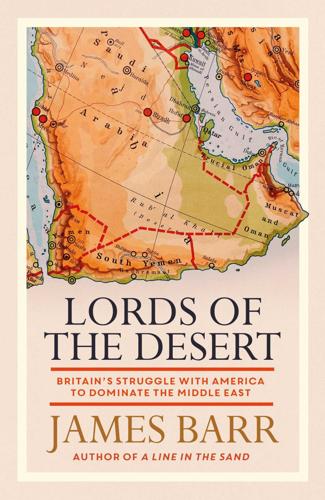
Lords of the Desert: The Battle Between the US and Great Britain for Supremacy in the Modern Middle East
by James Barr · 8 Aug 2018 · 539pp · 151,425 words
the Suez Canal and made her responsible for defending the country in the event of an attack, an arrangement that sowed the seeds of the 1956 Suez crisis. The outbreak of war in 1939 brought hundreds of thousands of British imperial troops back to Egypt, and with them roaring inflation and food
…
running in that part of the world’.1 Following the withdrawal from Palestine in 1948, and with the departure of British forces from Suez now scheduled for June 1956, Jordan and Iraq were the two remaining countries where the British retained a presence in the northern Middle East. When Eden reviewed the
…
him with a casus belli and ensure American acquiescence. Three weeks before polling day in the United States, he got it. 20 THE SUEZ MISCALCULATION Sunday 14 October 1956 was ‘a glorious autumn day, radiant with sunshine and crisp as a biscuit’, the Foreign Office minister, Anthony Nutting, later remembered. He had
…
pinch-point between Arabia and the Horn of Africa made it the obvious new base for Britain’s Middle East Command after the withdrawal from Suez in 1956. In the next three years, the number of British troops stationed in the colony quadrupled. Duty-free shopping sucked in passing tourists. By 1962
…
. 24. TNA, CAB 195/14, meeting of 5 March 1956; Shuckburgh, Descent to Suez, p. 341, 3 March 1956. 25. Shuckburgh, Descent to Suez, p. 345, 7 March 1956; Thorpe, Eden, p. 466. 26. Shuckburgh, Descent to Suez, p. 346, 12 March 1956. 27. Shuckburgh, Descent to Suez, p. 345, 8 March 1956. Chapter 18 Ditching Nasser 1
…
’, 20 July 1956. 25. Lucas, Divided We Stand, p. 136. 26. FRUS, 1955–57, Vol. XV, p. 867, memorandum of a telephone conversation, 19 July 1956; Kyle, Suez, p. 129; Lucas, Divided We Stand, p. 137. 27. FRUS, 1955–57, Vol. XV, p. 873, memorandum of telephone conversation, 19 July 1956; MEC
…
, Slade-Baker Papers, diary, 21 July 1956. Chapter 19 A Sort of Jenkins’ Ear 1. Thorpe, Eden, p. 101. 2. ‘Suez Canal Company’, The Times, 18 June 1956. 3. Von Tunzelmann, Blood and Sand, p. 28. 4. MEC, Slade
…
before his lunch with Eden on 1 August (FRUS, 1955–57, Vol. XVI pp.64, 95). 15. Kyle, Suez, p. 163. 16. FRUS, 1955–57, Vol. XVI, p. 119, Note 3. 17. HC Deb, 2 August 1956, Vol. 557, cc. 1603, 1608. 18. ‘Channel Race Ban on Egyptians’, The Times, 3 August
…
1956; ‘One Man’s War Breaks Out in Mayfair’, Daily Express, 3 August 1956. 19. Catterall, ed., The Macmillan Diaries, Vol. I, p. 586, 9
…
August 1956; TNA, CAB 195/15, meeting of 14 August 1956; MEC, Slade-Baker Papers, diary, 22 August 1956. Slade-Baker’s connection to MI6 is clear from his diary entries
…
, Divided We Stand, p. 186. 22. FRUS, 1955–57, Vol. XVI, pp. 402–3, Eden to Eisenhower, 6 September 1956. 23. Lane, ‘The Past as Matrix’ in Kelly and Gorst, eds., Whitehall and the Suez Crisis, p. 209 ; TNA, CAB 195/15, meeting of 11 September 1956. 24. HC Deb, 12 September
…
1956, Vol. 558, c. 11. 25. Kyle, Suez, p. 246. 26. HC Deb, 13 September 1956, Vol. 558, c. 304. 27. MEC
…
, Slade-Baker Papers, diary, 15 September 1956. Chapter 20 The Suez Miscalculation 1. Von Tunzelmann, Blood and Sand, p. 138. 2. Barr, A Line in the Sand, pp. 286–93, 336–48. 3. Lucas, Divided We
…
, ‘Unreconstructed Nationalists and a Minor Gunboat Operation’, p. 81. 6. TNA, CAB 195/15 meeting of 18 October 1956. 7. Lucas, Divided We Stand, p. 208. 8. Kyle, Suez, p. 256. 9. Shuckburgh, Descent to Suez, p. 317, 5 January 1956. 10. TNA, CAB 195/15, meeting of 18 October 1956. 11. Von
…
, p. 236; Lane, ‘The Past as Matrix’, in Kelly and Gorst, eds, Whitehall and the Suez Crisis, p. 213. 23. Shuckburgh, Descent to Suez, p. 362, 1 November 1956; Von Tunzelmann, Blood and Sand, p. 215. 24. FRUS, 1955–57, Vol. XVI, p. 849, Eisenhower to Eden, 30 October 1956. 25. TNA
…
.m. 26. Von Tunzelmann, Blood and Sand, p. 297. 27. CAB 195/15, meeting of 4 November 1956. 28. HC Deb, 5 November 1956, Vol. 558, c. 1966; Kyle, Suez, p. 452. 29. FRUS, 1955–57, Vol. XVI, pp. 985–6, Eden to Eisenhower, 5 November 1956. 30. FRUS, 1955–57, Vol
…
), pp. 12–20 Lucas, I., A Road to Damascus: Mainly Diplomatic Memoirs from the Middle East, London 1997 Lucas, S., ‘Divided We Stand: The Suez Crisis of 1956 and the Anglo-American “Alliance” ’, PhD thesis, LSE 1991 Lucas, S., Divided We Stand: Britain, the US and the Suez Crisis, London 1991 Lucas
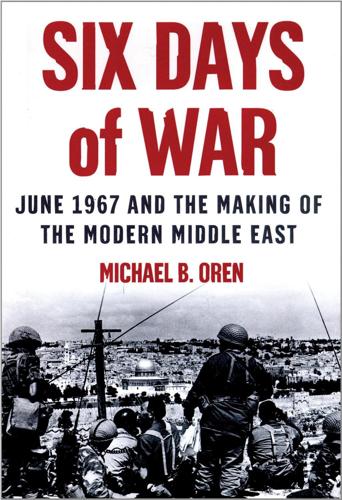
Six Days of War: June 1967 and the Making of the Modern Middle East
by Michael B. Oren · 2 Jun 2003 · 687pp · 209,474 words
have been battling over the interpretation of those wars, beginning with the War of Independence, or the Palestine War of 1948 and progressing to the 1956 Suez crisis. Most recently, a wave of revisionist writers, Israelis mostly, have sought to amplify Israel’s guilt for those clashes and evince it in the
…
McPherson warned, “We would have to push them back by military force to accomplish a repeat of 1956; the cut-off of aid would not do it.” But having resisted Eisenhower’s pressure tactics during Suez, Johnson refused to arm-twist the Israelis. At most he was willing to delay arms shipments
…
, Israeli-Soviet Relations, 1953-1967: From Confrontation to Disruption (London: Frank Cass, 1990), p. 66. 13. Alpha plan discussed in Evelyn Shuckburgh, Descent to Suez, 1951-1956 (London: Weidenfeld and Nicolson, 1986), pp. 242-67, and Michael B. Oren, “Secret Efforts to Achieve an Egypt-Israel Settlement Prior to the Suez Campaign
…
: Carnegie Endowment for International Peace, 1965). 16. Oren, “Secret Efforts to Achieve an Egypt-Israel Settlement Prior to the Suez Campaign.” 17. Michael B. Oren, “The Tripartite System in the Middle East, 1950-1956,” in Dori Gold, ed., Arms Control and Monitoring in the Middle East (Boulder, Colo.: Westview Press, 1990). 18
…
), pp. 1045-55. PRO, FO371/121738/189: Dixon to Foreign Office, May 3, 1956. FRUS, XVI, p. 1208. BGA, “Diary: The Diplomatic Battle Over Suez,” July 1957. Michael B. Oren, “Faith and Fair-Mindedness: Lester B. Pearson and the Suez Crisis,”Diplomacy and Statecraft 3, no. 1 (1992); Michael B. Oren, “Ambivalent Adversaries

Egypt Travel Guide
by Lonely Planet
of the old one, but from the start there were political and engineering difficulties. In 1956, after the World Bank refused the promised loan for the project, Nasser ordered the nationalisation of the Suez Canal, which sparked the Suez Crisis in which France, the UK and Israel invaded the canal region. But Nasser
…
columns and space for over 700, with brass nameplates still affixed to the regular seats of male worshippers. Since the wars with Israel and the 1956 Suez Crisis, the community has dwindled and rarely musters the 10 men necessary to hold a service. Visits to this poignant and moving reminder of the
…
large stone plinth Offline map Google map that once held a statue of Ferdinand de Lesseps, until it was torn down in 1956 with the nationalisation of the Suez Canal. Suez Canal House Historic Building Offline map Google map (Commercial Basin) If you’ve ever seen a picture of Port Said, it was
…
) This little museum is worth a peek for its information on the canal and also some rather curious exhibits (complete with toy soldiers) documenting the 1956 Suez Crisis and the 1967 and 1973 wars with Israel. In the museum gardens you can view a few captured US tanks with the Star of
…
canal remained in French and British hands for the next 86 years until, in the wake of Egyptian independence, President Gamal Abdel Nasser nationalised the Suez in 1956. The two European powers, in conjunction with Israel, invaded Egypt in an attempt to retake the waterway by force. In what came to be
…
in Cairo being burned. By the summer, Nasser and his fellow Free Officers have overthrown King Farouk and established the Republic of Egypt. 1956 After President Nasser nationalises the Suez Canal, British, French and Israeli forces attack the canal zone, but are forced to retreat. 1967 Egypt, Syria and Jordan are defeated

Egypt
by Matthew Firestone · 13 Oct 2010
of the old one, but from the start there were political and engineering difficulties. In 1956, after the World Bank refused the promised loan for the project, Nasser ordered the nationalisation of the Suez Canal, which sparked the Suez Crisis in which France, the UK and Israel invaded the canal region. But Nasser
…
columns and space for over 700, with brass nameplates still affixed to the regular seats of male worshippers. Since the wars with Israel and the 1956 Suez crisis, the community has dwindled and rarely musters the 10 men necessary to hold a service. Visits to this poignant and moving reminder of the
…
of Sharia Palestine is a large stone plinth that once held a statue of Ferdinand de Lesseps, until it was torn down in 1956 with the nationalisation of the Suez Canal. Although the statue was restored at the expense of the French government in the early 1990s, it has yet to be
…
re-erected. MILITARY MUSEUM This compact museum ( 322 4657; Sharia 23rd of July; admission E£5; 9am-4pm Sat-Thu) houses relics from the 1956 Suez Crisis and the 1967 and 1973 wars with Israel, such as a few captured US tanks with the Star of David painted on them, as
…
of the canal remained in French and British hands for the next 86 years until, in the wake of Egyptian independence, President Nasser nationalised the Suez in 1956. The two European powers, in conjunction with Israel, invaded Egypt in an attempt to retake the waterway by force. In what came to be
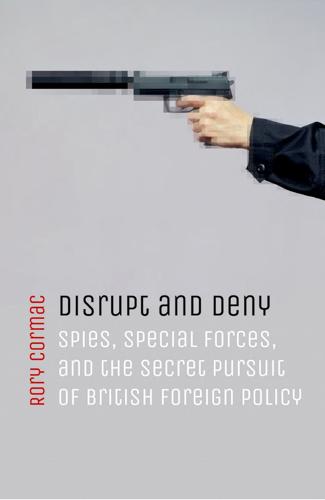
Disrupt and Deny: Spies, Special Forces, and the Secret Pursuit of British Foreign Policy
by Rory Cormac · 14 Jun 2018 · 407pp
SIS. His headless body washed up on a beach after an unauthorized intelligence operation to inspect a Soviet ship in Portsmouth harbour in early 1956. Combined with the Suez misadventure, covert actions now required even closer ministerial approval. Eden was livid at not having been consulted and at the damage done to
…
Working Group on Syria, 1957 1 E den’s conflict with Gamal Abdel Nasser came to a head in late 1956. On 26 July, the Egyptian president nationalized the Anglo–French Suez Canal Company. Eden was livid, for Britain had now lost control over the shortest route between East and West, with
…
as the Middle East. Yet it could only stem the tide of nationalism for so long. The failure at Suez, Jordan’s expulsion of the British commander of the Arab Legion in 1956, the Iraqi coup overthrowing Britain’s closest ally in the region two years later, and the fact that Nasser
…
Plan’, p.403; Rathmell, Secret War in the Middle East, p.122; Kyle, Suez, p.367. FOI: Dean to Lloyd, ‘Counter-Subversion’ and country-specific annexes, 19 March 1956; FOI: Patrick Dean, ‘Counter-Subversion’, OPS/10/56, 29 March 1956. DDEL: Dulles Papers, Subject Series, Box 11, Eden–Macmillan–Lloyd Correspondence 1955–56
…
(2), Eden to Eisenhower, January 1956. CCC: AMEJ 1/2/137, Handwritten Diary, 22 February
…
1956; FO 800/723, British Embassy, Cairo, ‘Egypt’, 2 May 1956; FOI: Dean to Lloyd, ‘CounterSubversion’ and country
…
-specific annexes, 19 March 1956; FOI: Patrick Dean, ‘Counter-Subversion’, OPS/10/56, 29 March
…
1956. DEFE 32/3, Chiefs of Staff Committee, ‘Confidential Annex to COS(53
…
, 29/30 Jan. 1956’. 104. Ibid. 105. CCC: AMEJ 1/2/137, Amery, ‘The Next Stage in the Middle East’, 14 May 1956; see also Onslow, ‘Julian Amery and the Suez Operation’, pp.77–8. 106. Young, Who is My Liege?, p.79. 107. Aldrich, The Hidden Hand, pp.481–2; Bower
…
. See CAB 21/3406, Lloyd to Brook, 27 February 1957; FO 1110/880, Dean to Rennie, ‘Organisation of Political Warfare for Suez’, 3 August 1956; Rennie, ‘Organisation for Political Warfare’, 8 August 1956; Kirkpatrick, ‘Information Coordination Executive’, 21 August 1956; ‘Record of Meeting of Mr DoddsParker’s Advisory Committee at 10.30am, August 24
…
, 1956’; LHCMA: SUEZOHP6:DP, ‘Interview with Sir Douglas Dodds-Parker conducted by Anthony Gorst and W Scott Lucas’. 134. Kyle, Suez, pp.554–5; Dodds-Parker,
…
Control:The Royal Air Force, 1919–1939 (Manchester: Manchester University Press, 1990). Onslow, S., ‘Julian Amery and the Suez Operation’, in S. Smith (ed.), Reassessing Suez 1956: New Perspectives on the Crisis and its Aftermath (Abingdon: Routledge, 2008): 67–78. Ovendale, R., British Defence Policy since 1945 (Manchester: Manchester University Press, 1994
…
Struggle for Syria, 1949–1961 (London: I. B. Tauris, 2013). Rawnsley, G.,‘Overt and Covert:The Voice of Britain and Black Radio Broadcasting in the Suez Crisis, 1956’, Intelligence and National Security, 11/3 (1996): 407–522. Renz, B., ‘Russia and “Hybrid Warfare”’, Contemporary Politics, 22/3 (2016): 283–300. Reynolds, D
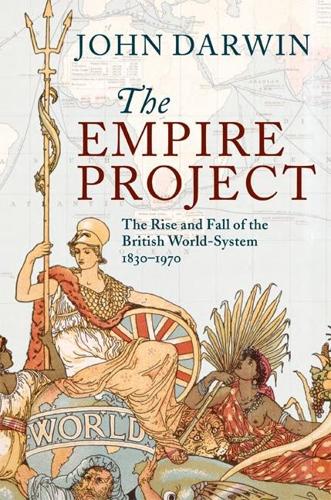
The Empire Project: The Rise and Fall of the British World-System, 1830–1970
by John Darwin · 23 Sep 2009
post-colonial states could make common cause, and mount a propaganda offensive against the remaining colonial powers. This trend was dramatically strengthened by the Suez crisis in 1956 after which Britain became for many ex-colonial states ‘Public Enemy Number One’.5 Their third assumption was also subject to rapid erosion as
…
of the Suez Canal, the New Zealand press was even more unbending than the Conservative diehards in Britain.25 At the height of the Suez crisis in November 1956, Holland asked himself: ‘Do we want to be in a position where Britain will say, or even think, we sought their help and
…
. He was anxious to reassert Britain's authority in Europe – the aim behind ‘Plan G’ whose formulation had coincided with the intense preoccupation with Suez in late 1956. ‘The inner balance of Europe is essential to the balance of world power’, he declared as an axiom in March 1953.62 Finally, Macmillan
…
Asian-African Conference at Bandung, Indonesia, April 1955 (Ithaca, NY, 1956). 5. W. R. Louis, ‘Public Enemy Number One: Britain and the United Nations in the Aftermath of Suez’, in W. R. Louis, Ends of British Imperialism: The Scramble for Empire, Suez and Decolonization (2006). 6. British Documents on the End of Empire
…
's Involvement in Middle East Defence and the Suez Crisis, 1947–1957 (Auckland, 1994), p. 183. 26. Holland's notes on Suez Crisis and New Zealand policy, 6 November 1956. Alister McIntosh Papers Ms 6759/079. For the private reservations in the New Zealand cabinet, see R. Pfeiffer, ‘New Zealand and the
…
Suez Crisis of 1956’, Journal of Imperial and Commonwealth History, 21, 1 (1993), 126–52. 27. See Anna Green, British Capital, Antipodean Labour: Working the New Zealand Waterfront 1915–
…
. 346. 90. The best accounts of the Suez crisis can be found in D. Carlton, Anthony Eden (1981); W. R. Louis and R. Owen (eds.), Suez 1956: The Crisis and its Consequences (Oxford, 1989); K. Kyle, The Suez Conflict (1989); and D. J. Dutton, Anthony Eden: A Life and a Reputation (1997
…
. 555. 99. For Commonwealth reactions, see J. Eayrs (ed.), The Commonwealth and Suez: A Documentary Survey (1964). 100. For a recent account, see Barry Turner, Suez 1956 (2006), which stresses the muddle and uncertainty of British operations. 101. See R. Worrall, ‘Britain and Libya: A Study of Military Bases and State Creation

The Rough Guide to Egypt (Rough Guide to...)
by Dan Richardson and Daniel Jacobs · 1 Feb 2013
against French occupation in 1798. A nationalist stronghold in colonial times, Al-Azhar was the venue for Nasser’s speech of defiance during the Suez invasion of 1956. The mosque is an accretion of centuries and styles, harmonious if confusing. You come in through the fifteenth-century Barber’s Gate, where students
…
’t seriously affect the “foreign” community (many of whom had lived here for generations) until the Anglo-French-Israeli assault on Egypt during the Suez Crisis of 1956, following which Nasser expelled all French and British citizens and nationalized foreign businesses, forcing a hundred thousand non-Egyptians to emigrate. Institutions, street names
…
Fri) • £E5 West of the centre (and south of the Corniche), Port Said’s Military Museum provides a strong sense of the Suez Canal’s embattled history. The 1956 Anglo–French–Israeli invasion is commemorated by lurid paintings and dioramas, while another room is dedicated to exhibits from the 10th Ramadam/Yom
…
British pressure. Nasser brought together British and Israeli interests by closing the Gulf of Aqaba to Israeli shipping and nationalizing the Suez Canal. Israel’s advance into Sinai in October 1956 was the agreed pretext for Anglo-French intervention in the Suez Crisis; the three states, though militarily successful, were compelled to

Egypt Travel Guide
by Lonely Planet
of the old one, but from the start there were political and engineering difficulties. In 1956, after the World Bank refused the promised loan for the project, Nasser ordered the nationalisation of the Suez Canal, which sparked the Suez Crisis in which France, the UK and Israel invaded the canal region. But Nasser
…
for more than 700 people, with brass name plates still affixed to the regular seats of male worshippers. Since the wars with Israel and the 1956 Suez Crisis, the community has dwindled and rarely musters the 10 men necessary to hold a service. Visits to this poignant and moving reminder of the
…
known as the Statue of Liberty and which instead once held a statue of Ferdinand de Lesseps, until it was torn down in 1956 with the nationalisation of the Suez Canal. East of here, on Sharia 23rd of July, is the Italian consulate building ( MAP GOOGLE MAP ; Sharia 23rd of July ), erected
…
little museum is worth a peek for its information on the canal and also for some rather bizarre exhibits (complete with toy soldiers) documenting the 1956 Suez Crisis and the 1967 and 1973 wars with Israel. In the museum gardens you can view a few captured US tanks with the Star of
…
canal remained in French and British hands for the next 86 years until, in the wake of Egyptian independence, President Gamal Abdel Nasser nationalised the Suez in 1956. The two European powers, in conjunction with Israel, invaded Egypt in an attempt to retake the waterway by force. In what came to be
…
man who had finally and publicly shaken off the colonial yoke. Two centuries of the adventures and interests of foreigners in Egypt, up to the 1956 Suez crisis, are brilliantly evoked in Lonely Planet author Anthony Sattin's Lifting the Veil. Neighbours & Friends Nasser’s show of strength in 1956 led to
…
in Cairo being burned. By the summer, Nasser and his fellow Free Officers have overthrown King Farouk and established the Republic of Egypt. 1956 After President Nasser nationalises the Suez Canal, British, French and Israeli forces attack the canal zone, but are forced to retreat. 1967 Egypt, Syria and Jordan are defeated
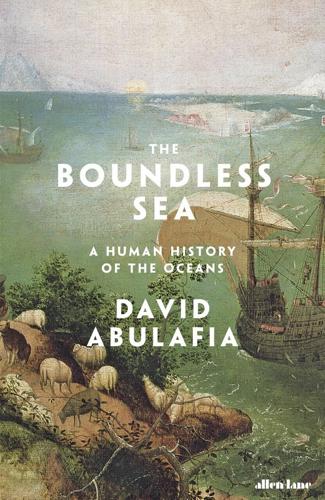
The Boundless Sea: A Human History of the Oceans
by David Abulafia · 2 Oct 2019 · 1,993pp · 478,072 words
,250,000 as a result of the 1966 strike, which left five of its ships stranded.7 Events such as the closure of the Suez Canal in November 1956, following the disastrous Anglo-French attempt to restore European control over the canal following its nationalization by the Egyptian government, threw British shipping
…
: a History of Alfred Holt and Company of Liverpool from 1865 to 1914 (Liverpool, 1956), pp. 20, 24. 14. G. Lo Giudice, L’Austria, Trieste ed il Canale di Suez (Catania, 1981), pp. 180–81; Marlowe, Making of the Suez Canal , p. 260. 15. McCullough, Path between the Seas , p. 34. 16. Index
…
, 887 German U-boats 881 , 882 , 888 , 891 Sudan 78 , 174 slave castration in Coptic monastery on Mount Jebel-Eter 832 Suez Canal xviii , 848–51 , 857 , 859 , 866 , 867 closure (1956) 896 nationalization 896 sugar xxiii , 104 , 118 , 154 , 238 , 429 , 454 , 459 , 485 , 500–501 , 545 , 676 , 717 , 718 , 772
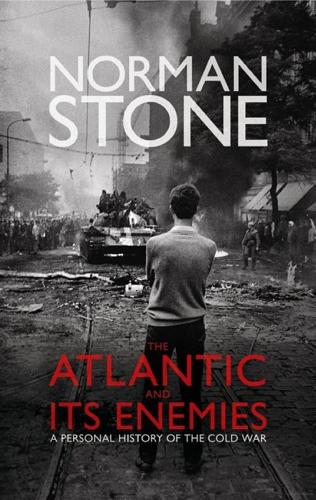
The Atlantic and Its Enemies: A History of the Cold War
by Norman Stone · 15 Feb 2010 · 851pp · 247,711 words
of nationalism and by 1950 that was gaining much ground. In the early 1950s the British and French were losing. In June 1956 the British withdrew the garrison from Suez. The beneficiary was an Egyptian army officer, Gamel Abdal Nasser, whose ambition it was to put Egypt at the head of an
…
a strategic commodity, and under Harold Ickes there had been sensible regulation - reserves were created, from the surplus, and in the war crises of 1951, 1956 (Suez) and 1967 the reserves had been used, to offset interruptions in supply and keep prices down. From 1957 to 1963 the surplus had amounted to
…
Strasbourg Strategic Defense Initiative (American; ‘Star Wars’) Strauss, Franz Josef Strong, Anna Louise student demonstrations student exchanges student loans Suez Canal Yom Kippur War (1973) Suez crisis (1956) Sukarno, President of Indonesia Sun Microsystems (corporation) Sunderland ‘supplyside’ economics Suslov, Mikhail Sussex University Suzdal Svoboda, Ludvík Swanson, Robert A. Sweden: automobile industry and
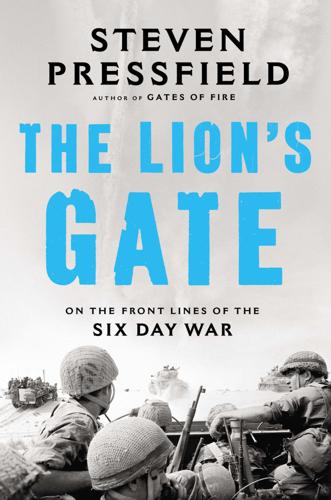
The Lion's Gate: On the Front Lines of the Six Day War
by Steven Pressfield · 5 May 2014 · 531pp · 139,948 words
. If that man were two feet taller, he could see, perhaps, for five miles. Dayan was this second man. His vision extended beyond others’. In 1956 Nasser nationalized the Suez Canal. This move took the world by surprise. It enraged the British and French, whose stockholders owned the
…
Suez Canal Company. At once these European powers determined to retake the Canal by force and to remove Nasser from power. Secret negotiations began between Britain
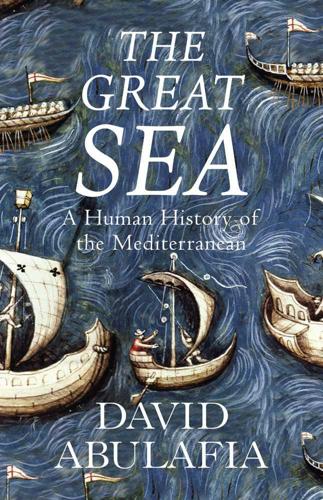
The Great Sea: A Human History of the Mediterranean
by David Abulafia · 4 May 2011 · 1,002pp · 276,865 words
situation forty years earlier, while those who had left found themselves unable to return. In Alexandria, the final act was delayed until 1956, when the nationalization of the Suez Canal was followed by the expropriation and expulsion of Italians, Jews and others at the orders of Gamal Abdel Nasser. The city reconstituted
…
perched next to Africa. Here stood the multinational court that dealt with commercial cases, and here Colonel Nasser delivered a rousing speech in 1956 announcing the nationalization of the Suez Canal. 69. Italian attempts to portray the occupation of Turkish Libya as part of a European civilizing mission were reinforced by illustrations
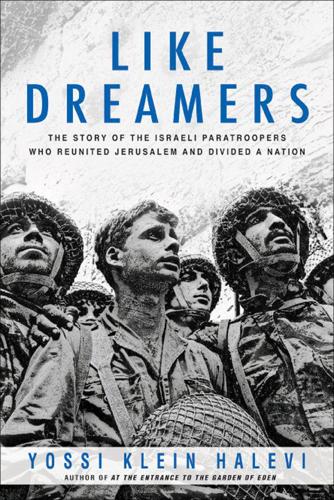
Like Dreamers: The Story of the Israeli Paratroopers Who Reunited Jerusalem and Divided a Nation
by Yossi Klein Halevi · 4 Nov 2014 · 752pp · 201,334 words
his infantry unit, one from the 28th Paratroopers’ Battalion. He ignored the first and showed up for the second; technically, he was now AWOL. The 1956 Suez War confirmed the paratroopers’ preeminence within the IDF. In the war’s most famous battle, paratroopers led by Motta Gur were caught in an ambush
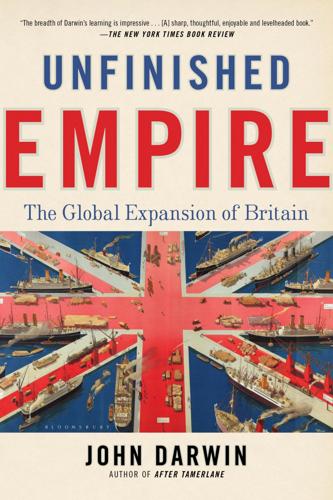
Unfinished Empire: The Global Expansion of Britain
by John Darwin · 12 Feb 2013
would be very protracted (at best), and that the margin of safety was very narrow indeed. This was the setting in which the Suez crisis exploded in 1956, with the force of a mine under the bows of a battleship.31 The crisis began when the Egyptian leader Colonel Nasser, charting a
…
peaceful partition. In the same year, he faced down Churchill’s opposition to force through the Suez Agreement that (ironically) had brought the withdrawal of all British troops from the Canal Zone in mid 1956. His aim was to end a commitment of limited military value and ease relations with Cairo. But
…
relationship with the Old Commonwealth lay at the heart of Britain’s claim to world power. Australia and New Zealand had been vociferously loyal over Suez in 1956. Indeed, from one point of view, Australia’s relations with Britain became closer than ever because Canberra was London’s invaluable partner in developing
…
(Oxford, 1976), pp. 1–63. 31. The best overall studies are K. Kyle, The Suez Conflict (London, 1989), W. R. Louis and R. Owen (eds.), Suez 1956: The Crisis and its Consequences (Oxford, 1989). D. R. Thorpe, Eden: The Life and Times of Anthony Eden (London, 2003) offers a more sympathetic view
…
: Britain and the United States in the Aftermath of Suez’, in his Ends of British Imperialism: The Scramble for Empire, Suez and Decolonisation (London, 2006). 34. Macmillan’s diary, 15 September 1956, P. Catterall (ed.), The Macmillan Diaries: The Cabinet Years 1950–1957 (London, 2003), p. 599. 35. What Macmillan actually said

A History of Modern Britain
by Andrew Marr · 2 Jul 2009 · 872pp · 259,208 words
. Among his weaknesses were his inherited foul temper and a racist disdain for Arabs. But for most people in 1956 Eden seemed an almost beau ideal, the man for the moment. Suez is often seen as a very short era of bad judgement, a crisis whose origins are obscure and whose consequences
…
the craft of politics would probably have happened anyway in modern Britain. But the events of the winter of 1956 hastened that decline. Even the military was affected. The call-up for Suez provoked widescale desertions and minor mutinies across Britain. Some 20,000 reservists were called back and many declined to
…
press about army mutinies and protest marches sent shockwaves through the forces. The biggest single difference between the Suez and Iraq crises was, of course, that the Americans did not want war in 1956 and were determined for it in 2003. Anguished letters and telephone transcripts tell the story of mutual misunderstanding
…
Number Ten practising with a snorkel – for it was to Ian Fleming’s Goldeneye that the Edens fled after Suez to recuperate. Ann was dubious about the idea, writing to Waugh in November 1956 that the Prime Minister’s wife ‘seemed disconcerted to hear that if one wished a bath, one had
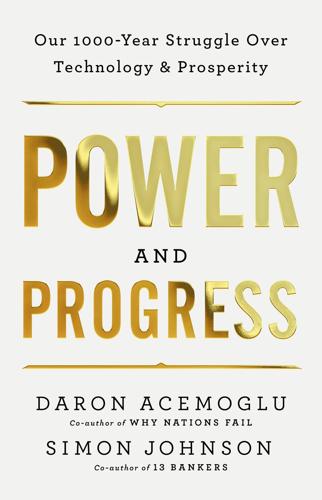
Power and Progress: Our Thousand-Year Struggle Over Technology and Prosperity
by Daron Acemoglu and Simon Johnson · 15 May 2023 · 619pp · 177,548 words
Finds Vision. Erie Canal details are from Bernstein (2005). Karabell (2003) has the early history of discussion around building the Suez Canal. Lesseps’s early efforts are in Wilson (1939), Beatty (1956), Marlowe (1964), Kinross (1969), Silvestre (1969), and Karabell (2003). The “Men of genius” point is highlighted by McCullough (1977, 79
…
, will be ignored. The name of the prince who will have opened the grand canal through the Suez will be blessed century after century for posterity.” Financial details on the share offering are in Beatty (1956, 181‒183), which includes this line from the prospectus: “The capital of the Company is limited
…
). Lesseps was quoting Lord Henry Scott. Frenchmen of Genius. This section draws directly on Karabell (2003). Early financial results from the Suez Canal are on page 270 of Beatty (1956); pages 271‒278 of the same source discuss subsequent political events as Britain moved to increase its sway over Egypt and the
…
Press. Basu, Susanto, and David N. Weil. 1998. “Appropriate Technology and Growth.” Quarterly Journal of Economics 113, no. 4: 1025‒1054. Beatty, Charles. 1956. De Lesseps of Suez: The Man and His Times. New York: Harper. Becker, Gary S. 1993. Human Capital, 3rd ed. Chicago: University of Chicago Press. Beckert, Sven. 2014
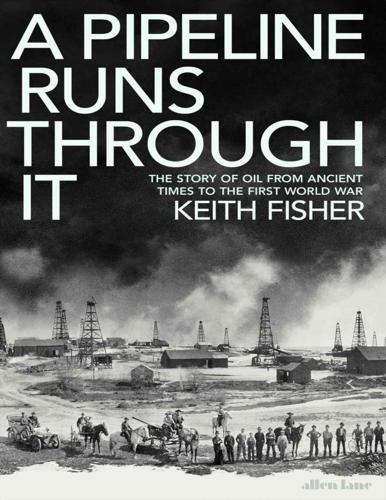
A Pipeline Runs Through It: The Story of Oil From Ancient Times to the First World War
by Keith Fisher · 3 Aug 2022
awareness – particularly the degree of British deception and subterfuge that opened the way for the invasion – it is the headwaters of the later Suez Crisis when, in 1956, British Prime Minister Anthony Eden would order another invasion of Egypt that, he would claim to US president Dwight Eisenhower, was necessary in order
…
, 1868). Falola, Toyin, Colonialism and Violence in Nigeria (Bloomington, IN: Indiana University Press, 2009). Farnie, D. A., East and West of Suez: The Suez Canal in History, 1854–1956 (Oxford: Clarendon Press, 1969). Fay, Sidney Bradshaw, The Origins of the World War (New York: Macmillan, 1928). Feis, Herbert, Europe: The World’s
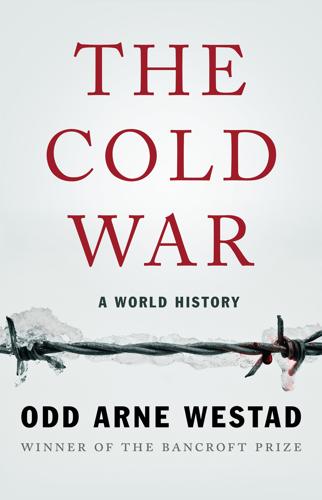
The Cold War: A World History
by Odd Arne Westad · 4 Sep 2017 · 846pp · 250,145 words
the British and French would intervene, claiming to separate the warring sides. Finally, as a simple addition, they would retake the Suez Canal. The Israelis went into action 29 October 1956, just as—in another theater—the Hungarian crisis reached its peak. French and British forces invaded Egypt on 5 November. With
…
and controlled. A decade or so later this political landscape was transformed. British and French domination was increasingly a thing of the past, and the 1956 Suez Crisis confirmed European frailties. So did France’s failing colonial war in Algeria. Arab nationalist revolutions were driving politics in Egypt, Syria, and Iraq. Palestine
…
., “Notes et études documentaires: Écrits et Discours du colonel Nasser,” 20.08.1956, no. 2.206 (Paris: La Documentation française, 1956), 16–21. 6. Quoted in Donald Neff, Warriors at Suez: Eisenhower Takes America into the Middle East (New York: Simon and Schuster, 1981), 376. 7. The Egyptian embassy in Washington had
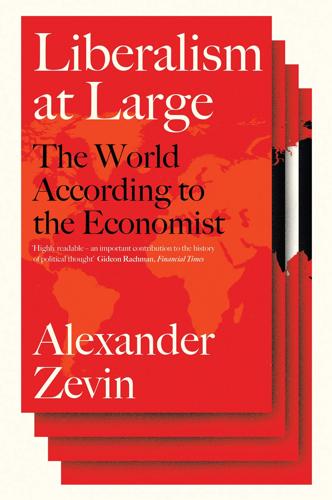
Liberalism at Large: The World According to the Economist
by Alex Zevin · 12 Nov 2019 · 767pp · 208,933 words
.’136 Crozier and his allies clashed spectacularly with those they found too soft at the Economist in 1956, as a sudden crisis engulfed the paper and its new editor. The Suez Crisis For the Economist, the Suez Crisis began in July 1956, when the US pulled its loan offer to build the Aswan
…
then a Commonwealth Fellowship to the US. There he received his first lessons in Atlanticism in 1956, when he called the British military attaché in Washington to enlist for service in the assault on the Suez Canal. The attaché hung up, and the patriotic Beedham deduced two things from an expedition that
…
falling to the Soviets. Crozier, Free Agent, pp. 24–26. 144.‘The Alliance’, 17 November 1956. 145.The run began in late October. The first week of November saw £31.7 million depart: Keith Kyle, Suez: Britain’s End of Empire in the Middle East, London 2003, pp. 464–65. 146.Ward

GCHQ
by Richard Aldrich · 10 Jun 2010 · 826pp · 231,966 words
at two other sites on Cyprus with a transmitter that could reach as far as Aden.30 On 29 October 1956 Eden launched ‘Operation Musketeer’, a surprise attack to capture the Suez Canal, which Nasser had recently nationalised. Sigint and radio warfare had an important part to play. Arrangements were made for
…
for the disputed Suez Canal Zone. Eisenhower and his Secretary of State John Foster Dulles were astonished by Anglo–French–Israeli collusion over Suez. In the autumn of 1956 Washington’s eyes were elsewhere, distracted by the uprising in Hungary, while in the Middle East its focus was on the possible breakup
…
Both NSA and the CIA had also failed to predict the Russian invasion of Hungary, so 1956 was not their best year.42 Deliberate American pressure on the pound eventually forced Britain’s ignominious withdrawal from Suez, and contributed to Eden’s sudden resignation in January 1957. Eden’s foreign policy may
…
knew it simply as the ‘bug shop’. Their work tended to reflect world events. The build-up to the Suez Crisis had resulted in a high demand for bugs, and in October 1956 officials noted, ‘This year the Factory has been kept fully occupied because in addition to the forecast programme of
…
, E., ‘Interview Lord Carrington’, Country Life, 30 August 2007 Rawnsley, G.D., ‘Cold War Radio in Crisis: The BBC Overseas Service, the Suez Crisis and the Hungarian Uprising, 1956’, Historical Journal of Film, Radio and Television, 15/2–3 (1995): 197–217 —‘Overt and Covert: The Voice of Britain and Black Radio
…
Broadcasting in the Suez Crisis, 1956’, IØNS, 11/3 (1996): 497–522 Robertson, K.G., ‘Recent Reform of Intelligence in the UK: Democratisation or Risk Management?’, IØNS, 13/2 (1988
…
505, 519 Stripp, Alan 109 submarines 6, 114–17, 125, 133–9, 142–7, 197, 259, 264–7, 337, 377–8, 384, 397, 404 Suez Crisis (1956) 156–9, 160, 181, 182, 213 Sugar (Vienna tunnel code) 171 Sugar Grove (West Virginia) 262 Suharto, President 168 Sukarno, President 164, 165, 167–8
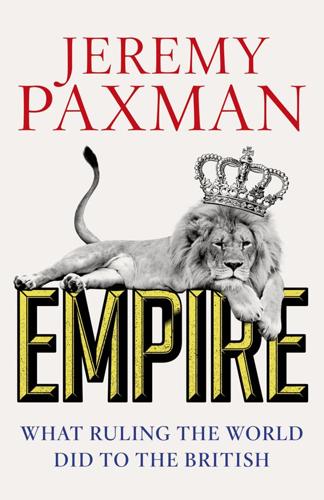
Empire: What Ruling the World Did to the British
by Jeremy Paxman · 6 Oct 2011 · 427pp · 124,692 words
imperialism and, in first undermining British attempts to manage the Palestine issue, and then seeing off the duplicity behind the plot to seize the Suez Canal in 1956, delivered mortal blows to the country’s self-confidence. Colonies seemed to belong to another time in history. And it had all passed so
…
Rise and Fall of the British Empire, p. 580. 265 ‘The seizure is’: The Times and the Daily Mail, 28 July 1956, quoted in Pearson, Sir Anthony Eden and the Suez Crisis, p. 29. 266 ‘The United States’: Dulles press conference, quoted in ibid., p . 115. 267 ‘I want him murdered’: Quoted
…
in Kyle, Suez, p. 99. 267 ‘Britain and the’: Daily Herald, 28 July 1956; quoted in Parmentier, ‘The British Press in the Suez Crisis’, p. 437, n. 12. 268 ‘I’m finished. I’: Quoted
…
Englishwoman in India (Edinburgh and London, 1909) Dooley, Howard, ‘Great Britain’s “Last Battle” in the Middle East: Notes on Cabinet Planning during the Suez Crisis of 1956’, International History Review 11 (1989) Dorril, Stephen, MI6: Inside the Covert World of Her Majesty’s Secret Intelligence Service (New York, 2002) Doyle, Arthur
…
Man-Eaters of Tsavo and Other East African Adventures (London, 1907) Pearson, Jonathan, Sir Anthony Eden and the Suez Crisis: Reluctant Gamble (Basingstoke, 2003) Perham, Marjorie, Lugard: The Years of Adventure, 1858–1898 (London, 1956) Peterhaus, Julian C. Kerbis and Thomas Patrick Gnoske, ‘The Science of “Man-eating” among Lions (Panthera leo
…
First World War ‘Your Country Needs You’ recruiting poster). By contrast, Anthony Eden, the Prime Minister responsible for the bungled attempt to capture the Suez Canal in 1956, had a weedy apology for a moustache (see p. 264). Other stigmata of empire were not on public display, although another distinguished empire historian
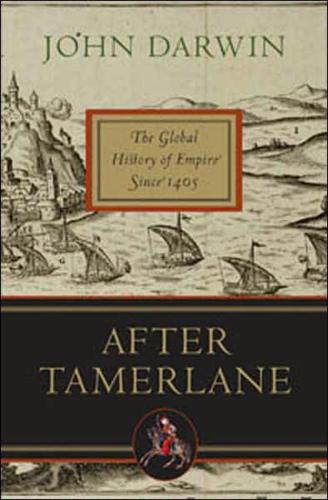
After Tamerlane: The Global History of Empire Since 1405
by John Darwin · 5 Feb 2008 · 650pp · 203,191 words
of the pan-Arab cause, and pan-Arab feeling into a dynamic force. The reaction in London was one of panic and rage. The Suez Crisis in 1956 grewdirectly out of this confrontation. When a loan to pay for Egypt’s Aswan High Dam was stalled in Washington, there was no going
…
. R. McCoan, Egypt (New York, 1876), p. 91. 115. The best modern study is D. A. Farnie, East and West of Suez: The Suez Canal in History, 1854–1956 (Oxford, 1969). 116. For the best study of Egypt’s social and political crisis, A. SchÖ lch, ‘Egypt for the Egyptians’: The Socio
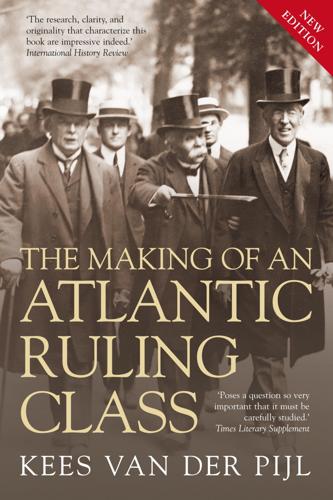
The Making of an Atlantic Ruling Class
by Kees Van der Pijl · 2 Jun 2014 · 572pp · 134,335 words
role “East of Suez” ’.56 Unavoidably, the Anglo-Saxon ‘special relationship’ underlying the Atlantic Union concept was the eventual victim of this development. The Suez affair in 1956 and the establishment of the EEC a year later may be seen as the watersheds in the tendential shift in economic power from the
…
the reins however, the return to power of the Tories in 1951 led to a restoration of reactionary liberalism, culminating in 1956 in a last try at empire. Only after the Suez debacle, could ELEC members Macmillan and Eccles, and the younger Tory modernizers, Heath and Maudling, take power under a corporate
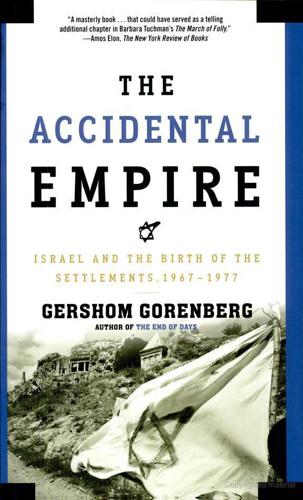
The Accidental Empire: Israel and the Birth of the Settlements, 1967-1977
by Gershom Gorenberg · 1 Jan 2006 · 600pp · 165,682 words
’s worth of Eastern Bloc weaponry via Czechoslovakia, his support for Algerian revolutionaries, his nationalization of the Suez Canal—all combined to make allies of Israel, Britain, and France. At the end of October 1956, Israeli prime minister David Ben-Gurion won his cabinet’s approval for an invasion of Egypt’s
…
. Johnson, the leader of Israel’s essential ally, did not press the point because he did not want to repeat America’s error in the 1956 Suez Crisis, and because his attention was elsewhere. Internally and internationally, it was easier to avoid decisions, or to keep them as vague as possible. Instead
…
Aviv: Israel Oriental Society, Reuven Shiloah Research Center. Morris, Benny. Milhamot Hagvul Shel Yisrael 1949–1956 (Israel’s Border Wars, 1949–1956: Arab Infiltration, Israeli Retaliation, and the Countdown to the Suez War). Tel Aviv: Am Oved, 1996. ———. Righteous Victims: A History of the Zionist-Arab Conflict 1881–1999. New York: Alfred
…
, www.yale.edu/lawweb/avalon/mideast/arm03.htm; Benny Morris, Milhamot Hagvul Shel Yisrael 1949–1956 (Israel’s Border Wars, 1949–1956: Arab Infiltration, Israeli Retaliation, and the Countdown to the Suez War) (Tel Aviv: Am Oved, 1996), 15ff. 3. Anita Shapira, Yigal Allon: Aviv Heldo (Igal Allon: Spring of His Life
…
Union Spain Spark of the Light of the Messiah, The (Cohen) Sprinzak, Ehud Stalin, Joseph Steinmatz, Avraham Straits of Tiran student revolutions Suez Canal Suez Crisis of 1956 Sukkot attack of 1968 Supreme Court, Israeli Syria Yom Kippur War and Syrian heights. See Golan Heights Tabaki, Hajja Rasmia Tabenkin, Yitzhak Tal, Yisrael
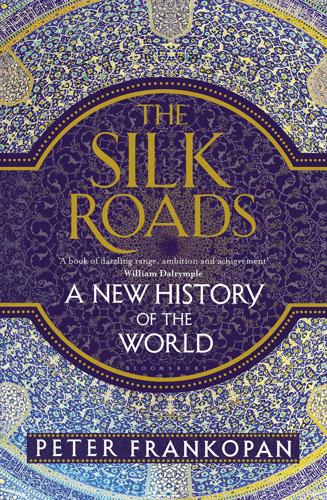
The Silk Roads: A New History of the World
by Peter Frankopan · 26 Aug 2015 · 1,042pp · 273,092 words
Napoleon of the Arabs’ – now escalated the situation.14 He pointedly responded to the British Foreign Secretary’s pompous comment in the spring of 1956 that the Suez canal was ‘an integral part of the Middle East oil complex’ and vital to Britain’s interests with the retort that if that was
…
–5. 13A. Moncrieff, Suez: Ten Years After (New York, 1966), pp. 40–1; D. Kunz, The Economic Diplomacy of the Suez Crisis (Chapel Hill, NC, 1991), p. 68. 14Eden to Eisenhower, 6 Sept 1956, FO 800/740. 15M. Heikal, Nasser: The Cairo Documents (London, 1972), p. 88. 16H. Macmillan, Diary, 25 August
…
1956, in A. Horne, Macmillan: The Official Biography (London, 2008), p. 447. 17Cited by McNamara, Britain, Nasser and the Balance of Power, p. 46. 18McNamara, Britain,
…
Presidency: The Middle Way (Baltimore, 1970), 17, p. 2415. 22See here W. Louis and R. Owen, Suez 1956: The Crisis and its Consequences (Oxford, 1989); P. Hahn, The United States, Great Britain, and Egypt, 1945–1956: Strategy and Diplomacy in the Early Cold War (Chapel Hill, NC, 1991). 23Eisenhower to Dulles, 12 December
…
1956, in P. Hahn, ‘Securing the Middle East: The Eisenhower Doctrine of 1957’, Presidential Studies Quarterly 36.1
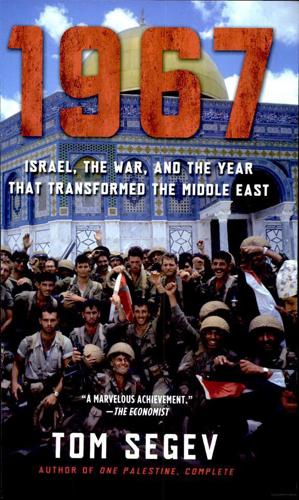
1967: Israel, the War, and the Year That Transformed the Middle East
by Tom Segev · 2 Jan 2007 · 1,145pp · 310,655 words
ran a large headline quoting the British Sunday Times of London: “Syria Fears a Suez-Style Israeli Invasion.” The Suez anniversary prompted the press to reveal details of a trilateral pact made in 1956 between Israel, France, and Britain, with the aim of removing Nasser from the Egyptian presidency and ensuring Western
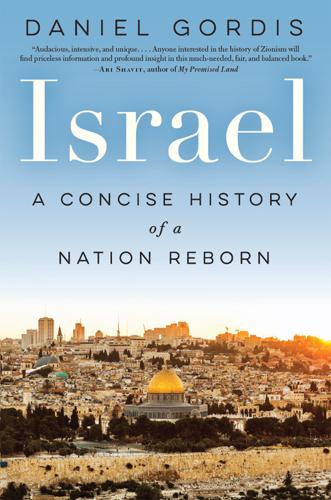
Israel: A Concise History of a Nation Reborn
by Daniel Gordis · 17 Oct 2016 · 632pp · 171,827 words
program at that time) to help Israel develop its nuclear capacity. Mired in anti-Arab sentiment (which came to the fore most obviously in the 1956 Suez Campaign) and a sense of obligation to the Jews in light of the pro-Nazi Vichy French government’s treatment of the Jews, France agreed
…
1956 until his death in 1970, Nasser led Pan-Arabism and sought to unite the Arab people around destroying Israel. He nationalized the Suez Canal, which led to the 1956 Sinai Campaign, and later triggered the Six-Day War. Nebuchadnezzar—King during Babylonia’s rule over Judea, Nebuchadnezzar destroyed the First Temple
…
: Routledge, 2005], p. 58). But Benny Morris calls that number “sheer nonsense.” (See Benny Morris, Israel’s Border Wars, 1949–1956: Arab Infiltration, Israeli Retaliation, and the Countdown to the Suez War [Oxford: Oxford University Press: 1993], p. 101.) Conservative estimates are several hundred. 3Morris, Israel’s Border Wars, 1949–1956, Kindle
…
, 2015]. ———. 1948: The First Arab-Israeli War. New Haven and London: Yale University Press, 2008. ———. Israel’s Border Wars 1949–1956: Arab Infiltration, Israeli Retaliation, and the Countdown to the Suez War. Oxford: Oxford University Press, 1993. ———. One State, Two States: Resolving the Israel/Palestine Conflict. New Haven: Yale University Press, 2010

Roller-Coaster: Europe, 1950-2017
by Ian Kershaw · 29 Aug 2018 · 736pp · 233,366 words
Germans were especially sensitive to the threat to world peace posed by an international crisis. In October 1956, for instance, the double crisis over the popular insurrection in Hungary and the ill-fated Suez adventure of Britain and France prompted fears of war in West Germany that were not widely felt in
…
that the proposal would be rejected, would launch air and sea attacks, ‘restore order’, and so regain control over the Suez Canal. The Israeli invasion went ahead on 29 October 1956. Two days later Nasser closed the Suez Canal to shipping; it would not open again until early the following year. On
…
this fundamental reassessment was made, the end of empire came rapidly – and with remarkably little lamentation within Britain. Sudan’s independence in January 1956 had in fact preceded Suez. Ghana (formerly the Gold Coast) gained its independence in March 1957. Malaya, the most economically valuable colony that remained, became independent in July
…
of Western Europe came, however, with the oil crisis of 1973. This followed the fourth and largest Arab–Israeli War – after those of 1948, 1956 (the Suez debacle) and the Six-Day War of 1967 that had brought Israel huge gains in territory. The Arab countries had, unsurprisingly, refused to accept the
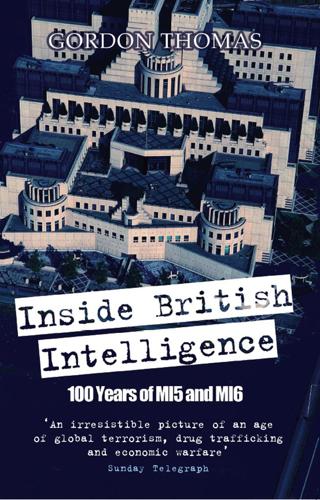
Inside British Intelligence
by Gordon Thomas
France’s intelligence service and Israel’s Mossad and to exclude the CIA from the secret planning beginning to develop in the summer of 1956 to secure the Suez Canal for Britain. ONE OF THE FIRST APPROVALS DICK WHITE had given after becoming chief was to circulate a document that read like
…
the first peacetime British prime minister to sanction the cold-blooded murder of a head of state. ON JULY 26, 1956, IN THE PORT OF ALEXANDRIA at the Mediterranean end of the Suez Canal, Nasser announced he would nationalize the waterway. Foreign correspondents, among them the author, noted the president was calm
…
a head of state. The wish to assassinate a head of state would be part of Anthony Eden’s legacy. By December 22, 1956, the invaders of the Suez Canal, having only advanced a few miles up the waterway, finally withdrew from Egypt under the relentless pressure from the United States. In
…
the gaps in previously published material. The research for this book spanned some fifty years of my own career, which took me from the Suez Crisis in 1956 to Africa, the Middle East, Asia, and Europe to the present day. In all those continents I picked up the footprints of MI5 and
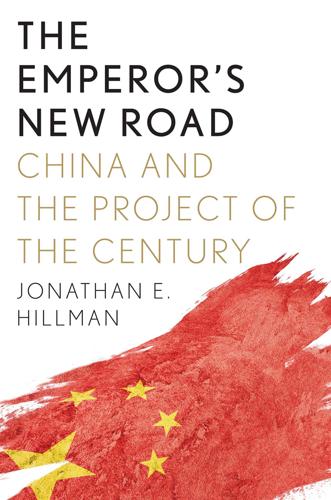
The Emperor's New Road: How China's New Silk Road Is Remaking the World
by Jonathan Hillman · 28 Sep 2020 · 388pp · 99,023 words
is not only a waterway, it is a province conquered from the desert,” bragged a former general counsel of the Suez Canal Company, which built and operated the canal until the 1956 Suez Crisis.10 Few projects in history have bent geography as the Suez did. Previously, a ship sailing from Asia
…
to Assab, a port city on modern-day Eritrea’s coast. Its tracks were damaged during World War II, and the closure of the Suez Canal in 1956 choked activity through the ports.28 Having survived all of that, the railway eventually succumbed to something dull but deadly: routine maintenance. In the
…
,” Encyclopedia.com, accessed February 4, 2020, https://www.encyclopedia.com/people/history/egyptian-history-biographies/khedive-egypt-ismail. 15. Caroline Piquet, “The Suez Company’s Concession in Egypt, 1854–1956: Modern Infrastructure and Local Economic Development,” Enterprise and Society 5, no. 1 (2004): 107–127, https://muse.jhu.edu/article/53850. 16
…
company’s capital, to revise these provisions. Olukoya Ogen, “The Economic Lifeline of British Global Empire: A Reconsideration of the Historical Dynamics of the Suez Canal, 1869–1956,” Journal of International Social Research 1, no. 5 (Fall 2008): 527, http://www.sosyalarastirmalar.com/cilt1/sayi5/sayi5pdf/ogen_olukoya.pdf. 17. Piquet, “Suez
…
, Leland, (i) Starr, S. Frederick, (i), (ii)n68 state-owned enterprises (China): BRI role and influence in foreign countries, (i) Suez Canal Company, (i), (ii) Suez Crisis (1956), (i) Switzerland and BRI cooperation, (i), (ii) Syria, Russian role in, (i) Syriza (Greek left-wing party), (i) Tajikistan: BRI effect on, (i); Chinese

Winds of Change
by Peter Hennessy · 27 Aug 2019 · 891pp · 220,950 words
With Britain’ titles, which ran as part of a series of Penguin specials between 1955 and 1965, picking up pace and bite after the Suez crisis of 1956.11 They were written by men and women born in the 1920s and 1930s. The cumulative effect of the ‘What’s Wrong …’ literature and
…
, in one way or another, trying to find a practical solution to the problem of their interconnection’ (a remarkably insouciant description of what, certainly since Suez in 1956, had been an increasingly desperate business).fn14 With a quick glance towards ‘the moral side’ of European integration – ‘the reconciliation of France and Germany
…
Berlin to prevent the refugee exodus.’61 The early Sixties saw a second peak of Cold War hostility (the Suez crisis and the invasion of Hungary by the USSR in the autumn of 1956 were moments of great East–West peril rather than a prolonged period). The first phase grew during the
…
the question of Britain and Europe lurking in its ever unsettling way and having suffered two very public international humiliations within seven years (the Suez crisis of 1956 and de Gaulle’s ‘Non’ of 1963), this might have been the moment to take a long, hard look at Britain’s place in
…
Strath Report (1955) 223–4, 234, 273, 291, 293–5 Strauss, Franz Josef 48 Strauss, Lewis 354 Strong, Kenneth 252 Study of History (Toynbee) 192 Suez crisis (1956) 19, 100, 182, 356, 468, 481 ‘Suggested Scheme of Motorways’ (1942) 171 Summer Holiday (film) 459 Sunshades in October (Macrae) 24 Swann, Donald 318
…
hugely influential book by the Regius Professor of Modern History at Cambridge remained in print for seventy-three years until, appropriately enough, the year of Suez (1956) (William Roger Louis, ‘The Historiography of the British Empire’ (1999), reproduced in William Roger Louis, Ends of British Imperialism: The Scramble for Empire, Suez and
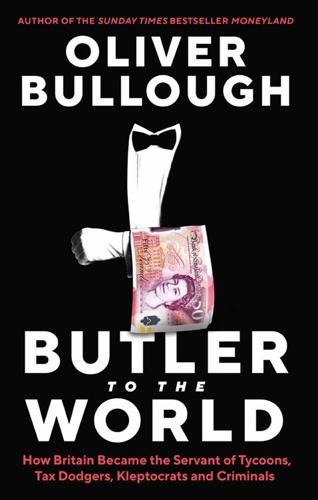
Butler to the World: How Britain Became the Servant of Tycoons, Tax Dodgers, Kleptocrats and Criminals
by Oliver Bullough · 10 Mar 2022 · 257pp · 80,698 words
England could not force bankers to abide by voluntary restrictions. That would be that most of ghastly of things, ‘embarrassing’. And then came the Suez Crisis of 1956, the prolonged stand-off over the nationalisation of the canal, the airborne and amphibious landings in Egypt, the speculative attacks on sterling and the
…
the key date to understand modern Britain is not 1940, 1945 or 1973, nor any of the others I have heard. It is 1956, the year of the Suez Crisis and the year the City of London gave birth to offshore finance. Surely whatever their differences, whichever year they see as giving

Water: A Biography
by Giulio Boccaletti · 13 Sep 2021 · 485pp · 133,655 words
.S.A. Just a few days later, Nasser showed what he meant. Surprising the world, at a speech on July 26, 1956, in Alexandria, Nasser announced the nationalization of the Suez Canal, taking advantage of the final withdrawal of British troops. The great nineteenth-century project that had heralded the era of
…
a speech: “Discours de Gamal Abdel Nasser sur la nationalisation de la Compagnie du canal de Suez (Alexandrie, 26 juillet 1956),” in Notes et études documentaires: Écrits et Discours du colonel Nasser (Paris: La Documentation française, 1956), 16–21. Naturally, the decision to build the dam: Mansfield, A History of the Middle
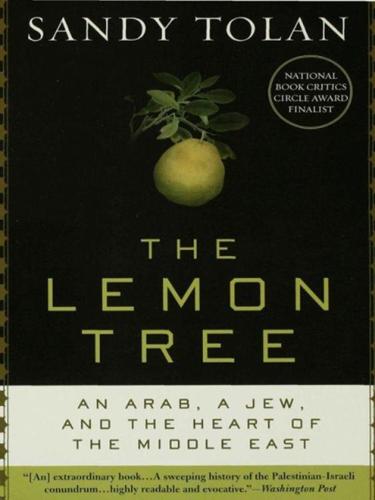
Lemon Tree: An Arab, a Jew, and the Heart of the Middle East
by Sandy Tolan · 1 Jan 2006 · 488pp · 150,477 words
of its maritime trade, but nevertheless, closing the straits would be a grave step. Indeed, the last time Nasser closed the straits, during the Suez crisis of 1956, he provoked an Israeli attack. Privately, Nasser had sent signals to supporters and diplomats that he didn't want war with Israel. By May
…
& Co., 1990. Morris, Benny. 1948 and After: Israel and the Palestinians. Oxford: Clarendon Press, 1994. —. Israel's Border Wars, 1949—1956: Arab Infiltration, Israeli Retaliation, and the Countdown to the Suez War. Oxford: Clarendon Press, 1993. —. Righteous Victims: A History of the Zionist Arab Conflict, 1881—2001. New York: Vintage Books, 2001
…
markets of the British Empire . . ." The Egyptian restrictions in the Suez are mentioned on p. 220 of J. C. Hurewitz's The Historical Context for Suez 1956: The Crisis and Its Consequences. Dalia's memory of her early education about Arabs is corroborated by a review of Israeli school curriculum in The
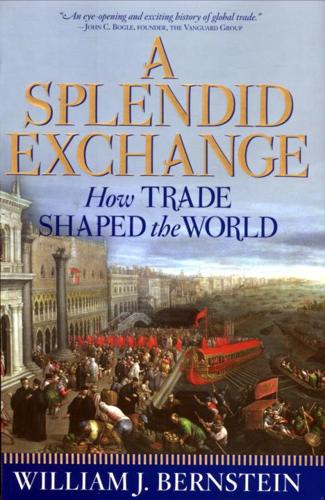
A Splendid Exchange: How Trade Shaped the World
by William J. Bernstein · 5 May 2009 · 565pp · 164,405 words
is not merely possible or probable, but nearly certain. Those who doubt this should consider some recent history. The Suez area has sparked two conflicts in the twentieth century alone: one in 1956 involving Egypt, Israel, Britain, and France; and another in 1967, the Six-Day War, after which it was closed
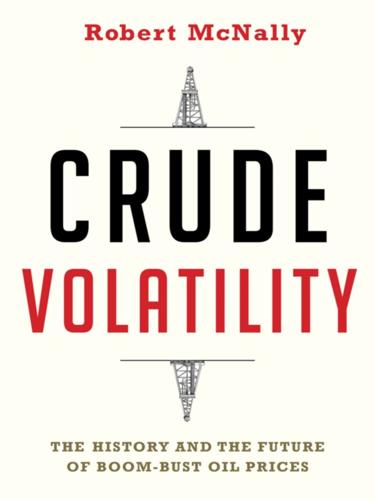
Crude Volatility: The History and the Future of Boom-Bust Oil Prices
by Robert McNally · 17 Jan 2017 · 436pp · 114,278 words
high and outpacing demand.119 The price hike stemmed, at least in part, from lower TRC quotas. The third price hike was precipitated by the 1956 Suez Crisis, and serves as a good illustration not just of the impact of TRC involvement but of the difficulty in managing a global market—and
…
the 1950s and early 1980s. Acting as the swing producer also required adding supply in the case of a geopolitical disruption—as seen during the 1956–1957 Suez Crisis, 1967 Six-Day War, and Gulf Wars—and also when supply and demand conditions tightened. Around 2008 we exited over seven consecutive decades
…
; de Chazeau and Kahn, Integration and Competition, 192–93. 120. United Press, “Boost in Production of Oil,” Medford Mail Tribune, September 18, 1956, 1. 121. “Oil Allowable Cut Despite Suez Crisis,” Valley Morning Star (Harlingen, Tex.: September 21, 1956, 15. 122. Hamilton, “Historical Oil Shocks,” 11. 123. Associated Press, “16-Day Allowable
…
://www.woodmac.com/analysis/PreFID-2016-USD380bn-capex-deferred. Woods, Sam, and Raymond Brooks. “The Ship of State: Suez Impact Already Being Felt on Texas Oil With More Ahead.” Waco Tribune-Herald, November 25, 1956, 10. World Oil. “U.S. Shale Operators May Be the New Swing Producers.” August 19, 2015. http
…
, 136, 198, 199–201, 272n57, 275n22, 280n41 strikes, 187; in Iran, 139, 141; in Venezuela, 167, 175, 243n5 stripper wells, 71, 81, 93, 268n44 Suez Crisis (1956–1957), 97–100, 98, 226 sulfur, 170 Sunni-Shia relations, 265n81 supply and demand, 103, 250n44; from 1945 and 1970, 106; in 1970s, 123–24
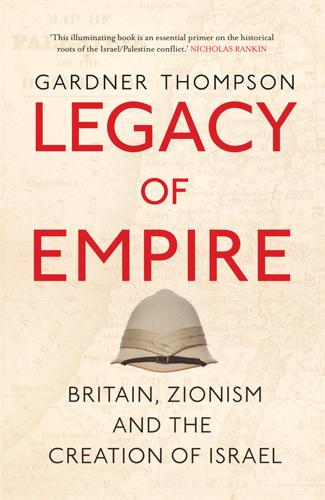
Legacy of Empire
by Gardner Thompson · 427pp · 114,531 words
. 7. Morris, p. 214. ‘Were driven from or fled from’ touches on a major and continuing issue of debate. 8. ‘The Hidden Question’. 9. The 1956 Suez Crisis arose from the invasion of Egypt by Israel, and subsequently by Britain and France, following the decision of Egypt’s ruler, General Gamal Abdel
…
Haganah, 265–6, 271 Haifa, 266 IDF 266, 270, 271 Israeli victory, 271, 274 Palestinian refugees, 274, 276 terrorism, 265 truce, 270 yishuv, 264–6 1956 Suez Crisis (Second Arab–Israeli War), 272, 332n9 1967 Six Day War (Third Arab-Israeli War), 272–3, 274, 284 Palestinian refugees, 274 settlement programme, 274
…
Mediterranean, xvi–xvii, 11, 45, 62, 66, 79, 94 The Economist (newspaper), 101 Eder, David, 119–20 Egypt, 45, 274 1936 demonstrations and strikes, 218 1956 Suez Crisis, 272, 332n9 1967 Six Day War, 272–3 1973 Yom Kippur, 273 Britain and, 11, 63, 69, 139 Gaza, 271, 272 Einstein, Albert, 47
…
Jewish state in Palestine Stein, Kenneth, 25, 163, 210 Stern, Avraham, 245 Stern Gang, 245–6, 332n4 Storrs, Ronald, 175 Suez Canal, 61, 63, 69, 77, 82, 83, 94, 139, 140, 256 1956 Suez Crisis, 272, 332n9 Sykes, Mark, Sir, 66, 87, 93, 95, 109 anti-Semitism, 87 Zionism, 140 see also

Arabs: A 3,000 Year History of Peoples, Tribes and Empires
by Tim Mackintosh-Smith · 2 Mar 2019
corruption that was Cairo. What would change everything, giving Nasser an intercontinental audience and inspiring him to gather the word of Arabs everywhere, was Suez. In July 1956 the Americans, true to their threat, withdrew the offer of funding for the Aswan Dam. A week later Nasser nationalized the Suez Canal Company
…
became president, was exactly when the small but powerful offspring of the old valve wireless set, the transistor radio, was first produced commercially; 1956, the year of Suez, was when it became widely and cheaply available. Under the colonial nose from the Interzone of Tangier to the Free Zone of Aden, these
…
; the British in Palestine; the French in Algeria, where a bloody war for independence had begun in 1954; Britain, France and Israel in cahoots at Suez in 1956 . . . It was all a crescendo of broken promises, a catalogue of duplicity and dashed hopes, and it left Arabs both suspicious of outsiders’ intentions
…
failed assassination attempt on Nasser by Muslim Brotherhood war of liberation begins in Algeria 1955 Saudis expelled from al-Buraymi (Oman–Abu Dhabi border) 1956 Nasser nationalizes Suez Canal Britain, France and Israel confront Egypt in Canal Zone USSR and USA force Britain, France and Israel to withdraw French grant independence to
…
) Stephenson, Robert (i), (ii) Stern Gang (i) Strabo (i) Sudan and the Sudanese (i), (ii), (iii), (iv), (v), (vi) Suez (i), (ii), (iii) Canal (i), (ii), (iii), (iv), (v), (vi), (vii), (viii) Crisis (1956) (i), (ii) Sufis and Sufism (i), (ii), (iii), (iv), (v), (vi), (vii), (viii), (ix) Sulawesi (i) Sulaym, Banu
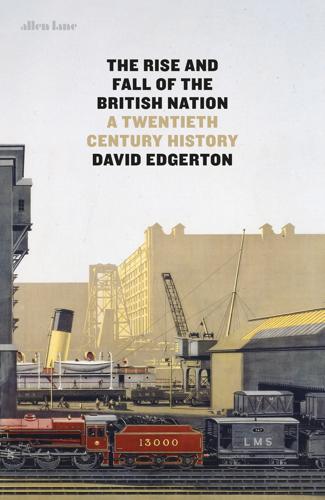
The Rise and Fall of the British Nation: A Twentieth-Century History
by David Edgerton · 27 Jun 2018
outrage from the British Labour government). This was easily the single most important British asset anywhere in the world. The Suez Canal Company, another partly British government enterprise, was nationalized in 1956 by the Egyptian government. GENTLEMANLY FINANCIAL CAPITALISTS? In the 1960s it became a common critique from the left that the
…
. Goaded by die-hard Tories organized as the ‘Suez group’, he took actions which many inside the government machine thought insane.51 The Suez group was formed not in 1956, but in 1954, to campaign against the British withdrawal from the military bases in the Canal Zone in that year. The British
…
British hydrogen bomb. That might itself indicate the crushing power of the consensus. However, as shadow foreign secretary (from 1956), he, with Gaitskell, was outspoken in his opposition to the whole Suez operation. But where the Bevanite revolt finished a new extra-parliamentary campaign took off. The Campaign for Nuclear Disarmament was
…
in 1954. But in the interim more than 400 members of the British armed forces had been killed, many more than died in the Suez operation of 1956. The typical operations were in internal counter-insurgency against British subjects, notably in Malaya, Kenya, Cyprus, Aden and Northern Ireland (the last of which

Enemies and Neighbours: Arabs and Jews in Palestine and Israel, 1917-2017
by Ian Black · 2 Nov 2017 · 674pp · 201,633 words
East and the world, spelling an end, in time, to Britain’s presence in the region. The Suez war also had an impact closer to home. On the eve of hostilities, on 29 October 1956, the Israeli authorities imposed a 5 p.m. curfew on villages near the border with Jordan. In
…
to Israel’s request for $10 billion in loan guarantees to help the settlement of Soviet immigrants. It was the first time since the Suez crisis in 1956 that a US administration had made financial aid conditional on a change in Israeli policy. MEETING IN MADRID Everyone recognized that the stakes at
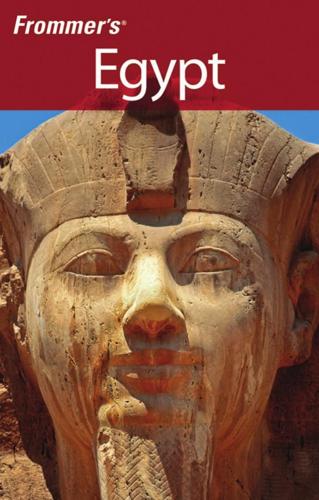
Frommer's Egypt
by Matthew Carrington · 8 Sep 2008
of Al Qatai, built by breakaway Abassid ruler Ahmad ibn Tulun in the late 9th century. Unlike the Fatimid city, however, Al Qatai was completely 1956 Suez Crisis is prompted by Nasser’s threat to nationalize the canal and close the Straits of Tiran; Great Britain, France, and Israel invade the canal
…
countries, where large numbers of Egyptians work in low-status jobs. The third source of money here is the Suez Canal, seized from the British and French by the Egyptian government in 1956. The fees paid by ships for traversing the 14_259290-bapp01.qxp 308 7/22/08 12:40 AM
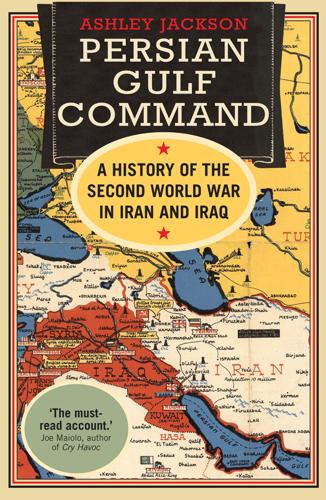
Persian Gulf Command: A History of the Second World War in Iran and Iraq
by Ashley Jackson · 15 May 2018 · 714pp · 188,602 words
overruled, and Britain’s position in the Middle East was to be precipitously diminished by the aftermath of the 1953 Iran episode, Nasserism, the Suez crisis of 1956 and the Iraqi revolution of 1958. During the course of this revolution, the wartime regent Prince Abdulillah and King Faisal II were machine-gunned
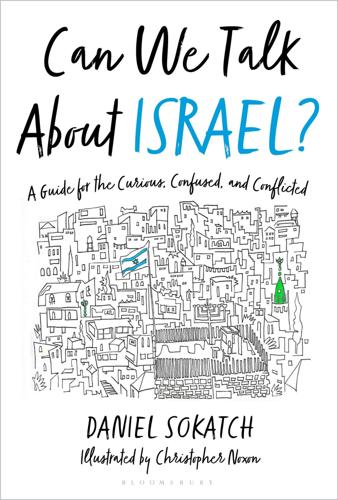
Can We Talk About Israel?: A Guide for the Curious, Confused, and Conflicted
by Daniel Sokatch · 18 Oct 2021 · 556pp · 95,955 words
the country’s Jewish population, and decades of intermarriage with Ashkenazi Jews has resulted in a mix of Jewish cultures that is uniquely Israeli. THE 1956 SUEZ CRISIS: THE WAR BETWEEN THE WARS In the 1950s, as Israel was figuring out its identity, the Arab world was experiencing enormous changes. In 1952
…
BANG The 1967 War and the Reality It Created STUMBLING TOWARD THE SIX-DAY WAR: A SERIES OF UNFORTUNATE EVENTS Riding high after the Suez Crisis of 1956—despite the fact that, technically, Egypt had lost the war—Nasser moved to solidify his status as the leader of the Arab world. For
…
killed in the fighting, as well as many thousands of Lebanese and Palestinian civilians. For the first time, Israelis felt (perhaps conveniently forgetting the Suez Campaign of 1956) that their country had initiated a war of choice as opposed to necessity. The traditional faith Israelis had had in their government and institutions

Jerusalem: The Biography
by Simon Sebag-Montefiore · 27 Jan 2011 · 1,364pp · 272,257 words
against Israel, which responded with increasing violence. His leadership of the most powerful Arab nation, Egypt, alarmed Israel. In 1956, he challenged the vestiges of the Anglo-French empires by nationalizing the Suez Canal and backing the Algerian rebels against France. London and Paris, determined to destroy him, made a secret alliance

1948: A History of the First Arab-Israeli War
by Benny Morris · 27 Apr 2009 · 736pp · 210,277 words
Israeli-Syrian and IsraeliEgyptian frontiers as the three countries fought over control of the DMZs, a struggle that was one of the precipitants to the 1956 Suez-Sinai War between Egypt and Israel (and Britain and France) and between the Israelis and the Syrians in 1967. Nonetheless, down to 1967 the armistice
…
. . "The Historiography of Deir Yassin." Journal of Israeli History 24, no. i (2005): 76 -104. . Israel's Border Wars, 1949 -1956: Arab Infiltration, Israeli Retaliation, and the Countdown to the Suez War. Oxford: Clarendon Press, 1997• .1948 and After: Israel and the Palestinians. Rev. and expanded ed. Oxford: Clarendon Press, 1994. . "Operation
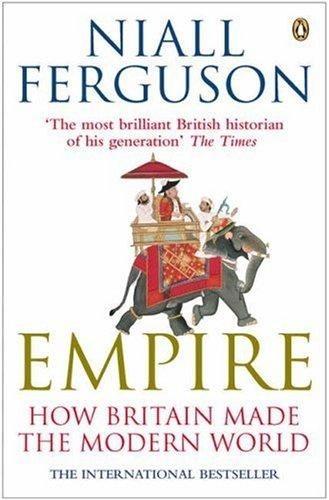
Empire: How Britain Made the Modern World
by Niall Ferguson · 1 Jan 2002 · 469pp · 146,487 words
’, cartoon by Conrado Massaguer The Empire sunk: Egyptians mob Colonel Gamal Abdel-Nasser, 29 March 1954; The blockade of Port Said during the Suez Crisis, 19 November 1956 Illustration Acknowledgements Photographic acknowledgements are given in parentheses. Every effort has been made to contact all copyright holders. The publishers will be happy to
…
during a demonstration against the proposed dissolution of the Revolutionary Council, Egypt, 29 March 1954 (Hulton Archive) 36 Blockade of Port Said during the Suez Crisis, 19 November 1956 (© Hulton-Deutsch Collection/Corbis) Bibliography The following is not intended as a comprehensive bibliography of imperial history, which would occupy an excessive number
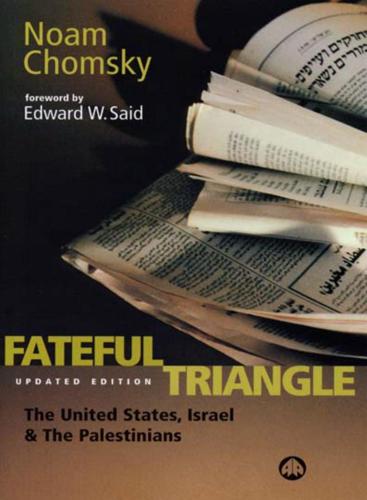
Fateful Triangle: The United States, Israel, and the Palestinians (Updated Edition) (South End Press Classics Series)
by Noam Chomsky · 1 Apr 1999
involvement in the region persisted. The U.S. strongly opposed the attempt by Britain and France to reassert their influence in the area with the 1956 Suez invasion (in conjunction with Israel); the U.S. was instrumental in expelling all three powers from Egyptian territory, though Soviet threats may also have played
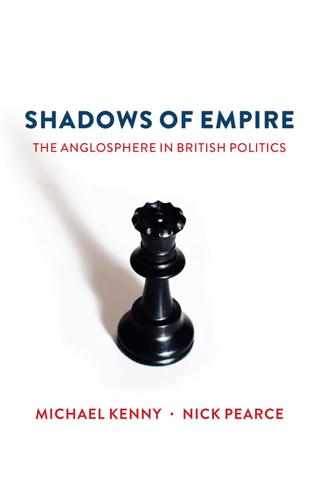
Shadows of Empire: The Anglosphere in British Politics
by Michael Kenny and Nick Pearce · 5 Jun 2018 · 215pp · 64,460 words
markedly. Powell was a member of the Suez Group of Tory MPs who opposed the removal of British troops from the Suez Canal. But, after British troops left in June 1956, he broke with this faction and voted against the attempt to retake the canal on the grounds that Britain could no
…
within the new conditions created by the USA after the war, including a global economy governed by Bretton Woods institutions. But, following the debacle of Suez in 1956, repeated currency crises, and the drift into relative economic decline, Britain's political establishment looked for new solutions and so came to seek entry
…
attitude sovereignty see national identity and sovereignty Soviet Union; see also Russia Spanish–American War (1898) Star Wars Defence programme Stephenson, Neal Steyn, Mark Sudan Suez crisis (1956) terrorism see 9/11; War on Terror Tharoor, Shashi Thatcher, Margaret: and Anglosphere; Bruges speech (1988); and Commonwealth; and EU; influence on Conservative Party
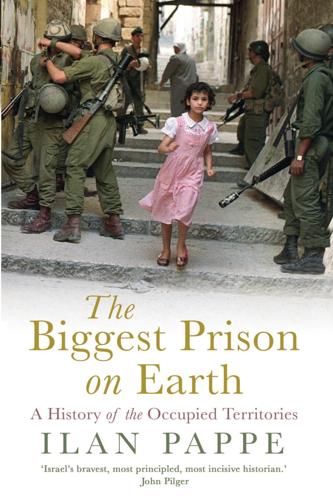
The Biggest Prison on Earth: A History of the Occupied Territories
by Ilan Pappé · 21 Jun 2017 · 356pp · 97,794 words
to power he translated these aggressive thoughts into action. In collusion with Britain and France, he led Israel into a war against Egypt in October 1956, the Suez campaign, and, despite being forced to withdraw from the Sinai by both the US and USSR, he did not abandon this belligerent policy. For
…
Stones: The Words Behind the Palestinian Intifada, Tel Aviv: Kibbutz Meuhad, 1989 (Hebrew) Morris, Benny, Israel’s Border Wars, 1948–1956: Arab Infiltration, Israeli Retaliation, and the Countdown to the Suez War, Oxford: Oxford University Press, 1997 Müller, Patrick, ‘Occupation in Hebron: Settlements and the State of Israel’, News from Within, Volume
…
, 23, 33, 34, 43 and borders 65, 68 and peace process 151–2 and Syria 26, 28 Straits of Tiran 23, 29, 30, 36 Suez campaign (1956) 16–17 Sufian, Fatmah Hassan Tabashe 183–4 suicide bombs xxx, 83, 189, 192, 206 Supreme Court of Israel xx, 141–2, 163 Susser, Leslie
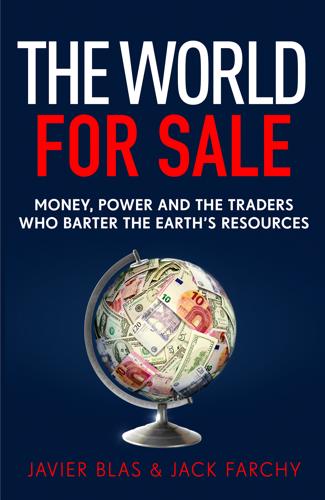
The World for Sale: Money, Power and the Traders Who Barter the Earth’s Resources
by Javier Blas and Jack Farchy · 25 Feb 2021 · 565pp · 134,138 words
insights. And the traders’ intelligence networks were enormously valuable, allowing them to make better-informed bets on the market than their competitors. During the Suez Crisis in 1956, when Israeli, French and British troops moved into Egypt, Cargill’s traders in Geneva bet that shipping costs would rise. Then the crisis closed
…
, 310 IPO, views on, 277 –8 metals trade, 57 profits, 38 , 248 , 249 shareholders, 277 –8 Soviet Union, trade with, 31 , 38 –42 , 135 Suez Crisis (1956), 36 Tradax International and, 30 , 40 –41 , 242 Ukraine, trade with, 162 Zimbabwe, trade with, 230 –32 Cargill, Margaret, 277 Cargill family, 19 , 249 , 277
…
, Eddie, 86 Egypt, 28 food price crisis (2007–8), 240 October War (1973), 53 oil production, 168 Revolution (2011), 247 Six-Day War (1967), 45 Suez Crisis (1956), 36 Eilat–Ashkelon pipeline, 43 , 45 , 46 –7 , 49 –51 , 94 , 285 –6 electric cars, 9 , 223 electricity, 79 , 81 , 172 Elf Aquitaine, 61
…
), 271 –3 G7 summit (1979), 70 Libyan Civil War (2011), 1 –8 pension funds, 269 , 278 Scottish independence referendum (2014), 291 shareholder spring (2012), 271 Suez Crisis (1956), 36 Tarasov in, 136 –7 United Nations Convention against Corruption, 275 Iraq sanctions, 101 , 198 , 200 , 201 , 202 sanctions, use of, 309 South Africa
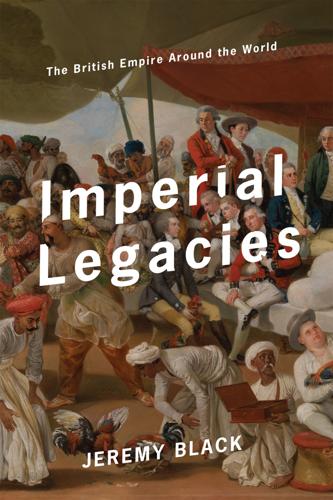
Imperial Legacies
by Jeremy Black; · 14 Jul 2019 · 264pp · 74,688 words
by the British. Roosevelt also criticized the British stance over India. Anti-imperial attitudes were seen in American policy at the time of the Suez Crisis of 1956, which became a fundamental defeat for the British Empire, as it led to a crucial loss of confidence. This process of continuing American hostility
…
the newly independent states, such as Egypt, were authoritarian and/or militaristic, a point that underlines the complexity of judging British policy in the Suez Crisis of 1956.18 Moreover, “the underlying centrality of slavery in the historical relationship between Egypt and the Sudan” was such that anti-colonial nationalism in Egypt
…
least some Brexiteers. Thus, later that month, Jacob Rees-Mogg, a prominent Conservative parliamentary supporter of Brexit, compared rowing back on Brexit to the Suez Crisis of 1956: “As with the disaster of Suez it would end up being a national humiliation based on lies.”1 Empire has long been controversial. Criticism
…
late eighteenth century. Many from the 1960s, however, treated empire in a consistently hostile fashion, while its political purchase had fallen markedly after the Suez Crisis of 1956. Indeed, this humiliating and very public failure led to a “bolt from Empire” from 1957 as the Macmillan government (1957–63) rapidly abandoned colonies
…
opportunities of the postwar world. Opposition views were also significant. Hugh Gaitskell, the Labour leader from 1955 to 1963, who had opposed military action at Suez in 1956, declared in 1962 his opposition to Britain joining the EEC. Gaitskell added that he would not sell “the Commonwealth down the river” and, with
…
: lessons from colonial Botswana, 1921–74,” Economic History Review 69, no. 4 (2016): 1255–84. 18 Barnaby Crowcroft, “Egypt’s Other Nationalists and the Suez Crisis of 1956,” Historical Journal 59, no. 1 (2016): 253–85. 19 Eve Troutt Powell, A Different Shade of Colonialism: Egypt, Great Britain, and the Mastery of
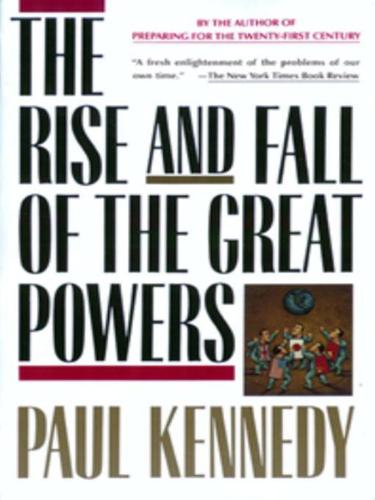
The Rise and Fall of the Great Powers: Economic Change and Military Conflict From 1500 to 2000
by Paul Kennedy · 15 Jan 1989 · 1,477pp · 311,310 words
assumption was the repeated examples of the use of surface sea power by Russia’s most likely foes—the Anglo-French sea-based attack upon Suez in 1956, the landing of U.S. forces in Lebanon in 1958 (thus checking the Russian-backed Syrians), and especially the cordon sanitaire which American warships
…
by increasing calls to end “underdevelopment,” causes which the Russians adroitly espoused, this Third World opinion had a distinctly anti-western flavor, from the Suez crisis of 1956 to the later issues of Vietnam, the Middle East wars, Latin America, and South Africa. Even at the formal summits of the nonaligned countries
…
, de Gaulle seethed at the fact that he was treated as less than equal by the United States; he resented American policy during the Suez crisis in 1956, not to mention Dulles’s habit of threatening a nuclear conflagration over issues like Quemoy. Although de Gaulle had more than enough to keep
…
India and Palestine, the short-term surge in exports, and the maintenance of empire in the Middle East and Africa.226 The humiliation at Suez in 1956 therefore came as a greater shock, since it revealed not only the weakness of sterling but also the blunt fact that Britain could not operate
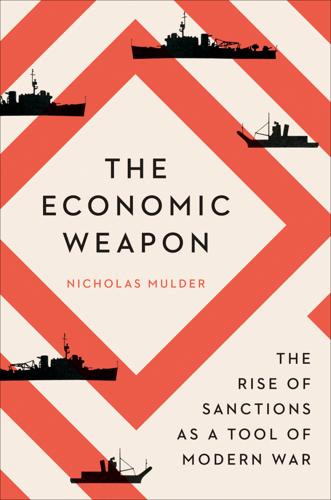
The Economic Weapon
by Nicholas Mulder · 15 Mar 2021
Economic Aid to Nazi Germany, 1933–1941 (Westport, CT: Greenwood, 1999), p. 24. 82. D. A. Farnie, East and West of Suez: The Suez Canal in History, 1854–1956 (Oxford: Oxford University Press, 1969), p. 601. 83. Coleman Phillipson and Noel Buxton, The Question of the Bosphorus and Dardanelles (London: Stevens and
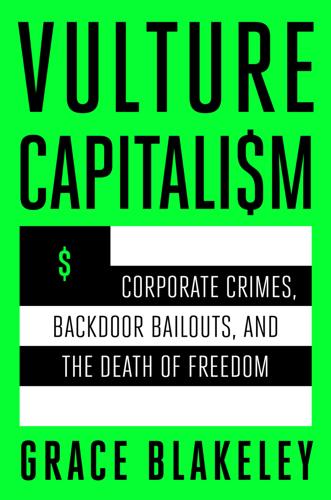
Vulture Capitalism: Corporate Crimes, Backdoor Bailouts, and the Death of Freedom
by Grace Blakeley · 11 Mar 2024 · 371pp · 137,268 words
America on the one hand, and India and the Middle East on the other. The opening of the Suez Canal reduced the journey from London to the Arabian Sea by one month. In 1956, General Gamal Nasser, the second president of Egypt, nationalized the Suez Canal, sending shock waves throughout Britain and
…
, 262 International Trade Union Confederation, 75 Intuit, 106 investor-state dispute settlement (ISDS), 194–98 Iraq, 105, 178, 192–93 Israel COVID-19 response, 57 Suez crisis (1956), 61–62 Italy, labor movement and, 78 J Jakarta Method, The (Bevins), 190–92 Jameson, Frederic, xix, 16 Japan developmentalism and steel industry, 172
…
Strike Debt campaign/Rolling Jubilee (2012), 249–50 structural adjustment programs (SAPs), 198–202 Suez Canal, 61–66 Ever Given crisis (2021), 62–63, 64 Suez crisis (1956), 61–62 Suharto, 191 Sukarno, 190–91 Sunak, Rishi, 156 Sunstein, Cass, 162–63 supply chain financing, 152–59 surveillance capitalism, 27, 54–58
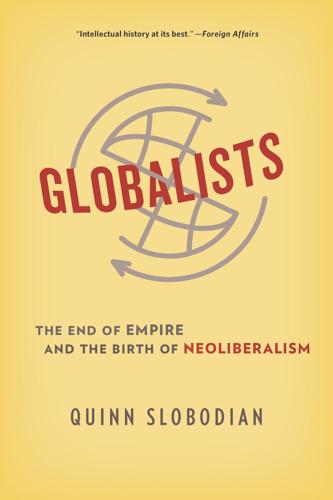
Globalists
by Quinn Slobodian · 16 Mar 2018 · 451pp · 142,662 words
-centered approaches of planification.65 Adenauer’s staunch support for the military intervention of the old imperial powers of France and Britain during the Suez Crisis of 1956 also won him favor with the French.66 Müller-Armack, who saw the Suez intervention as “political insanity,” nonetheless acknowledged that the moment of
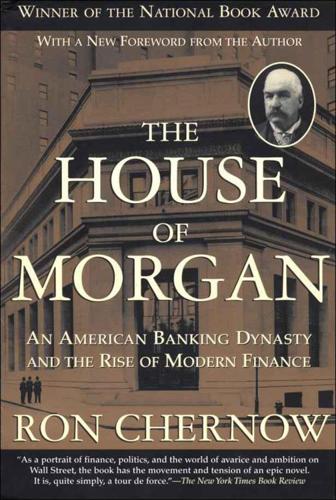
The House of Morgan: An American Banking Dynasty and the Rise of Modern Finance
by Ron Chernow · 1 Jan 1990 · 1,335pp · 336,772 words
the foreign loans of the twenties and never lived abroad—he fully internalized the Morgan identification with Britain. This was patent during the Suez affair. On July 26, 1956, Egypt’s prime minister Gamal Abdel Nasser nationalized the Suez Canal. The next day, the British prime minister, Sir Anthony Eden, informed Eisenhower
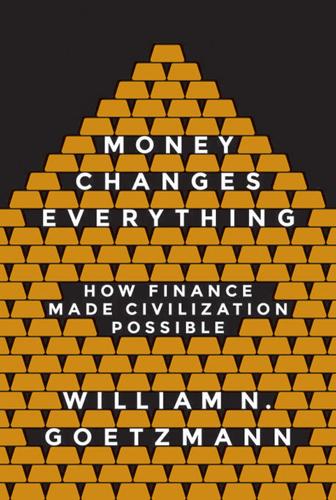
Money Changes Everything: How Finance Made Civilization Possible
by William N. Goetzmann · 11 Apr 2016 · 695pp · 194,693 words
and Unmaking of European Cairo. Journal of Eastern Mediterranean Archaeology and Heritage Studies (1)4: 313–318. 12. Piquet, Caroline. 2004. “The Suez Company’s concession in Egypt, 1854–1956: Modern infrastructure and local economic development.” Enterprise and Society 5(1): 107–127. 13. Cain, P. J. 2002. Hobson and Imperialism: Radicalism
…
, Xinwei, and Edward H. Kaplan. 1994. A Monetary History of China, vol. 1. Bellingham, WA: Western Washington University. Piquet, Caroline. 2004. “The Suez Company’s concession in Egypt, 1854–1956: Modern infrastructure and local economic development.” Enterprise and Society 5(1): 107–127. Plato. 1967. Plato in Twelve Volumes, vol. 3, W
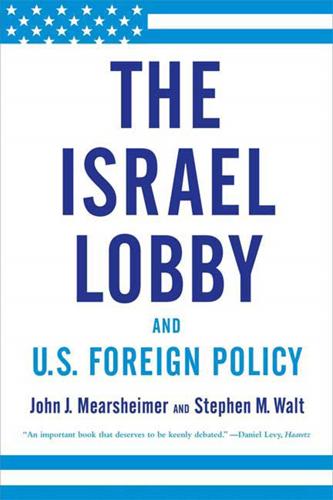
The Israel Lobby and U.S. Foreign Policy
by John J. Mearsheimer and Stephen M. Walt · 3 Sep 2007 · 801pp · 229,742 words
Similar threats to halt American aid played a key role in convincing Israel to withdraw from the territory it had seized from Egypt in the 1956 Suez War. Israeli Prime Minister David Ben-Gurion saw the war as an opportunity for territorial expansion, and he began the prewar discussions with Britain and
…
’ ally), the president ordered the U.S. Sixth Fleet to move closer to Israel in order to deter Soviet interference. In sharp contrast with the 1956 Suez War, the Johnson administration made it clear there would be no American pressure for an Israeli withdrawal except in the context of a broader peace
…
discussed in Chapter 1, David Ben-Gurion had hoped to seize all of the West Bank, part of Lebanon, and portions of Egypt in the 1956 Suez War. Similarly, Ariel Sharon believed the invasion of Lebanon in 1982 would lead to the creation of a pro-Israel Christian state there and vanquish
…
give up their colonial empires in the early years of the Cold War and forced them (and Israel) to withdraw from Egyptian territory following the 1956 Suez War. The United States has also played hardball with plenty of other countries—including close allies like Japan, Germany, and South Korea—when it was
…
Bonds Stein, Kenneth Steinberg, Gerald Steiner, David Steinitz, Yuval Steinlight, Stephen Stephens, Bret Sternhell, Zeev Stevenson, Adlai stockpile program Straits of Tiran Sudan Suez Canal Suez War (1956) suicide terrorism Sunday Telegraph Sunday Times (London) Sunnis Sununu, John Suskind, Ron, The Price of Loyalty Symms, Steven Synagogue Council of America Syria; Assad
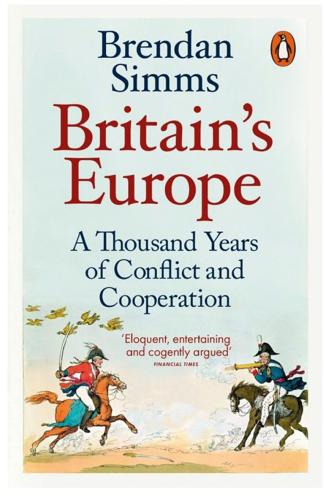
Britain's Europe: A Thousand Years of Conflict and Cooperation
by Brendan Simms · 27 Apr 2016 · 380pp · 116,919 words
. Most, including the German chancellor Konrad Adenauer, strongly supported military intervention on the grounds of ‘European raison d’état’.42 In July 1956, Nasser announced the nationalization of the Suez Canal. London and Paris were outraged. In early September, the French prime minister Guy Mollet secretly proposed a Franco-British Union of
…
. Heywood, ‘West European Community and the Eurafrica Concept in the 1950s’, Journal of European Integration, 4 (1981), pp. 199–210. 42. Quoted in Ralph Dietl, ‘Suez 1956. A European Intervention?’, Journal of Contemporary History, 43, 2 (2008), pp. 259–78, p. 261. 43. See John C. Campbell, ‘The Soviet Union, the United
…
States, and the Twin Crises of Hungary and Suez’, in William Roger Louis and Roger Owen (eds.), Suez 1956. The Crisis and Its Consequences (Oxford, 1989), pp. 233–53. 44. See Diane Kunz, The Economic Diplomacy of the Suez Crisis (Chapel Hill and London
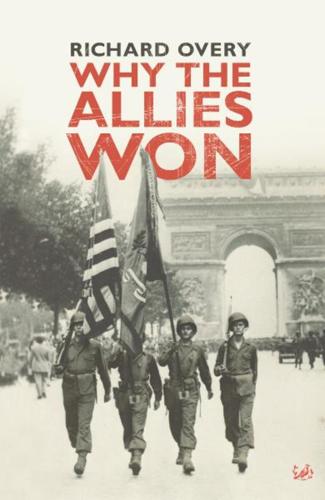
Why the Allies Won
by Richard Overy · 29 Feb 2012 · 624pp · 191,758 words
the real strength of Britain and France. Less than a generation separated the two major world powers of the 1930s from the humiliating débâcle at Suez in 1956. The United States shared the liberal politics of western Europe, but was hostile to old-fashioned colonialism, and deeply distrusted what American leaders saw
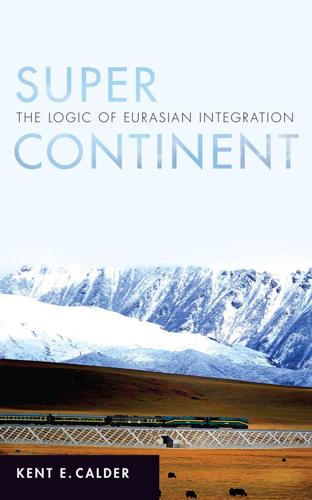
Super Continent: The Logic of Eurasian Integration
by Kent E. Calder · 28 Apr 2019
the considerable fiscal costs involved in its own currency without going to international financial brokers, as Britain had been forced to do during the Suez crisis of 1956. Washington has enjoyed the attractive option of intervening unilaterally on a global basis, without the need in an extremity for special international consultation. This
…
easily respond to foreign-policy crises where its core interests were involved, ranging from the Greek and Turkish crises of 1947–1948 through the Suez crisis of 1956 to the Indonesian Konfrontasi against Malaysia and Singapore during the early 1960s.40 Difficulties in financial management, such as the Harold Wilson administration’s

The Road Not Taken: Edward Lansdale and the American Tragedy in Vietnam
by Max Boot · 9 Jan 2018 · 972pp · 259,764 words
acquisition of “the Bomb.” President Dwight Eisenhower, who had just been elected to a second term in November 1956, was now presiding over a far more placid international scene, notwithstanding the short-lived Suez Crisis and the tragic Hungarian Uprising. The nation seemed at long last to be at peace and enjoying
…
him.”33 He served as a lieutenant from 1954 to 1957 and even extended his tour in the hope of seeing combat in the Suez Crisis of 1956. He later called his years in the Corps “the happiest time in my life.”34 Ellsberg left the Marines in 1957 to assume a
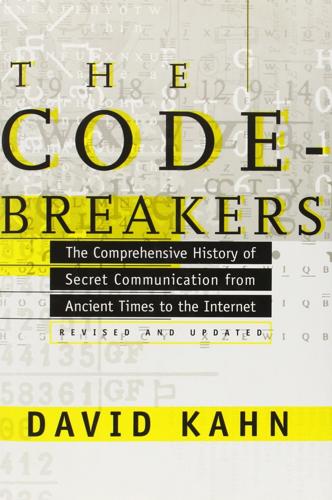
The Codebreakers: The Comprehensive History of Secret Communication From Ancient Times to the Internet
by David Kahn · 1 Feb 1963 · 1,799pp · 532,462 words
Defect to Soviet; Score U.S. ‘Spying,’ ” The New York Times (September 6, 1960), 1:7-8. 729 Suez: “Briton Says U.S. Solved Secret Codes of Allies,” The New York Times (November 23, 1956); George Wigg, letter, January 2, 1957; Allen Dulles, The Craft of Intelligence (New York: Harper & Row, 1963
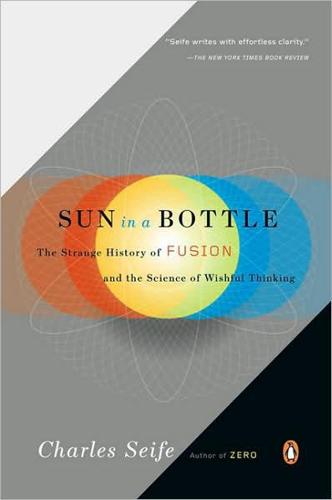
Sun in a Bottle: The Strange History of Fusion and the Science of Wishful Thinking
by Charles Seife · 27 Oct 2009 · 356pp · 95,647 words
a card.” He meant it. He was hoping for the chance to show what fusion could do. In 1956, world politics provided just such an opportunity. In July, the Egyptian government nationalized the Suez Canal, sparking an international crisis. Britain, France, and Israel attacked Egypt, and the situation threatened to spin out

The Rise of the Israeli Right: From Odessa to Hebron
by Colin Shindler · 29 Jul 2015 · 439pp · 166,910 words
. 49. Bader, ha-Keneset ṿa-ani, pp. 170–73. Menahem Begin, Herut, 12 July 1952. Coalition Construction 269 On the eve of the Suez campaign in 1956, he looked more to Jordan than to Egypt in the hope of reclaiming the East Bank. After having criticised the government for its prevarication
…
with having turned the tide during the Yom Kippur War. On the other hand, despite instructions not to enter the Mitla Pass during the Suez campaign in 1956, he did so, resulting in a quarter of all Israeli casualties taking place there. An official account of the 1973 Yom Kippur War 1
…
, John, 105–6 Strasser, Gregor, 107 Stricker, Robert, 103, 118 Struma, sinking of, 201 Struve, Pyotr, 40 student demonstrations, Jabotinsky on, 25–26, 27 Suez campaign, 1956, 269, 294 suicide bombings, 334, 339, 351 Suhba discussion group, 178 Sulam, 261–62 Supreme Muslim Council, 184 Sweden, 52 Index symbolism, 20, 27 syndicalism
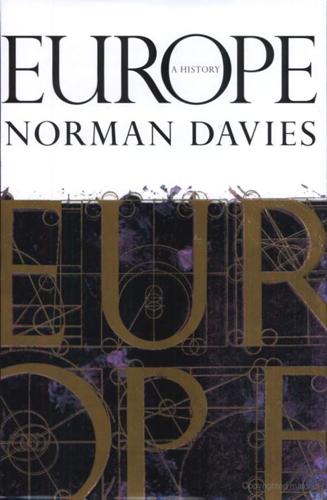
Europe: A History
by Norman Davies · 1 Jan 1996
against Eoka from 1950 to 1960; in Kenya, the Mau-Mau campaign from 1952 to 1957; in Egypt, the struggle culminating in the Suez Crisis from 1952 to 1956; in Southern Rhodesia (Zimbabwe), the emergency over white UDI from 1959 to 1980. Elsewhere in Africa, a procession of peaceful acts of independence
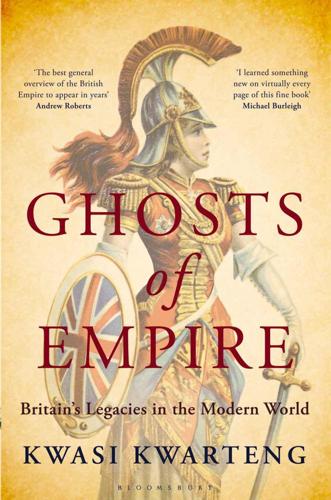
Ghosts of Empire: Britain's Legacies in the Modern World
by Kwasi Kwarteng · 14 Aug 2011 · 670pp · 169,815 words
radio announcers appealed to the Arab masses ‘in the name of millions of Arabs’ to save ‘Arabs from the menace of military alliances’.37 The 1956 Suez debacle, the year after the Baghdad Pact was signed, embarrassed the British and further damaged the reputation of Nuri As-Said. When Suez broke, the

Last Trains: Dr Beeching and the Death of Rural England
by Charles Loft · 27 Mar 2013 · 383pp · 98,179 words
be a democracy’.130 Elsewhere, it was suggested that the line should be retained in case of another petrol shortage (the Suez crisis had led to petrol rationing between November 1956 and May 1957). L. J. Roll, who had represented one of the councils at the East Midlands hearing and delivered a
…
that the deterioration in the BTC’s position during 1958 was generally in line with traffic trends that had been disguised in 1956 and 1957 by the effects of the Suez crisis, in particular through petrol rationing. Investment aimed at maintaining the railways’ share of general freight was beginning to look like
…
1, 2, 3 Stonham, Lord (Victor Collins) 1, 2, 3 Strategic Rail Authority 1 Strathclyde Passenger Transport Executive 1 Street, R. G. M. 1 Suez Crisis (1956) 1, 2, 3 Talyllyn Railway 1 Thatcher, Margaret 1, 2 Third Reich (1933–45) 1 Thomas, David St John Country Railway, The 1 Rural Transport
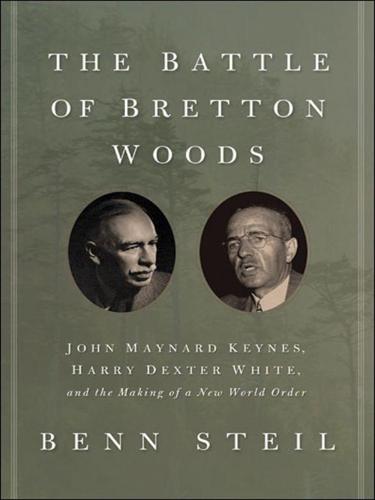
The Battle of Bretton Woods: John Maynard Keynes, Harry Dexter White, and the Making of a New World Order
by Benn Steil · 14 May 2013 · 710pp · 164,527 words
toward the Fund objectives of unimpeded multilateral trade and the general convertibility of currencies,” yet intra-European trade was now growing rapidly.5 The Suez crisis of 1956 served as a sharp and shocking reminder to the British that their formerly ample room for diplomatic and military maneuver on the world stage
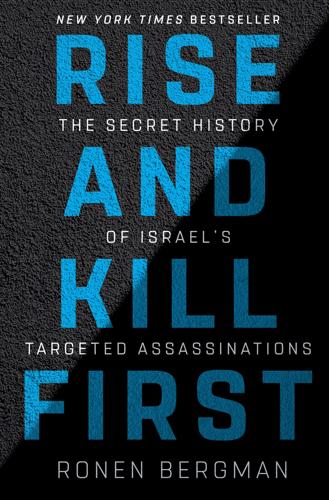
Rise and Kill First: The Secret History of Israel's Targeted Assassinations
by Ronen Bergman · 30 Jan 2018 · 1,071pp · 295,220 words
a success. But then the skies over the region grew clouded for a different reason. On July 26, 1956, Egypt’s president, Gamal Abdel Nasser, acting on an anticolonialist agenda, nationalized the Suez Canal, the vital shipping link between the Mediterranean Sea and the Red Sea. The British and French governments, whose
…
assistance and cooperation of that website’s staff, with special thanks to Henrik Moltke. Israel’s Sinai Campaign of 1956 Interview with Harel, April 6, 2001. The most detailed report on the Suez Campaign and Israeli gains and losses may be found in Golani, There Will Be War Next Summer, 597–620

Lonely Planet Egypt
by Lonely Planet · 476pp · 132,840 words
country’s politics, history and current affairs. From the mid-20th century the Sinai Peninsula became a focal strategic point in the Middle East. The 1956 Suez Crisis, the Six Day War and the 1973 October War were all fought, or mostly fought, within Sinai. Israel occupied the Sinai Peninsula during the
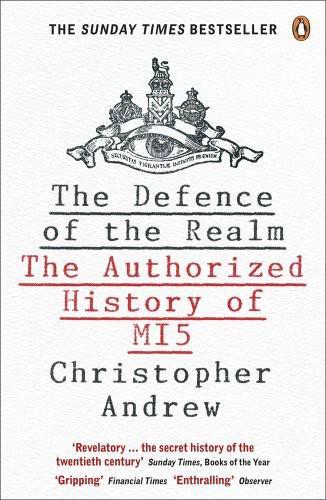
The Defence of the Realm
by Christopher Andrew · 2 Aug 2010 · 1,744pp · 458,385 words
his attention to it is a fair indication of the delicate path we tread.21 In 1956 Nehru declared that he had never encountered a ‘grosser case of naked aggression’ than the Anglo-French invasion of Suez, but failed to condemn the brutal Soviet suppression of the Hungarian Uprising in the same
…
East, inspired by the charismatic Egyptian leader Gamal Abdel Nasser, who was widely believed to have humiliated both British and French imperialists during the Suez crisis of 1956. So far as South Arabia was concerned, Macmillan believed: ‘We must get rid of this horrible word “independence”. What we want is a word
…
Home Committee (SH) 658, 659 Subversion in Public Life, Interdepartmental Working Group on (SPL) 596–7, 658, 780 Sudan 331, 556, 802, 804, 856 Suez crisis (1956) 445, 473, 499 Sullum Voe oil terminal 694–5 Sumption, Jonathan 826 SUNSHINE, Operation 465 Sutherland, David 613, 655, 685 Swann, Sir Michael 397 Swingler
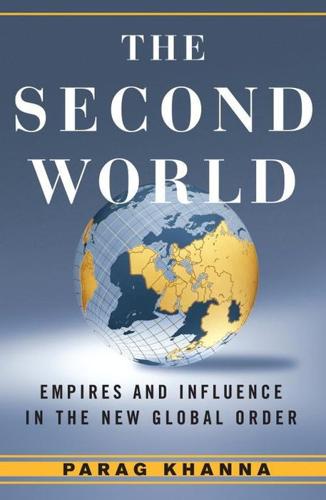
Second World: Empires and Influence in the New Global Order
by Parag Khanna · 4 Mar 2008 · 537pp · 158,544 words
define. Egypt’s Sinai Peninsula is also the junction of Saudi Arabia, Jordan, and Israel, which occupied it from 1956 to 1973. At the northern end of the 120-mile-long Suez Canal lies Port Said, from which one can easily jump from Africa to Port Fouad in Asia by ferry or
…
Saddam, but that is not something it ever had the power to judge. Europe’s colonial experience in the region effectively ended with the Suez Crisis in 1956, and America’s neocolonial experience will also wind down in the same country in which it began, leaving the Mashreq a zone of shifting
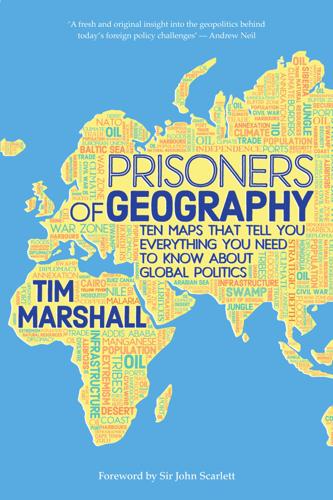
Prisoners of Geography: Ten Maps That Explain Everything About the World (Politics of Place)
by Tim Marshall · 10 Oct 2016 · 306pp · 79,537 words
matter what the treaty says, NATO’s Supreme Commander ultimately answers to Washington. The UK and France would learn at their expense during the Suez Crisis of 1956—when they were compelled by American pressure to cease their occupation of the canal zone, losing most of their influence in the Middle East
…
, 250, 254 Egypt, 109, 120–22, 133, 136, 141, 153, 154, 156, 159, 163, 166–67 Suez Canal, 22, 75–76, 109, 111, 121 Suez Crisis (1956), 75–76 Elbe River, 86–87, 100 Elburz Mountains, 157, 158 Elizabeth Islands, 240–41 Ellesmere Island, 240–41, 254 El Salvador, 226 energy resources
…
, 152, 163, 174 Persian Empire, 15, 139, 160 and Russia, 34, 163 Shia Islam, 137–39, 143–44, 149, 150, 159, 160 size, 135 Suez Crisis (1956), 75–76 Sunni Islam, 137–39, 143–46, 148, 149–50, 160–61 United Kingdom in, 136–37, 141–42, 152–53 water supplies, 261

This Sceptred Isle
by Christopher Lee · 19 Jan 2012 · 796pp · 242,660 words
Railways nationalized; Berlin Airlift; Ceylon (Sri Lanka) independence 1949 NATO; Irish Independence; Korean War 1951 Churchill PM 1952 Elizabeth II 1955 Eden PM; Cyprus Emergency 1956 Suez Crisis 1957 Macmillan PM 1958 Life Peerages; EEC 1959 Vietnam War; Fidel Castro 1960 Macmillan’s Wind of Change speech 1963 Douglas-Home PM; De
…
for colonial independence should not be seen in isolation from other British political and military excursions. The surest example of this occurred in 1956 when Britain, with the help of France and Israel, attacked the Suez Canal Zone. In 1875, Disraeli had bought from the Ottoman governor a controlling interest in the
…
Suez Canal Company. A decade later, Britain became a guarantor of the canal’s neutral status. It was an economically vital waterway to so many nation-
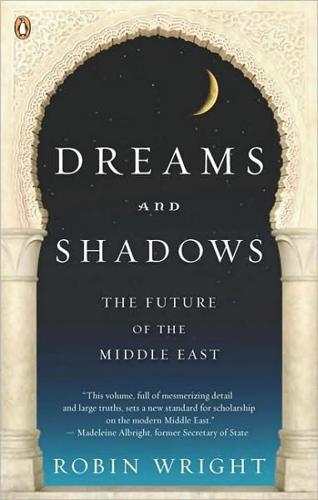
Dreams and Shadows: The Future of the Middle East
by Robin Wright · 28 Feb 2008 · 648pp · 165,654 words
East than at any time since its oil needs and alliance with Israel took it deep into the region after World War II. If the 1956 Suez Canal crisis marked the demise of Europe’s influence in the Middle East, the Iraq War could well mark the demise of American influence. The
…
terrorist groups report on Egypt’s elections of 2000 report on Egypt’s presidential election of 2005 Stethem, Robert Dean Street Is Ours, The Suez Canal crisis (1956) suicide bombers Sukkar, Nabil Sulaimaniyah Sunnis Iranian Iraqi Lebanese Syrian Sunni-Shiite divide Superstar Sutherland, Tom Sword of Islamic Righteousness Syria Alawite minority in
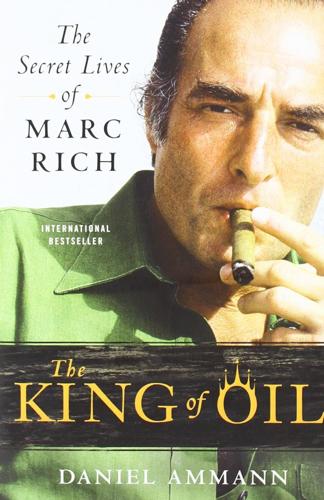
The King of Oil: The Secret Lives of Marc Rich
by Daniel Ammann · 12 Oct 2009 · 479pp · 102,876 words
continued until the summer of 1953. In June 1953 Soviet troops had crushed an uprising in East Germany. The year 1956 saw the Suez Crisis, when Gamal Abdel Nasser of Egypt nationalized the Suez Canal and was opposed by Great Britain, France, and Israel. The Soviet Red Army marched into Hungary in the
…
three-week-long conflict, which was the fourth in a series of Israeli-Arab wars (after the Israeli war of independence in 1948, the Suez War of 1956–57, and the Six-Day War in 1967). The oil-producing nations made a further attempt to use their oil as a weapon. This
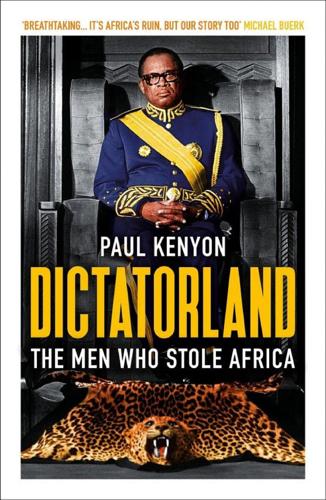
Dictatorland: The Men Who Stole Africa
by Paul Kenyon · 1 Jan 2018 · 513pp · 156,022 words
Middle East. They promptly rescinded their offer of help with the Aswan Dam. A livid Nasser responded on 26 July 1956 with a move that stunned the world. He nationalized the Suez Canal. Its ownership had been in the hands of Britain and France since its construction in 1866, but now it
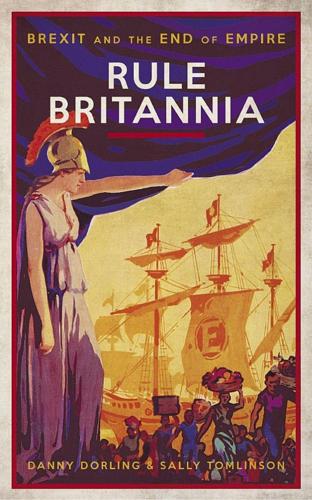
Rule Britannia: Brexit and the End of Empire
by Danny Dorling and Sally Tomlinson · 15 Jan 2019 · 502pp · 128,126 words
diverse society. THE FALL: FROM ONE CANAL TO ANOTHER The Suez Canal was the British Empire canal. Britain’s might was ridiculed by the Suez Crisis of 1956 and its financial sector exposed as similarly incompetent by the release of the Panama Papers sixty years later, showing the extent of the tax
…
were ruled by Britain. We need to understand how the stories that were constructed in 1949 led to the British not really understanding the Suez Crisis of 1956, and not realising what was actually going on during the 1960s and 1970s when country after country gained formal independence from Britain. The British
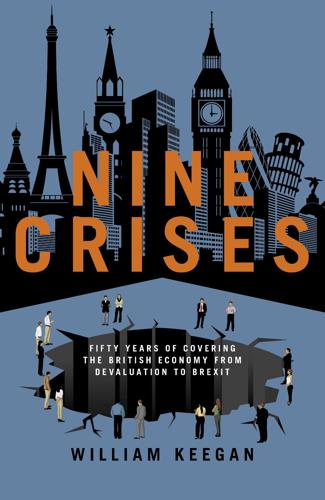
Nine Crises: Fifty Years of Covering the British Economy From Devaluation to Brexit
by William Keegan · 24 Jan 2019 · 309pp · 85,584 words
a chord. His comment was also a dig at the weakness of the opposition. ‘Events’ can include the impact of wars or other military operations – Suez in 1956; the Falklands in 1982 – and what economists call ‘shocks’: the two oil crises of the 1970s; the unexpected financial crash of 2007–09; and
…
done ever since discovering it on my newspaper round in the early 1950s. It was, among other things, the paper that had opposed the Suez venture of 1956, which brought down Eden and cleared the path for Macmillan to move from the Treasury to No. 10; it had also printed Khrushchev’s
…
1 Stiglitz, Joseph 1 Stonefrost, Hilary 1 Stowe, Ken 1 Strand Group 1 Strauss-Kahn, Dominique 1, 2, 3, 4 sub-prime crisis (US) 1 Suez Crisis (1956) 1 Sun 1 Sunday Telegraph 1, 2 Sunday Times 1, 2, 3 Thatcher, Margaret 1, 2, 3, 4, 5, 6, 7, 8, 9, 10
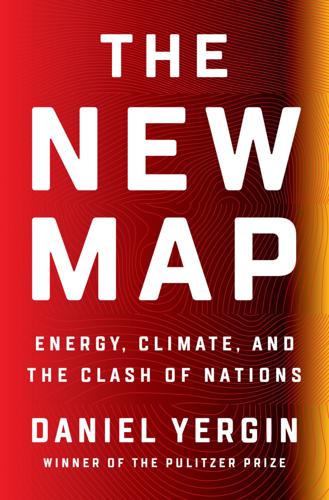
The New Map: Energy, Climate, and the Clash of Nations
by Daniel Yergin · 14 Sep 2020
“barbed wires” that “marked the frontiers separating and isolating countries,” and instead unite their peoples in a single “Arab nation.” His nationalization of the Suez Canal in 1956 and success in resisting a subsequent invasion by Britain, France, and Israel did make him the “hero” for which, he had declared a few
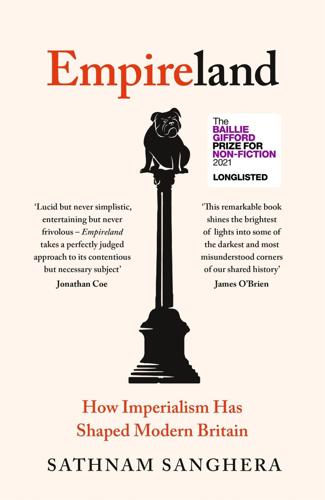
Empireland: How Imperialism Has Shaped Modern Britain
by Sathnam Sanghera · 28 Jan 2021 · 430pp · 111,038 words
British formally withdrew from India, some pinpoint it to the handover of Hong Kong to the Chinese in July 1997, some gesture towards the Suez crisis of 1956, some insist it continues to exist in the remaining British Overseas Territories we still possess, which in 2020 consisted of Anguilla, Bermuda, the British
…
Crown colony since 1841, being handed over to China in 1997, and so endlessly on. Then there are the two significant moments of the Suez Crisis of 1956, when Israel, the UK and France invaded Egypt with the ostensible aim of regaining Western control of the Suez Canal, and the Falklands War
…
, Jon 136 Stowell of Beeston, Baroness 128 street names, imperial 7–8 Stuart, Charles ‘Hindoo Stuart’ 37 Succession 136 Sudan 180 Sudanese Political Service 178 Suez Crisis (1956) 33, 106 sugar plantations 35 Sun 181 Sunak, Rishi 119 Sunday Roast 9 sundowner 93 Sutlej Treaty (1809) 17 Sydney Morning Herald 120 Sze
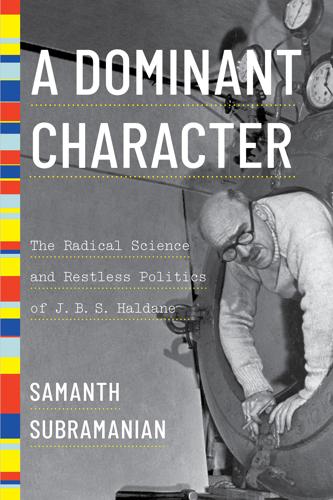
A Dominant Character
by Samanth Subramanian · 27 Apr 2020
will be sealed up, and will not smell.” He announced his resignation from University College in November 1956, days after the United Kingdom, France, and Israel attacked Egypt to wrestle away its control of the Suez Canal. He didn’t miss the opportunity to score a political point. “I do not want
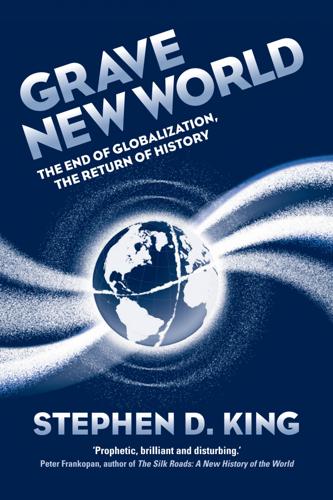
Grave New World: The End of Globalization, the Return of History
by Stephen D. King · 22 May 2017 · 354pp · 92,470 words
disappeared in no more than a puff of smoke in the late 1940s. The ultimate humiliation, however, came in 1956, when, in a joint action with France and Israel, British soldiers seized the Suez Canal, recently nationalized by Egypt’s charismatic leader, President Gamal Abdel Nasser. The British had not told Washington
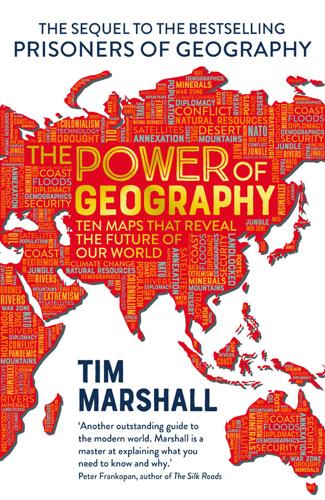
The Power of Geography: Ten Maps That Reveal the Future of Our World
by Tim Marshall · 14 Oct 2021 · 383pp · 105,387 words
. So the UK may have signed up to American-designed post-war organizations such as NATO, but when it landed troops to occupy the Suez Canal in 1956 it was bluntly reminded that the days of empire were over. Amid a catalogue of misjudgements, they’d omitted to tell the Americans that
…
will have to be referred to the king and queen to see how they fit with America’s game strategy. The lessons of the Suez debacle in 1956 showed that Washington is prepared to sacrifice its own ally. However, that is an extremely rare event and Britain does have a built-in
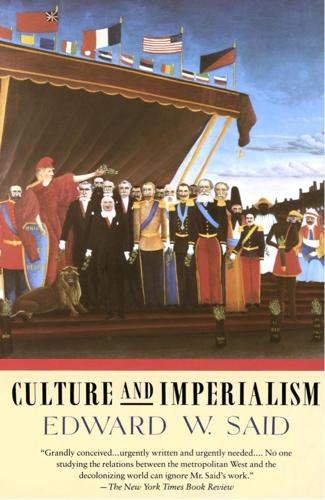
Culture and Imperialism
by Edward W. Said · 29 May 1994 · 549pp · 170,495 words
commercial adventures. This led ineluctably to the British occupation of 1882, and, just as ineluctably, to the eventual reclamation of the Suez Canal by Gamal Abdel Nasser in July 1956. By the 1860s and 1870s the most striking feature of the Egyptian economy was the boom in cotton sales that occurred when

The City
by Tony Norfield · 352pp · 98,561 words
undo the British Empire’s protectionist policies as a quid pro quo for US financial aid. Britain’s weakened position became painfully clear with the 1956 Suez crisis. The Anglo-French adventure against Egypt was stymied by US political opposition, especially when international investors began to sell sterling on the foreign exchange
…
true in so far as it is necessary for any power to judge the potential response of others to its actions. But after the Suez crisis in 1956, it became clear to the British that any major initiatives with international repercussions could not succeed in the face of US opposition. A possible
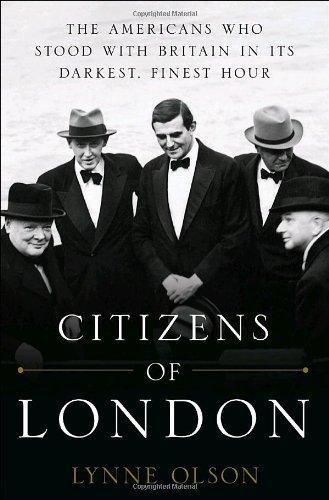
Citizens of London: The Americans Who Stood With Britain in Its Darkest, Finest Hour
by Lynne Olson · 2 Feb 2010 · 564pp · 178,408 words
partnership that Britain had sought during and after the war. The United States always made clear who the dominant partner was, as during the Suez crisis in 1956, when American leaders put economic pressure on Britain to force a halt to an invasion of Egypt by British, French, and Israeli troops. Yet
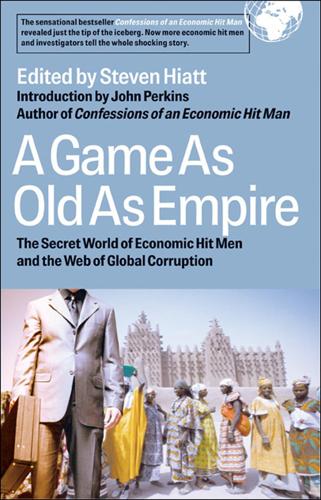
A Game as Old as Empire: The Secret World of Economic Hit Men and the Web of Global Corruption
by Steven Hiatt; John Perkins · 1 Jan 2006 · 497pp · 123,718 words
killed. Following the success of covert methods of intervention in Iran and Guatemala, the Suez Crisis of 1956 illustrated the dangers of old-style direct intervention. Egyptian President Gamal Abdel Nasser announced nationalization of the Suez Canal in July 1956; the canal was a key national resource then in the hands of European investors

Frommer's Israel
by Robert Ullian · 31 Mar 1998
. Israel’s brilliant medical community, scientific establishment, and computer industries may one day benefit the entire region. WAR & THE SEARCH FOR PEACE During the Suez War of November 1956, 326–614 Hundreds of Byzantine churches and monastic communities built. Restrictions against Jews. ■ 351 Jews of Galilee rebel against Byzantine/Christians. ■ 400 Codification
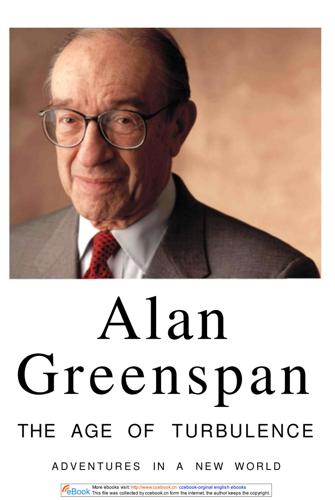
The Age of Turbulence: Adventures in a New World (Hardback) - Common
by Alan Greenspan · 14 Jun 2007
nationalization by Mohammed Mossadeq of Iranian oil. Excess American oil was again released to the market to counter the price pressures induced by the Suez crisis of 1956 and the SixDay War of 1967. American oil's historical role, however, ended in 1971, when rising *It is one of those peculiarities of
…
Anglo-Iranian Oil in 1951 and the aborted effort of Britain and France to reverse Nasser's takeover of the key Suez Canal link for oil flows to Europe in 1956 are but two prominent historical examples. And whatever their publicized angst over Saddam Hussein's "weapons of mass destruction," American and
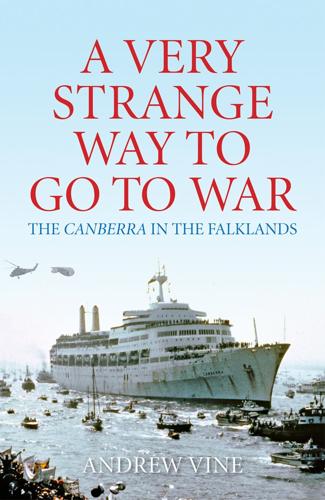
A Very Strange Way to Go to War: The Canberra in the Falklands
by Andrew Vine · 30 Jun 2012 · 367pp · 122,140 words
fulfil its normal programme. This, though, required an Order in Council signed by the Queen, a step that had not been taken since the Suez crisis of 1956. The government agreed, and the order was put before the Monarch late on Sunday evening. The formal requisition notices for Canberra and Elk were
…
. ‘It was absurd,’ said Shirley. ‘All these accreditation papers are in English and Arabic. All these things had been printed for Suez, they hadn’t done this sort of stuff since 1956 – nonsense, complete nonsense. Kim Sabido, from Independent Radio News, was also taken aback by the archaic nature of the documentation
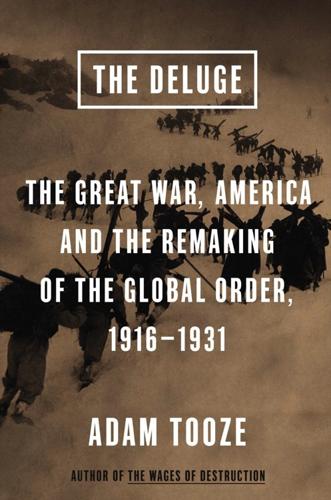
The Deluge: The Great War, America and the Remaking of the Global Order, 1916-1931
by Adam Tooze · 13 Nov 2014 · 1,057pp · 239,915 words
, outrage throughout the empire and a debacle of British policy in Europe. II From its opening in 1869 down to the Franco-British intervention of 1956, the Suez canal was to be a consistent focus of British strategic attention. But power could be exercised in different ways. It was the uneven momentum
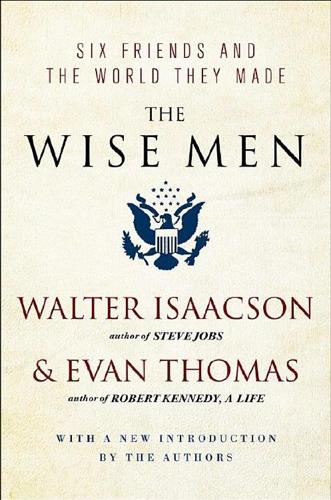
The Wise Men: Six Friends and the World They Made
by Walter Isaacson and Evan Thomas · 28 Feb 2012 · 1,150pp · 338,839 words
Gesell, his law partner at Covington, Burling, he repeatedly referred to Dulles as a “coward.” Acheson positively enjoyed Dulles’s fiascoes. In 1956, after Dulles had precipitated the Suez crisis by driving Egypt’s Nasser into the arms of the Soviets, Acheson wrote his son, David, “Dulles really got his comeuppance there
…
Stone, I. F., 269, 322, 361 Stover at Yale (Johnson), 80 Strategic Bombing Survey, U.S., 207–8, 484–85, 489 Strong, Anna Louise, 149 Suez crisis (1956), 572, 581 Sukhoderev, Victor, 728 Sullivan, William, 616–17, 634, 636–37, 640, 727, 728 Sulzberger, C. L., 269, 474, 542 Acheson and, 715
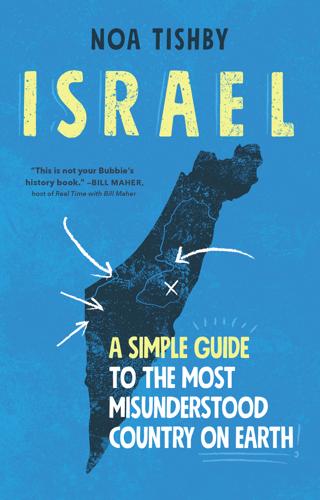
Israel: A Simple Guide to the Most Misunderstood Country on Earth
by Noa Tishby · 5 Apr 2021 · 338pp · 101,967 words
they were thrilled to give up their Mandate over Palestine and just kept control over that oh-so-important route, creating the Suez Canal Zone (militarized, of course, until 1956). The UK (and the US and the rest of the world) knew the Arabs were vehemently and aggressively against the existence of
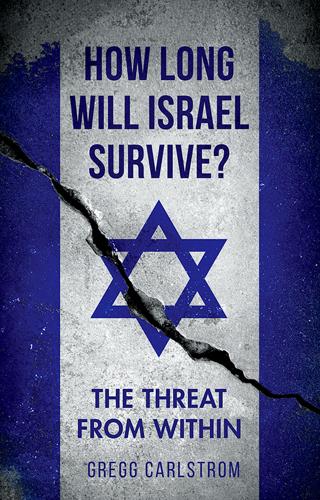
How Long Will Israel Survive Threat Wthn
by Gregg Carlstrom · 14 Oct 2017 · 337pp · 100,541 words
: 6, 23, 31, 57, 199; meetings with John Kerry and Benjamin Netanyahu (2014–15), 31; popularity of, 59 Abdel Nasser, Gamal: 213; nationalization of Suez Canal (1956), 200 Abdel Qader, Mahmoud: 71 Abedin, Huma: 141 Abramovich, Amnon: 51 Abramson, Larry: 175 Abu Bakr: 207 Abu Khdair, Hussein: family of, 36 Abu Khdair
…
High Dam, xviii, 157, 168; Cairo, 22, 26, 156–7; Constitution of, 89–90; Coptic population of, 24; government of, 22; Suez Canal, 22; Suez Crisis (1956), 43, 200 Egypt-Israel Peace Treaty (1979): 202, 212, 218 Eichmann, Adolf; execution of (1962), 36, 235; trial of (1961), 235 Eilam, Uzi: 165 Eisen

The Dream of Europe: Travels in the Twenty-First Century
by Geert Mak · 27 Oct 2021 · 722pp · 223,701 words
on power in Poland. 3 In some respects, the spring of 2010 was a turning point in European history, just as 1956 had been with Khrushchev’s ‘de-Stalinization’, the Suez Crisis and the Hungarian Uprising. A month after Smolensk, on 6 May, Labour lost the general election in Britain, an event
…
in the summer of 2017, and it was indeed salient. At an international level, Britain had not cut such a sorry figure since the Suez Crisis of 1956, and in the months that followed it would only get worse. At home, ceilings did indeed come down; reality could no longer be ignored
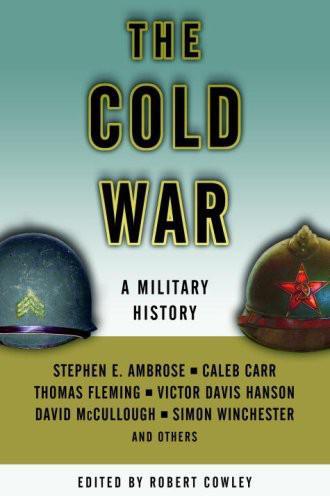
The Cold War
by Robert Cowley · 5 May 1992 · 546pp · 176,169 words
that he had as yet no long-range nuclear weapons did not prevent Khrushchev from a noisy rattling of destructive potential. During the Suez crisis of late October 1956—at the same time Soviet tanks were overrunning Hungary—he threatened Great Britain and France with rocket-borne nuclear destruction if they didn
…
this period of frenzied technological development included, to hit the high points, the 1948 Berlin Blockade, the Korean War, and the Hungarian uprising and Suez crisis of 1956. The last of these provided the stage for Nikita Khrushchev's famous and, as we now know, empty “missile rattling” threats. Atlas and Semyorka
…
the Berlin Wall in 1961, when, for a few tense hours, American and Soviet tanks faced off muzzle-to-muzzle at Checkpoint Charlie; the Suez Crisis of 1956, when Nikita Khrushchev threatened to nuke Paris and London if the British and French troops occupying the Suez Canal didn't withdraw; the simultaneous
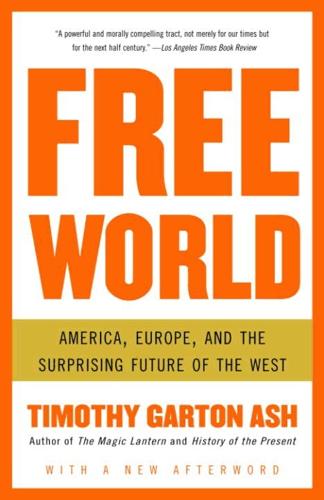
Free World: America, Europe, and the Surprising Future of the West
by Timothy Garton Ash · 30 Jun 2004 · 329pp · 102,469 words
, in the Iraq crisis, was measuring himself against the defining hero as much as Churchill’s immediate successor, Anthony Eden, had done in the Suez Crisis of 1956. Churchill was still around to say, privately, that Eden had got it wrong over Suez. He is no longer around now, so everyone can
…
so-called “safe area” of Bihac, sober observers suggested that relations between Washington and London were as bad as they had been during the Suez Crisis of 1956—when Britain had also stood with France. Yet what was most instructive was the outcome of this first post–Cold War crisis of the
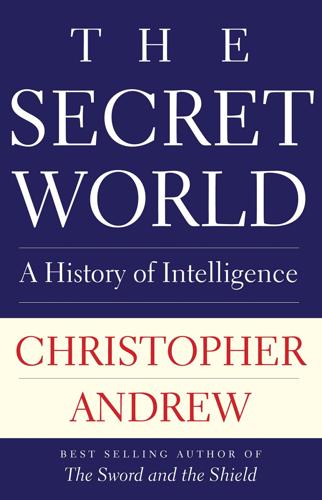
The Secret World: A History of Intelligence
by Christopher Andrew · 27 Jun 2018
states, many of whom lacked state-of-the-art cipher systems, was vulnerable to cryptanalysts in both East and West. On the eve of the 1956 Suez Crisis the British Foreign Secretary, Selwyn Lloyd, formally congratulated the director of GCHQ on both the ‘volume’ and the ‘excellence’ of the decrypts he had
…
U-boat warfare, 641–2 Suchet, Marshal Louis-Gabriel, 352 Sudoplatov, Pavel Anatolievich, 623 Suetonius, 41, 46, 47, 49†, 51, 52*, 53, 72, 73 Suez Crisis (1956), 674 Suffolk, Lord Thomas Howard, Earl of, 192, 193–4 Sukarno, Achmed, 679–80 Sukhomlinov, Ekaterina, 503 Sukhomlinov, Vladimir, 487, 498–9, 502–4 Sully
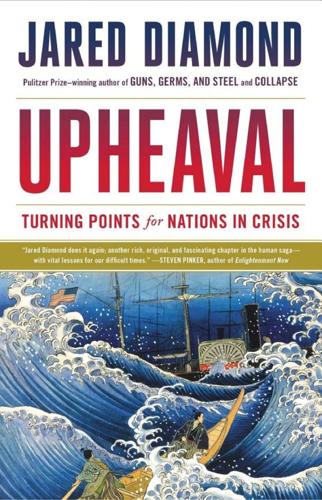
Upheaval: Turning Points for Nations in Crisis
by Jared Diamond · 6 May 2019 · 459pp · 144,009 words
in Malaya and Vietnam, and Indonesian military interventions in Dutch New Guinea, Malaysian Borneo, and Portuguese Timor warned Australia of proliferating security problems nearby. The 1956 Suez Crisis, in which Britain failed to topple President Nasser of Egypt and was forced to yield to U.S. economic pressure, laid bare Britain’s
…
world military power independent of the U.S. Australia was among the few nations to support Britain’s widely denounced attack on Egypt in the 1956 Suez Crisis. In 1954 the first visit to Australia by a reigning British monarch, Queen Elizabeth, was greeted by an enormous outpouring of pro-British sentiment
…
Chapter 1), which clashes with our “can-do” attitude and our expectation of success. Compared with the British, who coped with the humiliation of the 1956 Suez Crisis, and with the Japanese and Germans, who recovered from crushing defeat in World War Two (plus in World War One for Germans), Americans found
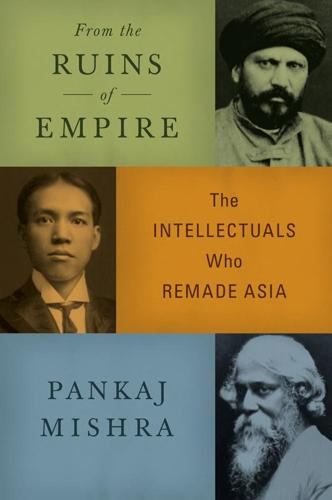
From the Ruins of Empire: The Intellectuals Who Remade Asia
by Pankaj Mishra · 3 Sep 2012
flaws in the Western models of politics and economy. Decolonization further undermined the political power of Western countries; and desperate attempts to regain it – in Suez in 1956, and in Algeria and Vietnam – destroyed any fragments of remaining political and moral authority. A further devastating blow to the reputation of the West
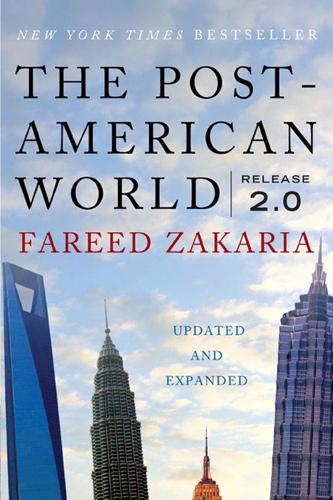
The Post-American World: Release 2.0
by Fareed Zakaria · 1 Jan 2008 · 344pp · 93,858 words
, Roosevelt and Churchill disagreed about several issues during their close wartime alliance, most notably India’s independence, and America broke with Britain over the Suez crisis in 1956. Ronald Reagan, a staunch supporter of Israel, condemned its invasion of Lebanon in 1978. Washington and New Delhi are big powers with complex foreign
…
, 139–40 stocks, 43, 109–10, 222 sub-Saharan Africa, 80 Sudan, 31, 38, 41, 131, 188, 273 Suez Canal, 20, 168, 186, 195 Suez Canal crisis (1956), 20, 168 suicide bombings, 14–15 Summers, Lawrence, 246 Sunni Muslims, 11–12, 263 Sun Yat-sen, 84, 86 Sun Zi, 143 Sweden, 24
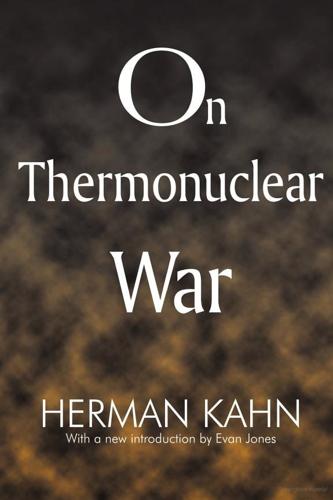
On Thermonuclear War
by Herman Kahn · 16 Jul 2007 · 1,117pp · 270,127 words
massive retaliation for anything or they belonged to the Minimum Deterrence school and worried only about self-limiting Limited Wars). By the end of 1956, after the Suez and Hungarian crises, it became much easier to explain the difference, and by 1958, after Sputnik and Berlin had shaken everybody's complacency, it
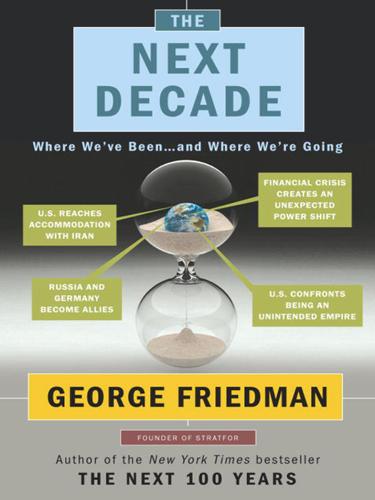
The Next Decade: Where We've Been . . . And Where We're Going
by George Friedman · 25 Jan 2011 · 249pp · 79,740 words
in the Arab world, the Soviets could and did exploit hostility to the Europeans’ machinations. Things came to a head in 1956, after Nasser took power and nationalized the Suez Canal. Neither the British nor the French (who were fighting to suppress an anticolonial revolt in Algeria and who were striving to
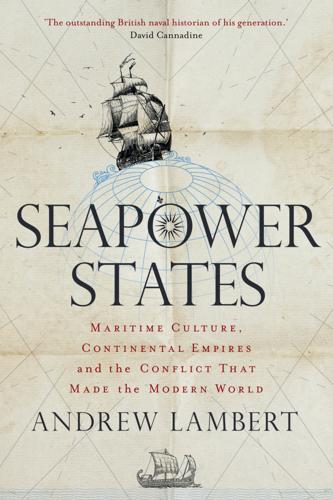
Seapower States: Maritime Culture, Continental Empires and the Conflict That Made the Modern World
by Andrew Lambert · 1 Oct 2018 · 618pp · 160,006 words
their security, rather than a distant, potentially isolationist continental superpower that might not. Not that the lesson was fully understood. In 1956 an Anglo-French attempt to recover control of the Suez Canal, which they jointly owned, from the new nationalist Egyptian government, was blocked by US economic pressure. Only fifty years
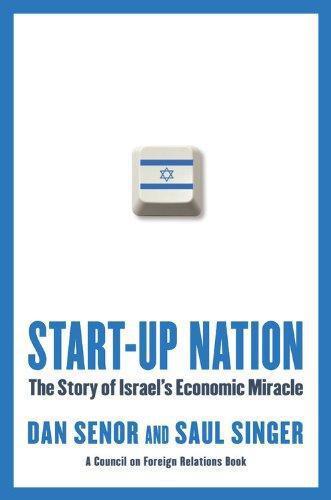
Start-Up Nation: The Story of Israel's Economic Miracle
by Dan Senor and Saul Singer · 3 Nov 2009 · 285pp · 81,743 words
large quantities of modern arms to Israel. The tiny state finally had a reliable and first-rate national arms supplier. After Egypt nationalized the Suez Canal in 1956, the relationship only deepened. France relied on the Suez for sea transport from the region to Europe. The IDF helped guarantee French access to
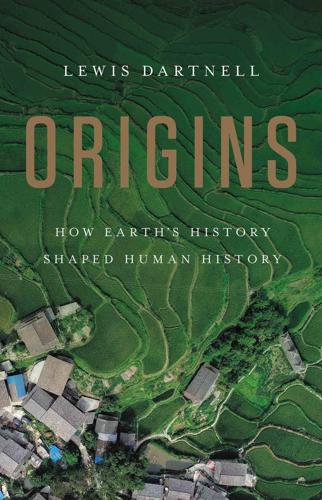
Origins: How Earth's History Shaped Human History
by Lewis Dartnell · 13 May 2019 · 424pp · 108,768 words
chokepoints with our canals that link seas to create more direct shipping routes, such as the Panama Canal and the Suez Canal. When the Suez Crisis in 1956 closed the canal for six months and forced shipping to re-route around southern Africa, the result was fuel shortages across Europe.52 Yet
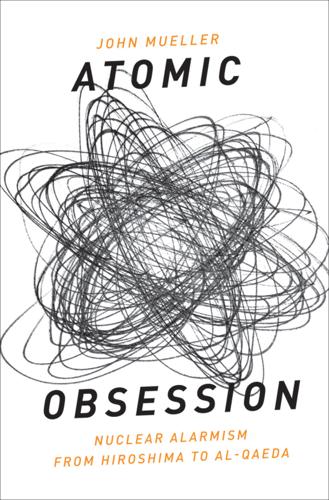
Atomic Obsession: Nuclear Alarmism From Hiroshima to Al-Qaeda
by John Mueller · 1 Nov 2009 · 465pp · 124,074 words
relevant. Similarly, its nuclear weapons were scarcely of help, or relevance, to France in its war in Algeria, to Britain in its venture in Suez in 1956, or to the Soviet Union in its disaster in Afghanistan. Nor did Israel’s probable nuclear capacity restrain the Arabs from attacking in 1973 or
…
–47; Holloway 1994, 271. On Soviet leader Nikita Khrushchev’s fanciful conviction that his nuclear blandishments caused Britain and France to reverse their invasion at Suez in 1956, see Fursenko and Naftali 2006, 133–37. 13. Gaddis 1997, 107–10, emphasis in the original. 14. Halperin 1987, 30. George and Smoke 1974

The Man Who Was Saturday
by Patrick Bishop · 21 Jan 2019 · 351pp · 108,068 words
(Worthing then Hawkhurst), 11, 163 Stallard, A. F., 45 Steinmetz, Francis, 80 Stirling, David, 177 Straight, Whitney, 116 Strayer, Robert, 135 Streicher, Julius, 141 Suez crisis (1956), 159–60 Switzerland, 79–80, 85, 86–7, 88–93, 94–5, 122 Sykes, Sir Richard, 247 Tatham-Warter, Digby, 131, 135 Taylor, John, 39
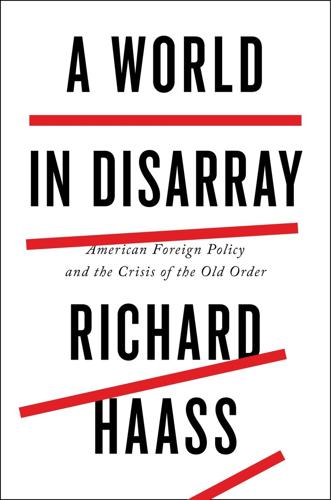
A World in Disarray: American Foreign Policy and the Crisis of the Old Order
by Richard Haass · 10 Jan 2017 · 286pp · 82,970 words
was effectively driven out of Algeria in 1962 after a bloody civil war. Perhaps the turning point in the decolonization process came in 1956 following the takeover of the Suez Canal by Egypt’s nationalist leader, Gamal Abdel Nasser. A coordinated British, French, and Israeli invasion of Egypt only managed to strengthen
…
associated with recurring conflicts was that between Israel and its Arab neighbors. There was the 1948 war at the time of Israel’s independence, the 1956 Suez Crisis, the 1967 Six-Day War, the 1973 October or Yom Kippur War, and the intifadas that brought Palestinians and Israelis into direct conflict. Elsewhere
…
British government that was fearful of the need to devalue its currency to back off its ill-fated venture to regain control of the Suez Canal in 1956. Mounting debt could absorb funds that could otherwise be usefully invested at home or abroad. This will in turn depress already modest levels of
…
, 129 See also Cold War spheres of influence, 47–48 START (Strategic Arms Reduction Treaty), 43 states. See sovereignty Strategic and Economic Dialogue, 219–20 Suez Crisis (1956), 63 Syrian crisis, 9, 117–19, 163–72 chemical weapons use in, 69, 137, 164–67 Russian role in, 99–100, 166, 169, 171

Posh Boys: How English Public Schools Ruin Britain
by Robert Verkaik · 14 Apr 2018 · 419pp · 119,476 words
world stage where he believed posterity would judge him. And his own inflated sense of importance in the world matched that of his country. In 1956 Suez was the diplomatic calamity that exposed the myth of British foreign power and the ruling class that believed in it. Without consulting the Americans, Britain
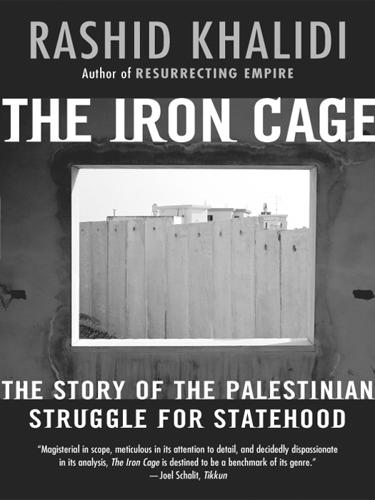
The Iron Cage: The Story of the Palestinian Struggle for Statehood
by Rashid Khalidi · 31 Aug 2006 · 357pp · 112,950 words
, and the eclipse of both of the formerly dominant great powers in the region, Britain and France, was only fully brought home during the Suez crisis of 1956, when the latter, acting in collusion with Israel, were humiliated by the United States and the Soviet Union, which turned back their tripartite invasion
…
Palestine: One Land, Two Peoples (Cambridge, U.K.: Cambridge University Press, 2004); and Benny Morris, Israel’s Border Wars, 1949–1956: Arab Infiltration, Israeli Retaliation, and the Countdown to the Suez War (Oxford, U.K.: Oxford University Press, 1993). 3. Introduction to The Philosophy of History, translated by Leo Rauch (Indianapolis: Hackett
…
the Egyptian government, which had not previously made confronting Israel a priority, and led to Egypt briefly encouraging Palestinian raids into Israel. After the Suez war of 1956, the Egyptian authorities clamped down again. 5. Fateh, the PLO, and the PA: The Palestinian Para-State An earlier version of sections of this
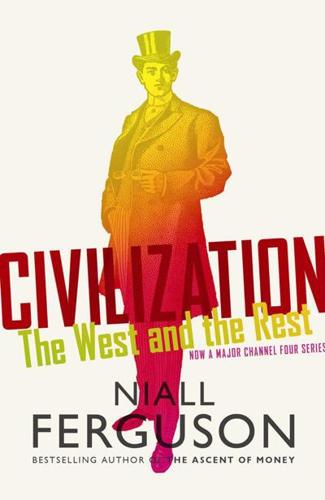
Civilization: The West and the Rest
by Niall Ferguson · 28 Feb 2011 · 790pp · 150,875 words
office. Within a dozen years, the United Kingdom had conceded independence to Burma, Egypt, Ghana, India, Israel, Jordan, Malaya, Pakistan, Ceylon and Sudan. The Suez Crisis in 1956 proved that the United Kingdom could not act in defiance of the United States in the Middle East, setting the seal on the end
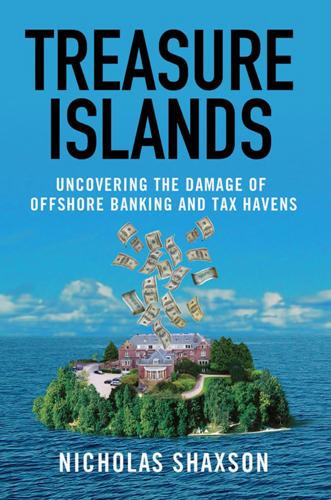
Treasure Islands: Uncovering the Damage of Offshore Banking and Tax Havens
by Nicholas Shaxson · 11 Apr 2011 · 429pp · 120,332 words
Sterling Area, 92–3 Stettinius, Jr., Edward, 23 Stop Tax Haven Abuse Act, 110 Strahm, Rudolf, 226 Subramanian, Arvind, 59–60, 240n22 Summers, Larry, 160 Suez Crisis (1956), 65–6, 86 Swayze, David, 194, 196–7, 199, 201 Swinging London, 80 Switzerland, 3, 4, 16, 24, 26, 33, 38, 43, 69, 80
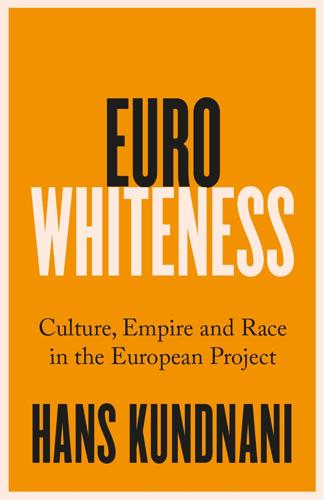
Eurowhiteness: Culture, Empire and Race in the European Project
by Hans Kundnani · 16 Aug 2023 · 198pp · 54,815 words
“dream of Eurafrica”.18 After the committee he chaired recommended the creation of a common market, negotiations began in May 1956. A few months later, while they were still ongoing, the Suez Crisis “generated a new wave of Europeanism” and created additional pressure to create the common market—and to include colonial
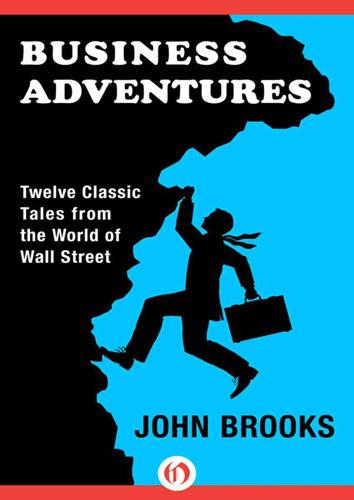
Business Adventures: Twelve Classic Tales From the World of Wall Street
by John Brooks · 6 Jul 2014 · 452pp · 150,785 words
one of the conference’s fruits, a credit of more than a billion dollars extended to Britain by the International Monetary Fund during the Suez affair in 1956 prevented a major international financial crisis then. In subsequent years, economic changes, like other changes, tended to come more and more quickly; after 1958
…
, 1–24 Stock-option provision, 101 Stock options, 103 Stock traders, 120 Stockholder meetings, 276–296 Stutz Motor Co., 228–229 Styling, of automobiles, 30 Suez crisis (1956), 329 Sulphides, 121 Sunday Times (London), 374 Susskind, David, 101 Swap network, 329, 330, 372–373 Switzerland, banking laws of, 327 Swope, Gerard, 219
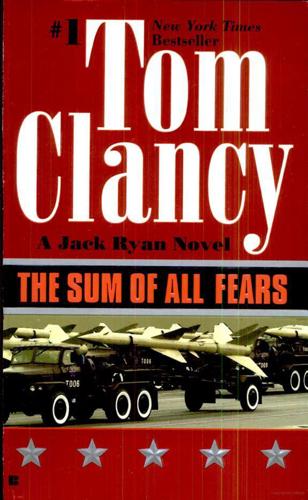
The Sum of All Fears
by Tom Clancy · 2 Jan 1989
will be peace between us, David." "After all these years, Ali," replied the former Israeli tanker. As a lieutenant, Askenazi had fought in the Suez in 1956, again as a captain in 1967, and his reserve battalion had reinforced the Golan in 1973. Both men were surprised by the applause that broke
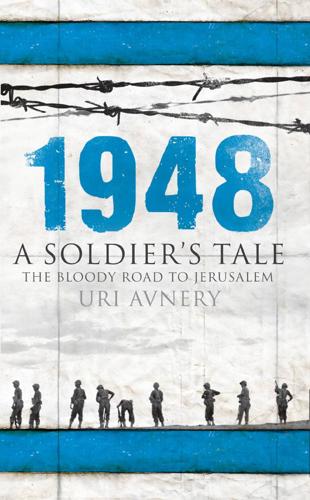
1948. A Soldier's Tale – the Bloody Road to Jerusalem
by Uri Avnery and Christopher Costello · 14 Jul 2008 · 535pp · 147,528 words
of the village of Abu-Ghosh near Jerusalem in recognition of his part in preventing the expulsion of the Palestinian inhabitants of the village 1956 29 November: Suez Campaign. In co-ordination with Britain and France, Israeli Army captures most of Sinai Peninsula and Gaza Strip, to pressurize Egypt to reverse nationalization
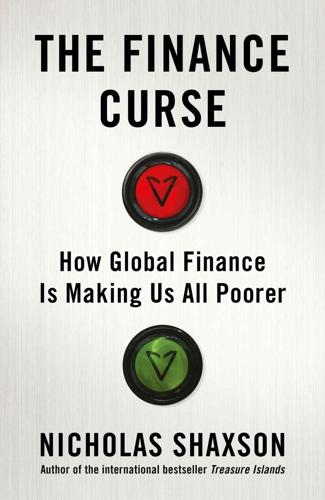
The Finance Curse: How Global Finance Is Making Us All Poorer
by Nicholas Shaxson · 10 Oct 2018 · 482pp · 149,351 words
for the near-total collapse of the British empire was the decision by Egypt’s feisty president, Gamal Abdel Nasser, to take over the Suez Canal in 1956. Britain and France joined Israel in an invasion of the canal zone, but the United States, which had lost patience with European imperialism and
…
, 99 Strathclyde Limited Partnership 220 Strathclyde Police Training and Recruitment Centre, East Kilbride 220–2 streetcar scandal, American 25 structured investment vehicle (SIV) 140 Suez Canal crisis (1956) 54 Summers, Lawrence 159 Switzerland 13, 37, 45, 47, 55–6, 58, 63, 70, 83, 93, 95, 97, 101, 113, 125, 136, 142, 160

Dirty Secrets How Tax Havens Destroy the Economy
by Richard Murphy · 14 Sep 2017 · 241pp · 63,981 words
, Ronen Palan, explains the origin of offshore in his book, The Offshore World.1 He suggests that the idea originated in London following the Suez Canal debacle of 1956, which fundamentally challenged the UK’s self-perception as a world power. At the time, the pound sterling was under pressure in a
…
purpose vehicles 80–1 specific jurisdictions 23 Starbucks 26, 46, 163 STAR trust legislation, Cayman Islands 83, 91–2 states, sovereign rights 151 status 10 Suez Crisis, 1956 51–2 Sweden 32, 156 Switzerland 55–6, 57, 68, 100, 112 tax abuse 2 tax administrations 156–7 tax advisers 63 tax avoidance
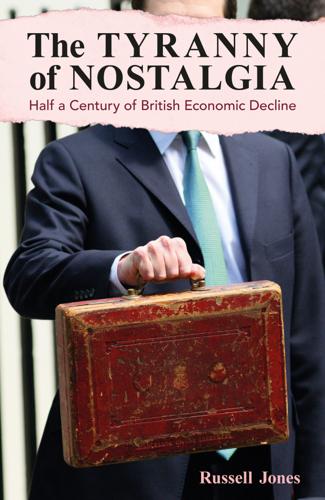
The Tyranny of Nostalgia: Half a Century of British Economic Decline
by Russell Jones · 15 Jan 2023 · 463pp · 140,499 words
Brexit vote was a massive shock, and in terms of being a watershed moment for the nation it was arguably more important than the Suez Crisis of 1956, the IMF crisis of 1976 and the abandonment of the Gold Standard in 1931. It left the population riven; the civil service in turn
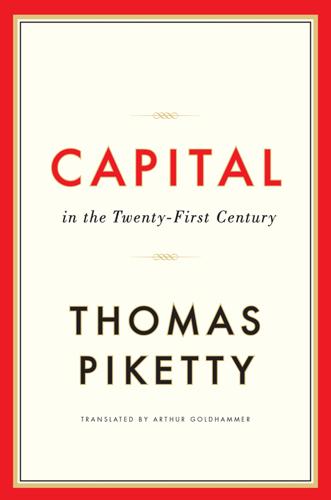
Capital in the Twenty-First Century
by Thomas Piketty · 10 Mar 2014 · 935pp · 267,358 words
loans to which many French savers subscribed in the Belle Époque and that the Bolsheviks repudiated in 1917, or the nationalization of the Suez Canal by Nasser in 1956, to the dismay of the British and French shareholders who owned the canal and had been collecting dividends and royalties on it since

The Book: A Cover-To-Cover Exploration of the Most Powerful Object of Our Time
by Keith Houston · 21 Aug 2016 · 482pp · 125,429 words
Museum of Cairo, but before anyone could examine them in detail Egypt found itself embroiled in a series of full-scale international incidents. The Suez crisis in 1956 and the Arab-Israeli wars of 1967 and 1973 meant that the facsimiles of the last of the Nag Hammadi books did not see
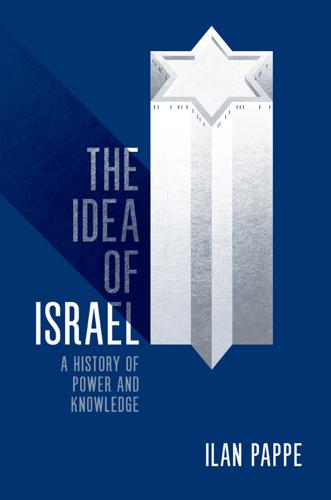
The Idea of Israel: A History of Power and Knowledge
by Ilan Pappe · 30 Apr 2012 · 387pp · 120,092 words
The idea that Palestinian resistance on Israel’s borders was pure terrorism was used by the Israeli government in 1956 to justify the collusion with Britain and France on the confrontation over the Suez Canal. Updated historiography, especially that provided by Avi Shlaim, has revealed that the principal objective of this operation
…
the First Arab–Israel War, New Haven, CT: Yale University Press, 2010. 31 Benny Morris, Israel’s Border Wars, 1949–1956: Arab Infiltration, Israeli Retaliation, and the Countdown to the Suez War, New York: Oxford University Press, 1997. 32 Jillian Becker, The PLO: The Rise and Fall of the Palestine Liberation Organization
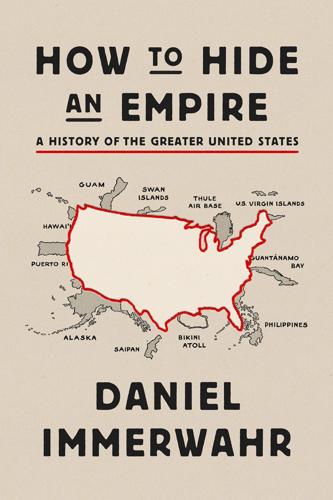
How to Hide an Empire: A History of the Greater United States
by Daniel Immerwahr · 19 Feb 2019
-skin natives still served drinks at the club and the fantasies of colonial life could be indulged for just a while longer. In 1956 Britain lost control of the Suez Canal, an incident that foretold the end of the empire. (“In the whole of modern history I can’t think of a
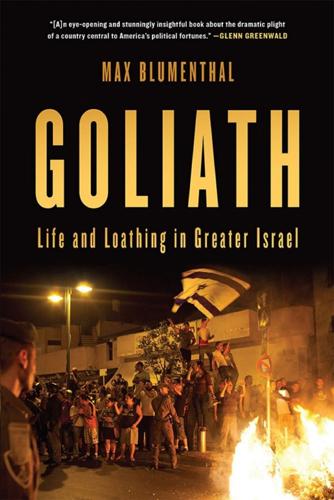
Goliath: Life and Loathing in Greater Israel
by Max Blumenthal · 27 Nov 2012 · 840pp · 224,391 words
: http://www.israellawresourcecenter.org/emergencyregs/fulltext/preventioninfiltrationlaw.htm. 46we must do nothing to foreclose: Benny Morris, Israel’s Border Wars, 1949-1956: Arab Infiltration, Israeli Retaliation, and the Countdown to the Suez War (Clarendon Press, 1997). 46destroyed three thousand: Interview with Sami Shehadeh, July 14, 2010. 46497 Jaffan houses: Shehadeh and Shbayatah

Pity the Nation: Lebanon at War
by Robert Fisk · 1 Jan 1990 · 1,208pp · 364,966 words
–3 Stetham, Robert, 605, 608 Stewart, John, 534n Stinger surface-to-air missiles, 439 Stone, I. F., 17 Stumborg, Lieutenant Jack, 508 Subai, Ahmed, 540 Suez crisis (1956), 70 Sultan Yacoub, 209 Summerland Hotel, west Beirut, 642, 646 Sunday Times, The, 179n, 437, 439, 441n Sunni Muslims, 67, 70, 93, 139, 146
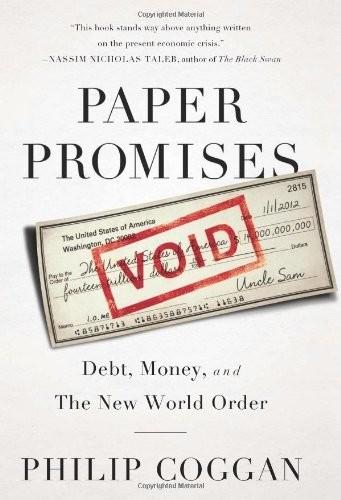
Paper Promises
by Philip Coggan · 1 Dec 2011 · 376pp · 109,092 words
developed nations to use their economic power to set the global agenda is now under question. Back in 1956, the British and French took military action against Egypt after President Nasser nationalized the Suez Canal. The action was quickly abandoned after the American government put financial pressure on the British. Will there
…
; President Roosevelt had repeatedly attempted to sideline him in favour of less prickly generals. De Gaulle resented America’s post-war leadership, particularly after the 1956 Suez episode when Anglo-French intervention in the Middle East was cut short by US financial pressure on Britain. In 1966, France pulled its troops out
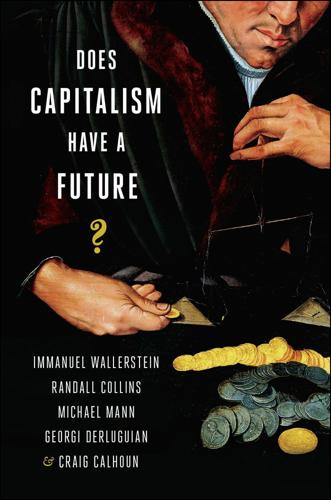
Does Capitalism Have a Future?
by Immanuel Wallerstein, Randall Collins, Michael Mann, Georgi Derluguian, Craig Calhoun, Stephen Hoye and Audible Studios · 15 Nov 2013 · 238pp · 73,121 words
phony facade. The Yalta deal of de facto status quo was the major geopolitical reality. This deep suspicion had been growing since 1956. 1956 was the year of Suez and Hungary—in which neither superpower acted in terms of Cold War rhetoric. It was also the year of Khrushchev’s “secret” talk
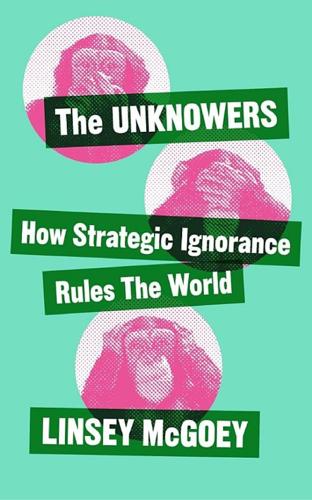
The Unknowers: How Strategic Ignorance Rules the World
by Linsey McGoey · 14 Sep 2019
don’t like to hear about it, but deception by the powerful is more common than he admits. A famous example stems from the Suez crisis of 1956. France and the United Kingdom were both alarmed by Egypt’s nationalization of the Suez Canal Company, but there was little domestic support for

England: Seven Myths That Changed a Country – and How to Set Them Straight
by Tom Baldwin and Marc Stears · 24 Apr 2024 · 357pp · 132,377 words
-centric Britain should never depend again on anyone, or anything, except itself. After the Anglo-French military effort to seize back control of the Suez Canal in 1956 collapsed into diplomatic ignominy and retreat, Powell wrote: ‘The Tory party must be cured of the British Empire, of the pitiful yearning to cling
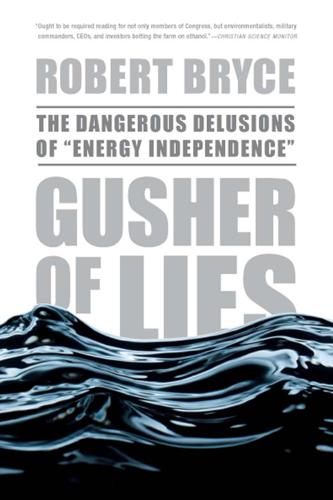
Gusher of Lies: The Dangerous Delusions of Energy Independence
by Robert Bryce · 16 Mar 2011 · 415pp · 103,231 words
Cape Hatteras with impunity, sinking forty-four unarmed and unescorted merchantmen. More than 70 percent of the tonnage lost was in tankers.”44 In 1956, during the Suez crisis, Arab nationalists blew up pumping stations in Syria that pumped Iraqi crude to the Lebanese port of Tripoli.45 In 1967, Israeli soldiers
…
oil prevented the Arab oil producers from using the threat of an oil embargo to pressure European countries and the U.S. during the Suez crisis in 1956 and the Six Day War in 1967. But America’s dominance of the global oil business couldn’t last forever. And the end of

No Such Thing as Society
by Andy McSmith · 19 Nov 2010 · 613pp · 151,140 words
. For MPs to be called back from their constituencies on a Saturday morning is rare indeed. The last time had been on 3 November 1956, during the Suez crisis. The very fact of being back in Parliament on this unusual day created a sense of momentous crisis reminiscent of the national humiliation
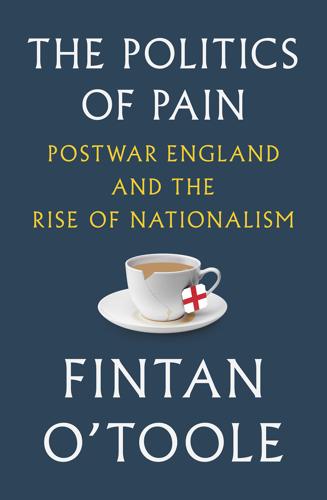
The Politics of Pain
by Fintan O'Toole · 2 Oct 2019
, in Spencer’s terms, had deserved much but received little. It had lost its empire, become virtually bankrupt, suffered economic stagnation and, in the Suez Crisis of 1956 (just over a decade after the great triumph), had its pretensions as a world power brutally exposed. To make matters much worse, the former
…
our global influence’.5 In Williamson’s head at least, Britain was about to regain the Great Power status it had lost in the Suez crisis of 1956. Three days after the conjuring of this neo-imperial phantasm, now with just forty-three days left until the Brexit deadline, another Conservative MP
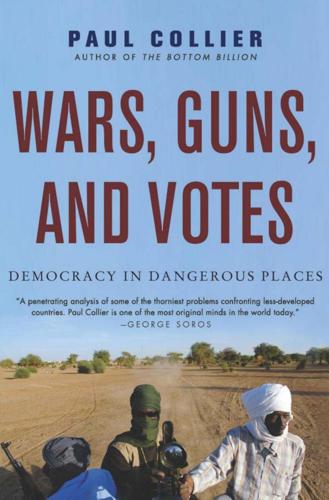
Wars, Guns, and Votes: Democracy in Dangerous Places
by Paul Collier · 9 Feb 2010 · 264pp · 74,313 words
came into its stride after the political showdown between America on the one side and Britain and France on the other that constituted the Suez crisis of 1956. Following Suez the British rapidly dismantled their empire, creating precedents that forced the French and Portuguese to follow. Ultimately self-determination even dissolved the
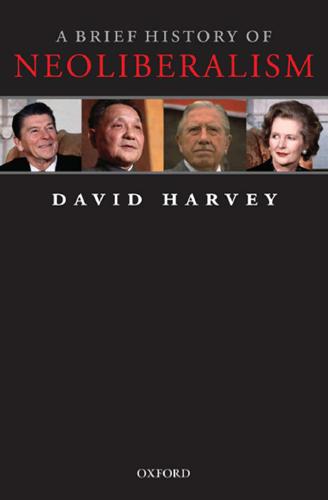
A Brief History of Neoliberalism
by David Harvey · 2 Jan 1995 · 318pp · 85,824 words
had (albeit reluctantly and in some instances not without violent struggle and considerable prodding from the US) agreed to decolonization, and after the abortive Suez venture of 1956 gradually (and again often reluctantly) shed much of the mantle of direct imperial power. The withdrawal of its forces east of Suez in the
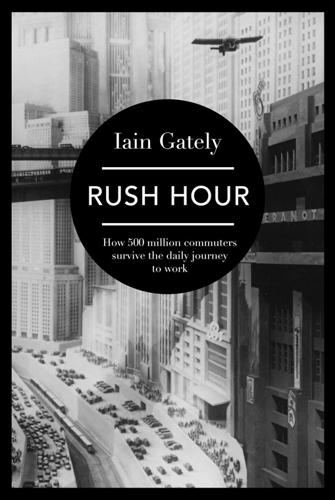
Rush Hour: How 500 Million Commuters Survive the Daily Journey to Work
by Iain Gately · 6 Nov 2014 · 352pp · 104,411 words
more affordable for more people, they were also cheaper in real terms, as were their running costs. Apart from a spike in late 1956 and early 1957 during the Suez crisis, the price of petrol declined between 1953 and 1973. The next factor was convenience. Cars provided a flexibility that public transport

Fallen Idols: Twelve Statues That Made History
by Alex von Tunzelmann · 7 Jul 2021 · 337pp · 87,236 words
, translated by Daniel and Judy Stoffman (1979; London: Fontana, 1989), p. 82. 12For a much fuller account of the Hungarian Rebellion of 1956, see Alex von Tunzelmann, Blood and Sand: Suez, Hungary and the Crisis that Shook the World (London: Simon & Schuster, 2016). 13Nikita Sergeivich Khrushchev, Memoirs of Nikita Khrushchev Vol 2

The Strangest Man: The Hidden Life of Paul Dirac, Mystic of the Atom
by Graham Farmelo · 24 Aug 2009 · 1,396pp · 245,647 words
distaste when he first met Tam Dalyell, an Eton-educated Tory who switched allegiance to the Labour Party in 1956 after the disastrous British invasion of Egypt, following the nationalisation of the Suez Canal. Dirac indicated that he welcomed the maverick Dalyell’s change of political heart, but added pointedly, ‘I don
…
stress diagrams 1, 2n54 string theory 1, 2, 3, 4n27 strings 1, 2 strong interaction 1, 2, 3 subatomic particle accelerators 1 Sudarshan, George 1n31 Suez crisis (1956) 1 Sunday Dispatch 1 Svenska Dagbladet 1, 2 Swift, Jonathan: Gulliver’s Travels 1 Swirles, Bertha 1n15 Switzerland, PD visits 1, 2 Szilárd, Leó
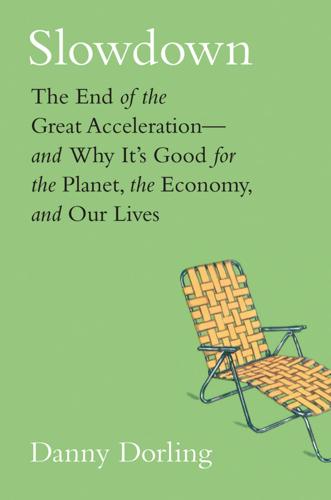
Slowdown: The End of the Great Acceleration―and Why It’s Good for the Planet, the Economy, and Our Lives
by Danny Dorling and Kirsten McClure · 18 May 2020 · 459pp · 138,689 words
for granted. THE SLOWDOWN BEGAN WITH GENERATION X The third of the five generations of great social transformation begins with those born in 1956, the year of the Suez Crisis and the final realization (in Europe at least) that the United States was the dominant world power. If you are American or
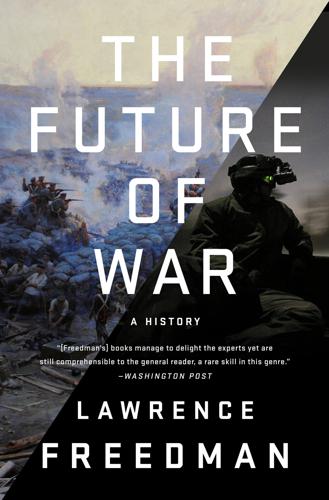
The Future of War
by Lawrence Freedman · 9 Oct 2017 · 592pp · 161,798 words
be ‘incredible’, that Russia had been bombed ‘by mistake’. The real culprits turned out to be Egypt (Shute was writing at the time of the 1956 Suez crisis), using long-range aircraft sold to them by Russia. Meanwhile a bomb that hit Naples came from Albania, and nobody was now sure who
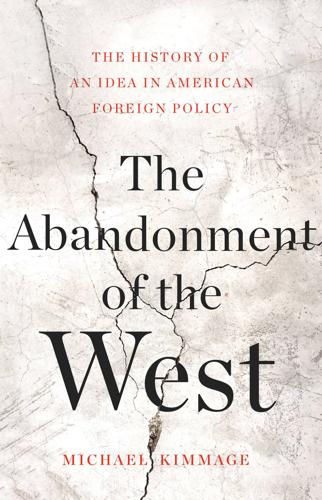
The Abandonment of the West
by Michael Kimmage · 21 Apr 2020 · 378pp · 121,495 words
dismantling of the West in Burnham’s view as it was for the magazine he helped to edit in the 1950s and 1960s. The Suez crisis of 1956, in which France and Britain were made to back down, was the death knell of Western power in the Middle East. It was postcolonial
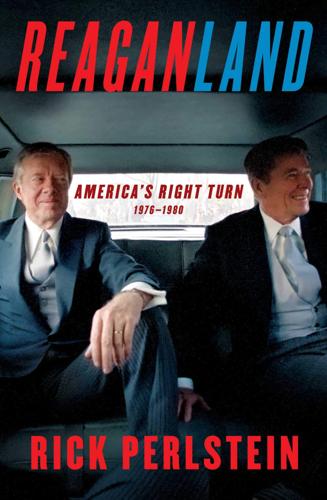
Reaganland: America's Right Turn 1976-1980
by Rick Perlstein · 17 Aug 2020
was 1967, when Israel laid waste to five armies in six days and added great swaths of Arab lands to her dominion. Or 1956, when Egypt took the Suez Canal from England, who made war to win it back in secret alliance with the Jewish state. Or 1948, when Israel declared herself

The Driving Machine: A Design History of the Car
by Witold Rybczynski · 8 Oct 2024 · 187pp · 65,740 words
competition to BMW’s Isetta. In Britain, scores of small companies built a variety of unconventional three-wheelers. Microcars were given a boost in 1956 by the Suez Crisis, which interrupted oil supply and resulted in shortages, higher prices, and rationing. Overnight, fuel consumption became a major concern of car buyers. The
…
–87 and Corvair, 114 and Corvette, 152 origins, 85 Alfred Sloan and, 85–86 Subaru station wagons, 168–69, 169 suburbia, 75, 83, 204 Suez Crisis (1956), 131 suicide doors, 35 SUVs (sport-utility vehicles), 75, 173; See also specific models Svenska Aeroplan AB (Saab), See Saab Swallow Sidecar Company, 148 Système
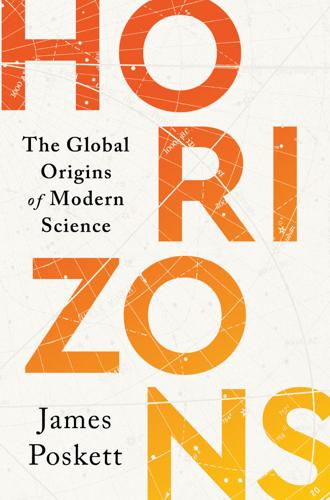
Horizons: The Global Origins of Modern Science
by James Poskett · 22 Mar 2022 · 564pp · 168,696 words
an article with Mourant on ‘The Blood Groups of the People of Egypt’. However, given the recent Arab–Israeli War of 1948 and the Suez Crisis of 1956, in which Israeli troops occupied the Sinai Peninsula, it is perhaps unsurprising that neither Shahid nor Ibrahim attended the conference in Jerusalem.75 The
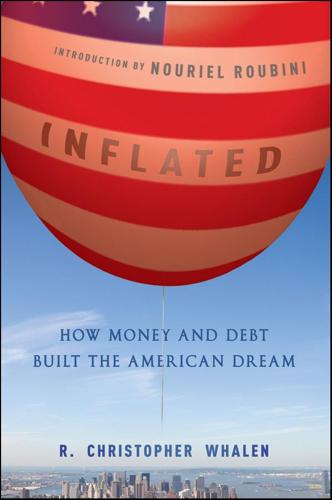
Inflated: How Money and Debt Built the American Dream
by R. Christopher Whalen · 7 Dec 2010 · 488pp · 144,145 words
.S. deficit and debt grew, the frequency and number of nations affected by periodic economic crises also increased.40 From the closing of the Suez Canal in 1956, the United Kingdom and France had been the primary recipients of adjustment loans. Even in those times, the availability of dollars was so limited
…
debt bubble, blame Subprime Debt Crisis (2008) Subprime debt crisis, Fed/Treasury assistance Subprime financial crisis, perspective (Raynes) Subprime housing crisis (2007-2009), issues Suez Canal, closing (1956) Sugar Equalization Board Summers, Larry Swanberg, W.A. Sylla, Richard Systemic risk, moral dilemma Szymczak, M.S. Taft, William Howard government debt Taleb, Nassim
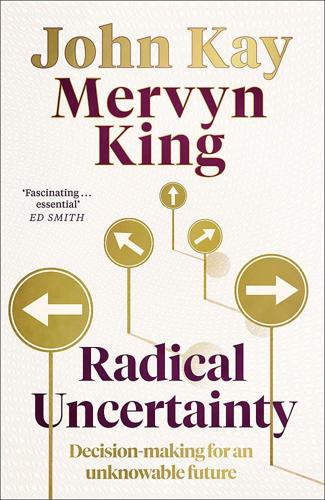
Radical Uncertainty: Decision-Making for an Unknowable Future
by Mervyn King and John Kay · 5 Mar 2020 · 807pp · 154,435 words
–14 ; two-child problem, 76–8 , 81 , 98 , 139 ; see also axiomatic rationality ‘sudden infant death syndrome’ (SIDS), 197–8 , 200–1 , 202 , 204 Suez crisis (1956), 174 Sumerians, 39 Survation, 242 Suter, Johann, 427 Sutter, John, 48–9 Swiss Re, 325–6 Switzerland, 418–19 , 426 , 428 Syrian conflict, 99 , 428
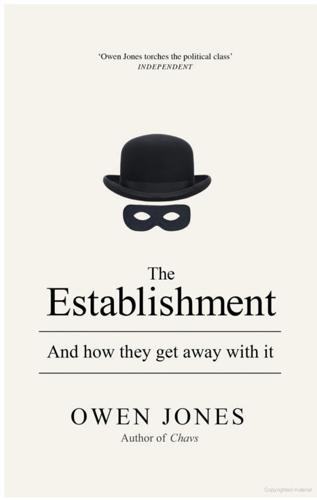
The Establishment: And How They Get Away With It
by Owen Jones · 3 Sep 2014 · 388pp · 125,472 words
the credibility and authority of the British state’. He recalls sympathetically the words of The Observer after Britain’s disastrous military intervention over the Suez Canal in 1956: ‘We had not realized that our government was capable of such folly and such crookedness.’ ‘What I found shocking was the way the whole

The English
by Jeremy Paxman · 29 Jan 2013 · 364pp · 103,162 words
one of being free to do as they pleased, as long as Washington did not object, as the British discovered in 1956 when they tried to invade Egypt to secure the Suez Canal, without American approval. But by then, the die was cast; Britain had thrown in her lot with what was
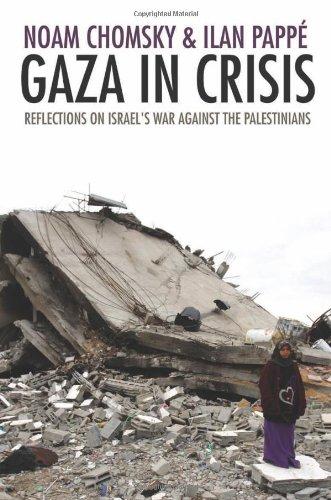
Gaza in Crisis: Reflections on Israel's War Against the Palestinians
by Ilan Pappé, Noam Chomsky and Frank Barat · 9 Nov 2010 · 279pp · 72,659 words
had begun in September 1953. Israel waited for a friendlier administration.22 This somewhat critical stance was maintained by the United States, and the Suez Crisis in 1956 led, yet again, to a threat of sanctions in response to an aggressive Israeli policy. Thus, in a matter of seven years, Israel was

Brexit, No Exit: Why in the End Britain Won't Leave Europe
by Denis MacShane · 14 Jul 2017 · 308pp · 99,298 words
kept its distance. Hapless Tory prime minister Anthony Eden refused to participate in the Messina conference in 1956 which negotiated the Treaty of Rome. Eden is more famous in history for the disaster of his Suez invasion fiasco, when President Eisenhower called him and said: ‘Anthony. Are you mad?!’ His Old Etonian
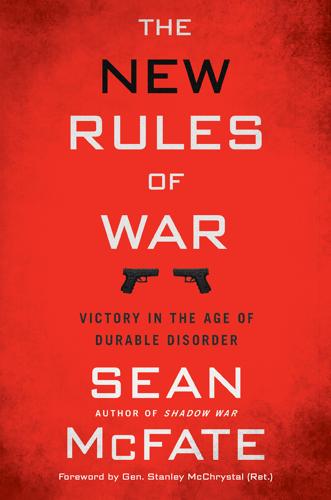
The New Rules of War: Victory in the Age of Durable Disorder
by Sean McFate · 22 Jan 2019 · 330pp · 83,319 words
, and it did not revolve around a single enemy.” Great Britain maintained a grand strategy from the time of Queen Elizabeth I to the Suez Crisis of 1956 that endured despite the life cycles of monarchs, the various prime ministers in power, the civil and foreign wars fought by the state, the
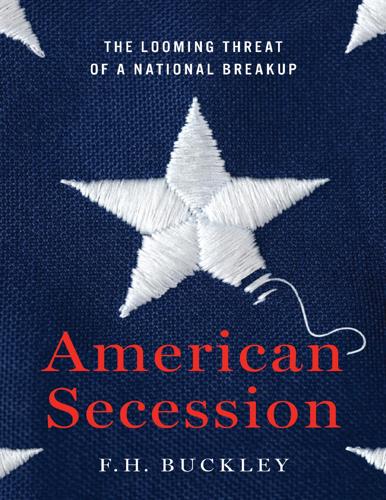
American Secession: The Looming Threat of a National Breakup
by F. H. Buckley · 14 Jan 2020
the British Empire, and he didn’t. That task he passed on to his successors, who presided over Indian independence in 1947 and the Suez debacle in 1956. After Britain gave up its empire, America became the world’s policeman. In a widely praised address at the American Enterprise Institute in 2004
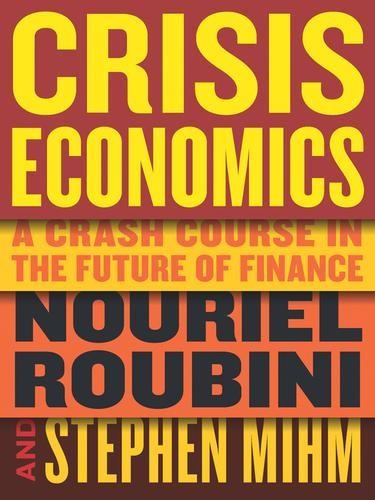
Crisis Economics: A Crash Course in the Future of Finance
by Nouriel Roubini and Stephen Mihm · 10 May 2010 · 491pp · 131,769 words
gold standard in 1931, the dollar did displace the pound. The Bretton Woods agreement helped cement the dollar’s supremacy, though only with the Suez Crisis of 1956—and the further collapse of the pound sterling—did the dollar become the world’s unrivaled reserve currency. The fall of the pound took
…
markets foreign stocks of banks Internet of Mexico preferred shares of prices of railroad restricted shares of structured investment vehicles (SIVs) student loans Sturzenegger, Federico Suez Crisis (1956) Suharto Summers, Lawrence supervision lax supply side, reforms on surety bonds surpluses, current account Sutton, Willie Swap Financing (retitled The Das Swaps & Financial Derivatives

I Shall Not Hate
by Izzeldin Abuelaish · 15 Jan 2010
actual war when it started. But I learned. It wasn’t the first war of my lifetime, but I was only an infant during the 1956 Suez Crisis, also referred to as the Tripartite Aggression or Sinai war, in which Britain, France and Israel attacked Egypt on October 26, 1956. Egypt and
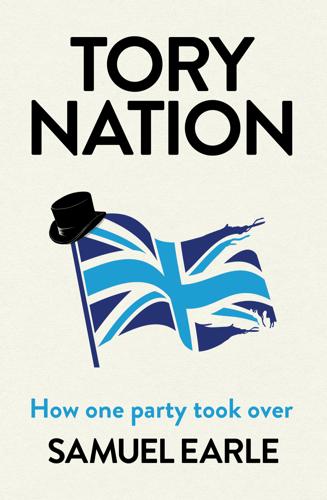
Tory Nation: The Dark Legacy of the World's Most Successful Political Party
by Samuel Earle · 3 May 2023 · 245pp · 88,158 words
of the Second World War, it stuttered each time it tried to assert its fading superpower status. In 1956, Britain was humiliated when it tried to invade Egypt and seize control of the Suez Canal, only to withdraw after America voiced disapproval. Its economy was beset by crises and stagnation, earning it
…
, 169, 216, 226, 227, 229 stamp duty 158–9, 161 Starmer, Sir Keir 8, 231, 265 ‘stiff upper lip’ 119–20, 126 Stratton, Allegra 169 Suez Crisis (1956) 125 suffrage reforms 6, 20–1, 30–1, 38, 48, 57, 72, 75, 78, 80, 85, 94, 104, 105, 255, 256, 257 suffragette movement
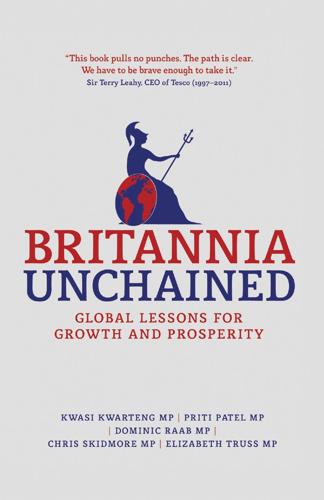
Britannia Unchained: Global Lessons for Growth and Prosperity
by Kwasi Kwarteng, Priti Patel, Dominic Raab, Chris Skidmore and Elizabeth Truss · 12 Sep 2012
47 Stanford University (US) 60, 93, 97 Stephens, Philip 28 strikes 8–9, 66, 69, 114–15 Stringer, Sir Howard 58 Süddeutsche Zeitung 40 Suez crisis (1956) 8 Sugar, Alan 75, 76 Summers, Larry 25 sustainable development 4, 10 see also economic growth Sweden 30, 32 Switzerland 30, 32, 52 Tang, Jessie

The Rough Guide to England
by Rough Guides · 29 Mar 2018
’s imperial – or rather post-imperial – role and this bubbled to the surface in both the incompetent partition of India in 1947 and the Suez Crisis of 1956, when Anglo-French and Israeli forces invaded Egypt to secure control of the Suez Canal, only to be hastily recalled following international (American) condemnation
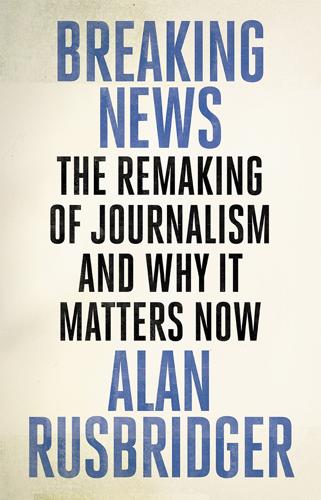
Breaking News: The Remaking of Journalism and Why It Matters Now
by Alan Rusbridger · 14 Oct 2018 · 579pp · 160,351 words
of British concentration camps – a moment when its reporters needed police guards as they turned up for work. In 1956, again, it stood virtually alone in condemning Britain’s foolish adventure in Suez. It exposed labour conditions in apartheid South Africa and, under Peter Preston,5 sleaze in parliament. In 1961 it
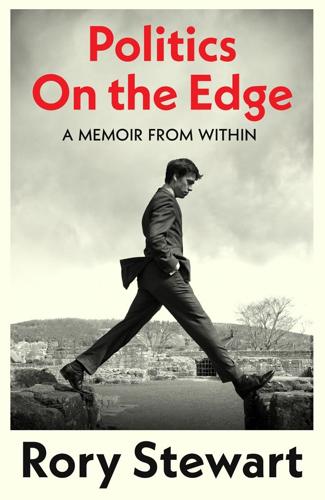
Politics on the Edge: The Instant #1 Sunday Times Bestseller From the Host of Hit Podcast the Rest Is Politics
by Rory Stewart · 13 Sep 2023 · 534pp · 157,700 words
, 364, 368, 379, 404 Remembrance Day, 415 Truss, views on, 169 Turquoise Mountain Foundation, 12, 88, 129, 406 Stuart, Rick, 305 Sturgeon, Nicola, 137 Suez Crisis (1956), 37 Suharto, 9, 197 Sun, 69, 112–14, 119, 122, 179, 377 Sunak, Rishi, 180, 300 Sunday Express, 19 Sunday Mirror, 113 Sunday Times, 120
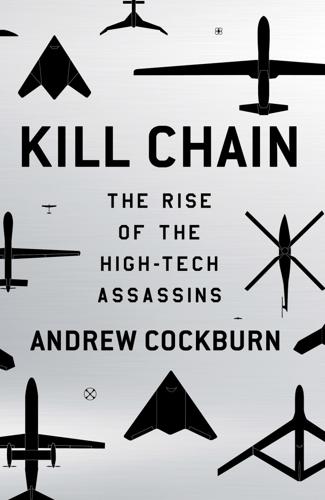
Kill Chain: The Rise of the High-Tech Assassins
by Andrew Cockburn · 10 Mar 2015 · 389pp · 108,344 words
with euphemisms such as “executive action,” an evasion disdained by British Prime Minister Anthony Eden in commissioning his own plot against Nasser during the 1956 Anglo-Egyptian Suez crisis. “I want him destroyed, don’t you understand?” Eden bellowed down the phone to his intelligence chief. “I want him murdered.” Until the
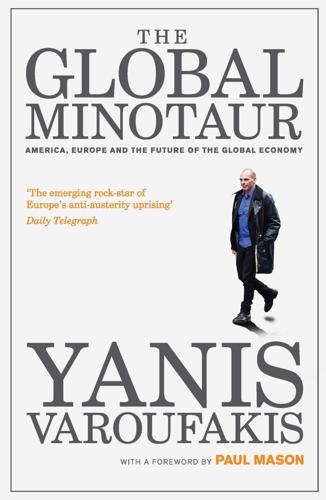
The Global Minotaur
by Yanis Varoufakis and Paul Mason · 4 Jul 2015 · 394pp · 85,734 words
pound to eventual non-convertibility. It gave the New Dealers an excuse to leave Britain on the margins of the Global Plan. It took the 1956 Suez Canal trauma and the CIA’s constant undermining of its colonial rule in Cyprus throughout the 1950s for Britain to realize this turn in US
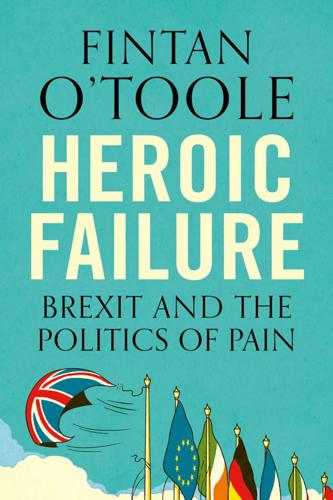
Heroic Failure: Brexit and the Politics of Pain
by Fintan O'Toole · 22 Jan 2018 · 200pp · 64,329 words
, in Spencer’s terms, had deserved much but received little. It had lost its empire, become virtually bankrupt, suffered economic stagnation and, in the Suez Crisis of 1956 (just over a decade after the great triumph), had its pretensions as a world power brutally exposed. To make matters much worse, the former
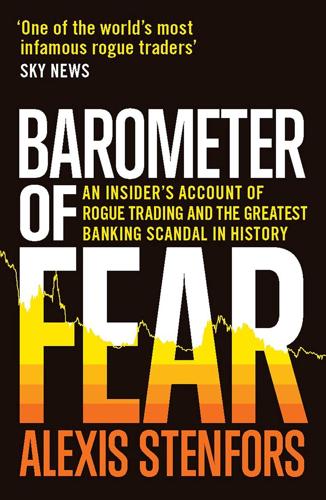
Barometer of Fear: An Insider's Account of Rogue Trading and the Greatest Banking Scandal in History
by Alexis Stenfors · 14 May 2017 · 312pp · 93,836 words
in the Middle East also began to place US dollars in Europe, quite possibly influenced by the resulting instability after the outbreak of the Suez War in 1956, when the US reacted by freezing some US assets held by foreigners. Later, with the oil shocks of 1973 and 1979, OPEC countries began
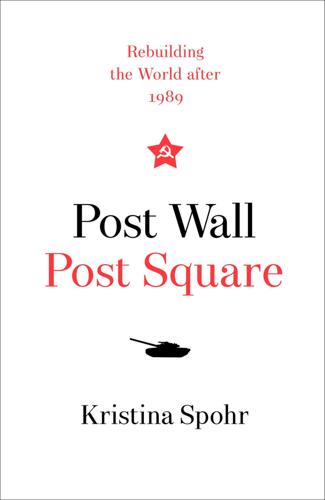
Post Wall: Rebuilding the World After 1989
by Kristina Spohr · 23 Sep 2019 · 1,123pp · 328,357 words
empire when international opinion was preoccupied with other matters – in the Middle East. Was this a reprise of Khrushchev in 1956: sending the tanks into Hungary when the West was fixated on Suez? Gorbachev unmasked? The peacemaker abroad, now revealing his iron fist at home? The Soviet president clearly did not want
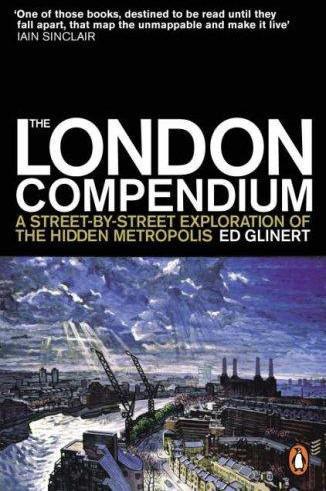
The London Compendium
by Ed Glinert · 30 Jun 2004 · 1,088pp · 297,362 words
used as a hostel for visitors to the Festival of Britain, and five years later as a transit camp for troops on their way to Suez. Since 1956 the British Library has used the abandoned works for storage space. east side: Euston Road to New Oxford Street Heal’s, Nos. 191–199
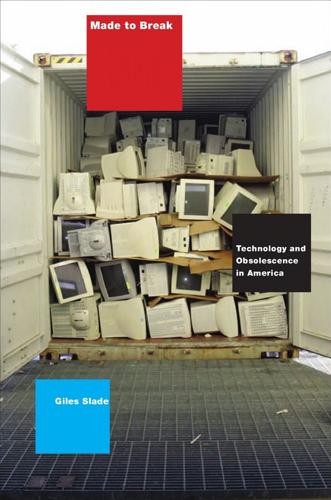
Made to Break: Technology and Obsolescence in America
by Giles Slade · 14 Apr 2006 · 384pp · 89,250 words
in the United States—the miniskirt, and the Morris Mini Minor, a small automobile whose ingenious design had emerged in response to the Suez Canal crisis of 1956, which reduced oil supplies to Britain.5 Olsen knew that Morris had directed the famous automobile designer Alec Issigonis to create a car that

In the City of Bikes: The Story of the Amsterdam Cyclist
by Pete Jordan · 20 Aug 2012 · 407pp · 117,763 words
War II, the Dutch government had imposed Sunday driving bans in order to conserve fuel in times of scarcity. And in the winter of 1956–57, during the Suez Crisis, another weekly Sunday ban had been instituted.* But since those previous Sunday driving bans had occurred during periods when the Dutch still
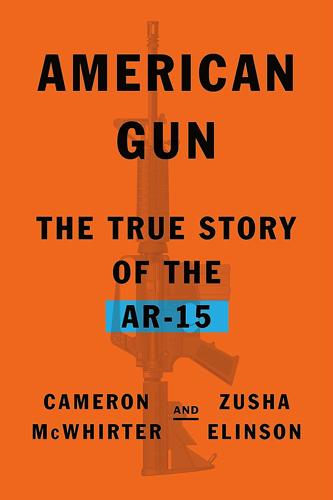
American Gun: The True Story of the AR-15
by Cameron McWhirter and Zusha Elinson · 25 Sep 2023 · 525pp · 166,724 words
Southeast Asia. Less than two years later, guerrillas, backed by North Vietnam, started operating in South Vietnam. In 1956, the Egyptian leader Gamal Nasser, friendly with Soviet leaders, announced the nationalization of the Suez Canal, sparking an international crisis. Fidel Castro’s guerrillas in Cuba made headway against the U.S.-backed
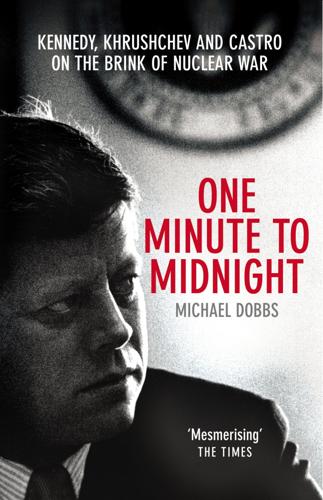
One Minute to Midnight: Kennedy, Khrushchev and Castro on the Brink of Nuclear War
by Michael Dobbs · 3 Sep 2008 · 631pp · 171,391 words
heard a story about a French foreign minister who had been "caught literally with his pants down" in the middle of the night during the 1956 Suez crisis. He wanted to avoid a similar indignity. As he later recalled, "I was ready for alarming news to come at any moment, and I
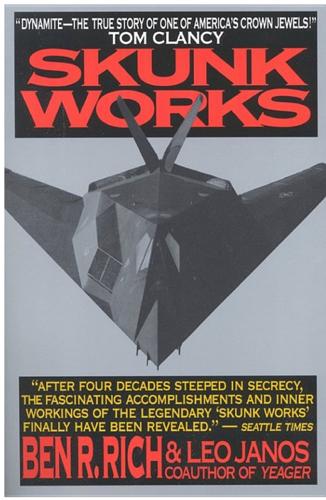
Skunk Works: A Personal Memoir of My Years of Lockheed
by Ben R. Rich and Leo Janos · 1 Jan 1994 · 382pp · 116,351 words
twenty-seven U-2 missions logged, including several marathon-length flights across the eastern Mediterranean in 1956 to gather intelligence on the movements of British and French warships participating with Israel in attacking Egypt during the Suez crisis. Powers took off at dawn from Peshawar, Pakistan, on Sunday, May 1, 1960. Flying
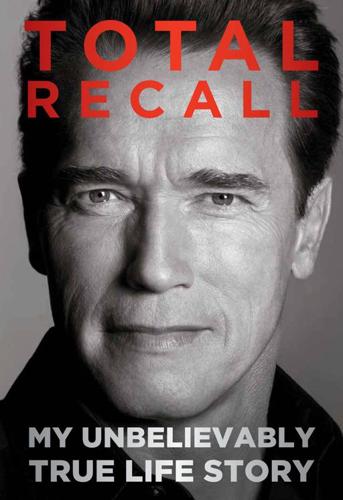
Total Recall: My Unbelievably True Life Story
by Arnold Schwarzenegger and Peter Petre · 30 Sep 2012 · 900pp · 241,741 words
stars. Those are images I remember. There was also boring stuff, of course, and stuff that went right over my head, like the 1956 crisis over the Suez Canal. American movies made an even deeper impression. The first one that Meinhard and I ever saw was a Tarzan film starring Johnny Weissmuller

Irrational Exuberance: With a New Preface by the Author
by Robert J. Shiller · 15 Feb 2000 · 319pp · 106,772 words
in 1950, the capture of Seoul by the Communists in 1951, the Democratic National Convention of 1952, Russian troops’ threatening Hungary and Poland in 1956, the Suez crisis of 1956, Charles de Gaulle’s taking office as French premier in 1958, the entry of U.S. marines into Lebanon in 1958, Russian
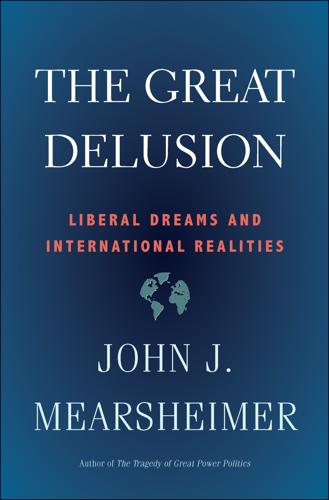
The Great Delusion: Liberal Dreams and International Realities
by John J. Mearsheimer · 24 Sep 2018 · 443pp · 125,510 words
’s rule. Third, democracies are said to be incapable of launching surprise attacks because their decision-making process is so transparent. As Rosato notes, the 1956 Suez War shows this is not true: three democracies (Britain, France, and Israel) planned a coordinated attack on Egypt that surprised not only the Egyptians but
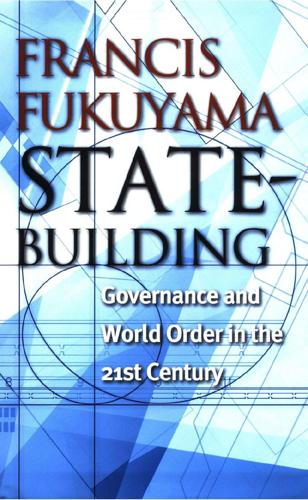
State-Building: Governance and World Order in the 21st Century
by Francis Fukuyama · 7 Apr 2004
order to effect “regime change” and eliminate its WMD. This led to one of the most serious rifts in European-American relations since the Suez Crisis of 1956, with German Chancellor Gerhard Schröder running for and winning reelection on a platform overtly opposed to U.S. foreign policy and France and Germany
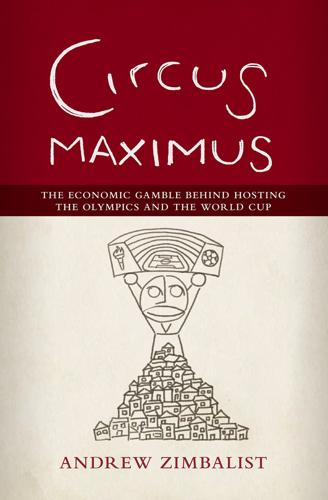
Circus Maximus: The Economic Gamble Behind Hosting the Olympics and the World Cup
by Andrew Zimbalist · 13 Jan 2015 · 222pp · 60,207 words
coming in second and Hungary third. 14. The Melbourne games were boycotted by Egypt, Iraq, and Lebanon to protest Israel's takeover of the Suez Canal in 1956. They were also the site of a vicious and bloody water polo contest between the Hungarian and the Soviet teams following the Soviet invasion
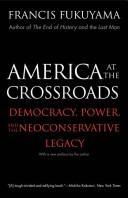
America at the Crossroads: Democracy, Power, and the Neoconservative Legacy
by Francis Fukuyama · 20 Mar 2007 · 214pp · 57,614 words
naive, but that is a judgment easier to make after the fact. British Prime Minister Anthony Eden in 1956 believed he was in a Rhineland-type situation when he went ahead with the Suez war, failing to foresee that Egypt's President Nasser would not ultimately present the same threat to world
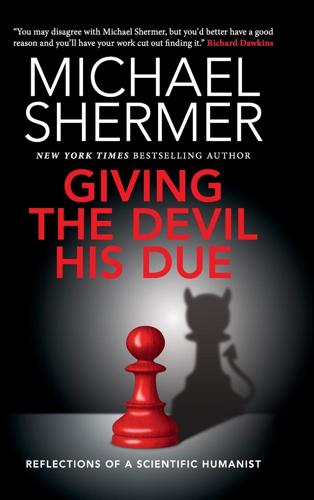
Giving the Devil His Due: Reflections of a Scientific Humanist
by Michael Shermer · 8 Apr 2020 · 677pp · 121,255 words
. The memoirs are real, but Eichmann lied about the Führerbefehl. Why? As he told the journalist Ron Rosenbaum in an elaborate rationalization, during the Suez crisis in 1956 Eichmann worried that if Israel conquered Cairo they might intercept intelligence files on fugitive Nazis in South America, possibly leading to his capture and
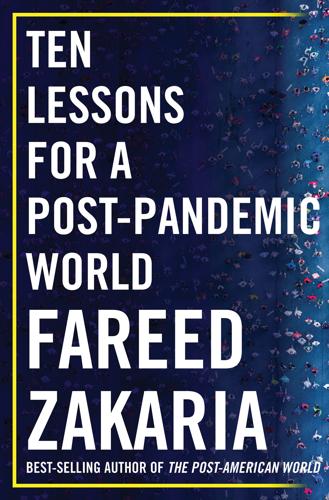
Ten Lessons for a Post-Pandemic World
by Fareed Zakaria · 5 Oct 2020 · 289pp · 86,165 words
the emerging system faced vociferous opposition from the Soviet Union, followed by a series of breakdowns of cooperation among allies (most painfully, over the Suez Canal in 1956 and over Vietnam a decade later). It even suffered the partial defection of the United States under Richard Nixon, who in 1971 ended Washington

Sweden Travel Guide
by Lonely Planet
hiding them in Swedish 'neutral houses' in Budapest. 1953 Dag Hammarskjöld is elected Secretary-General of the UN. Under his guidance, the UN resolves the 1956 Suez Crisis. 1974 ABBA triumphs in the Eurovision Song Contest in England, kick-starting a hugely successful pop career. 1994 The ferry Estonia sinks during a
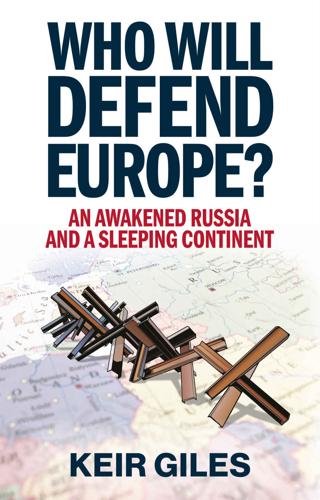
Who Will Defend Europe?: An Awakened Russia and a Sleeping Continent
by Keir Giles · 24 Oct 2024 · 296pp · 81,440 words
credibility and commitment for the Western community of nations as a whole. The impact could be as great or more as that of the Suez crisis in 1956 or the US withdrawals from Vietnam in the 1970s or Afghanistan fifty years later.16 Russia seeks to roll back the power of the
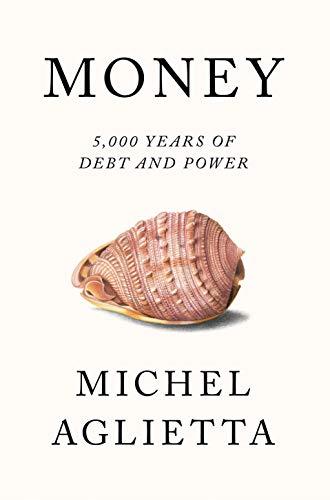
Money: 5,000 Years of Debt and Power
by Michel Aglietta · 23 Oct 2018 · 665pp · 146,542 words
unresolved. In this sense, the pound sterling was the weak link for the whole system. Speculative pressure against the pound built up after the Suez Crisis in 1956. The British monetary authorities were driven to re-establish convertibility so that London could recover its role as a global financial centre. But the
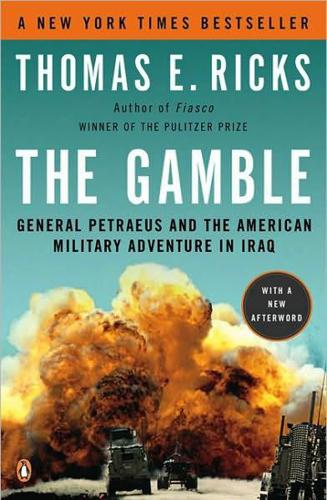
The Gamble: General David Petraeus and the American Military Adventure in Iraq, 2006-2008
by Thomas E. Ricks · 14 Oct 2009 · 509pp · 153,061 words
fate of the West’s great powers for thousands of years to become involved in the power politics of the region, and since the Suez Crisis of 1956, when British and French influence in the region suffered a major reduction, it has been the turn of America to take the lead in
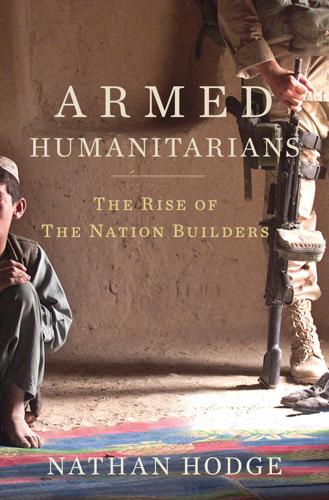
Armed Humanitarians
by Nathan Hodge · 1 Sep 2011 · 390pp · 119,527 words
colonies of Morocco, Tunisia, and Libya.2 That did not mean that the United States had no military involvement on the continent. During the Suez Crisis in 1956, a Marine battalion evacuated U.S. nationals from Alexandria, Egypt; in 1964, Belgian paratroopers parachuted out of U.S. transport planes during a hostage
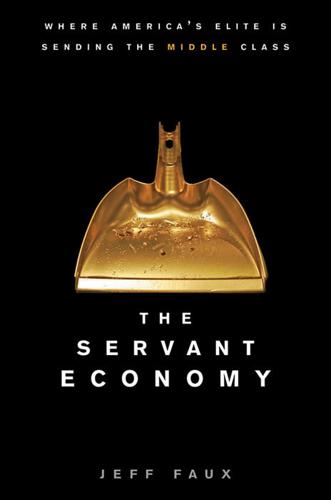
Servant Economy: Where America's Elite Is Sending the Middle Class
by Jeff Faux · 16 May 2012 · 364pp · 99,613 words
the debtors typically trumps the debtors’ threat to bankrupt them. History reinforces the point. Thus, for example, when the British and French invaded the Suez Canal in 1956, U.S. president Dwight Eisenhower forced the British into a humiliating retreat by a threat to sell off British bonds and undercut the pound
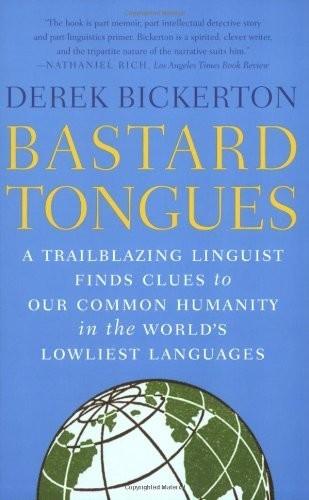
Bastard Tongues: A Trailblazing Linguist Finds Clues to Our Common Humanity in the World's Lowliest Languages
by Derek Bickerton · 4 Mar 2008
life as Talmy, was born in Israel and raised on a kibbutz. He was a lieutenant in the Israeli army and fought in the Suez War of 1956, but being fond of Arabs he became disillusioned Israeli policy and fi,nally wound up as a linguistics prof at UCLA. Now he was
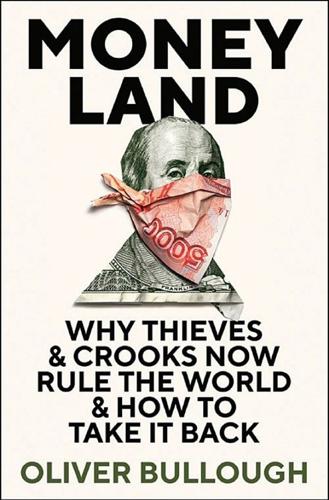
Moneyland: Why Thieves and Crooks Now Rule the World and How to Take It Back
by Oliver Bullough · 5 Sep 2018 · 364pp · 112,681 words
is dominated by its largest shareholder, refused to help communist Poland to rebuild. Similarly, when Britain and France attempted to regain control of the Suez Canal in 1956, a disapproving Washington froze their access to dollars and doomed the venture. These were not the actions of a neutral arbiter. Britain at the

The Rough Guide to Sweden (Travel Guide eBook)
by Rough Guides · 1 Nov 2019
Nations in 1953. His strong leadership greatly enhanced the prestige (and effectiveness) of the organization, which under his guidance participated in the solution of the 1956 Suez crisis and the 1958 Lebanon–Jordan affair. He was killed in an air crash in 1961, towards the end of his second five-year term
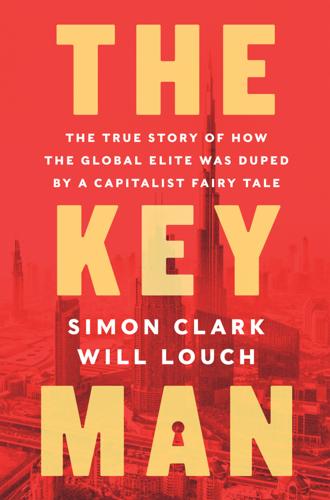
The Key Man: The True Story of How the Global Elite Was Duped by a Capitalist Fairy Tale
by Simon Clark and Will Louch · 14 Jul 2021 · 403pp · 105,550 words
Britain in 1957 aged eleven. His Jewish family felt compelled to leave after Israel, Britain, and France tried to take control of the Suez Canal from Egypt in 1956. Sir Ronald studied politics, philosophy, and economics at Oxford University, where he became president of the Oxford Union debating society. After a stint